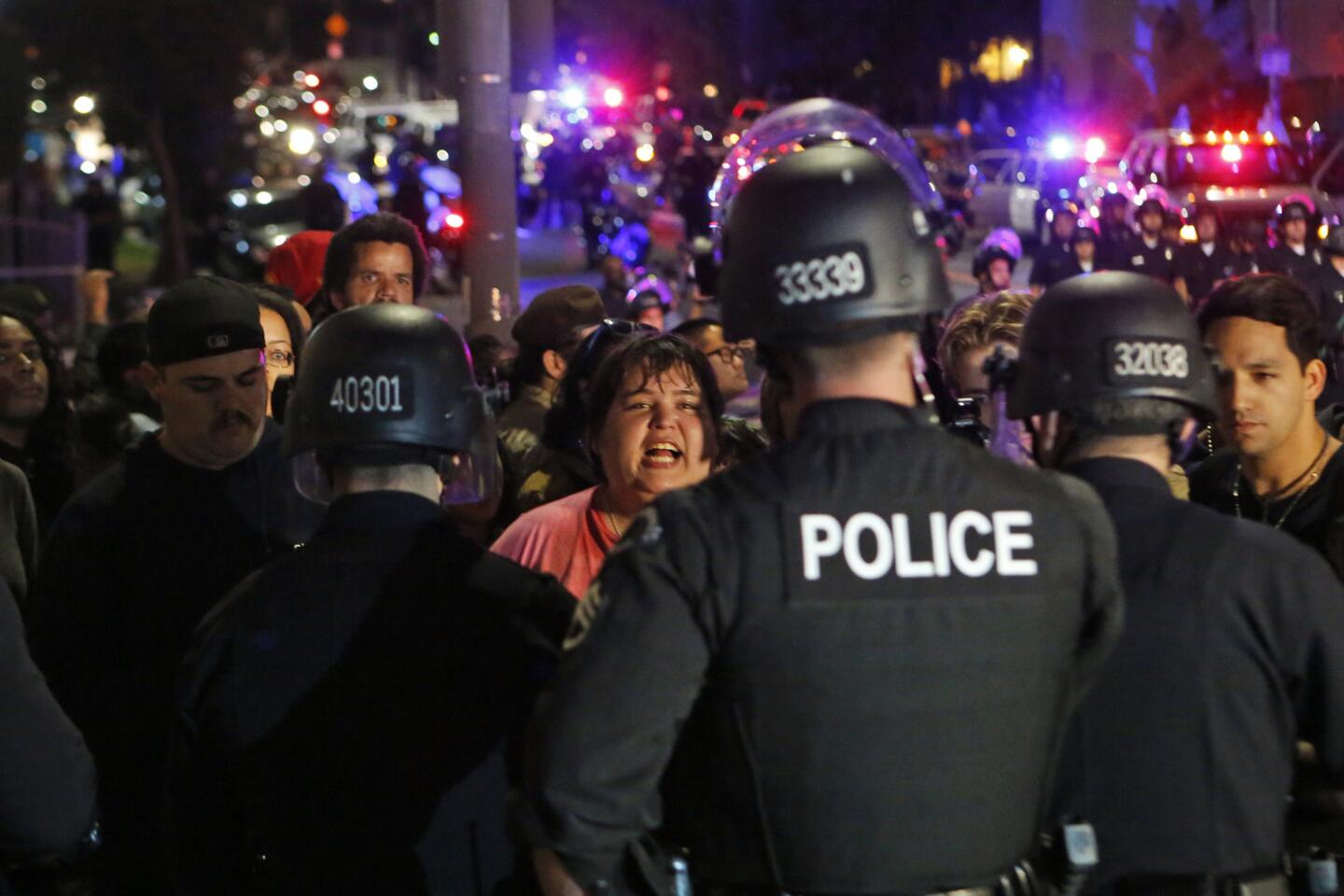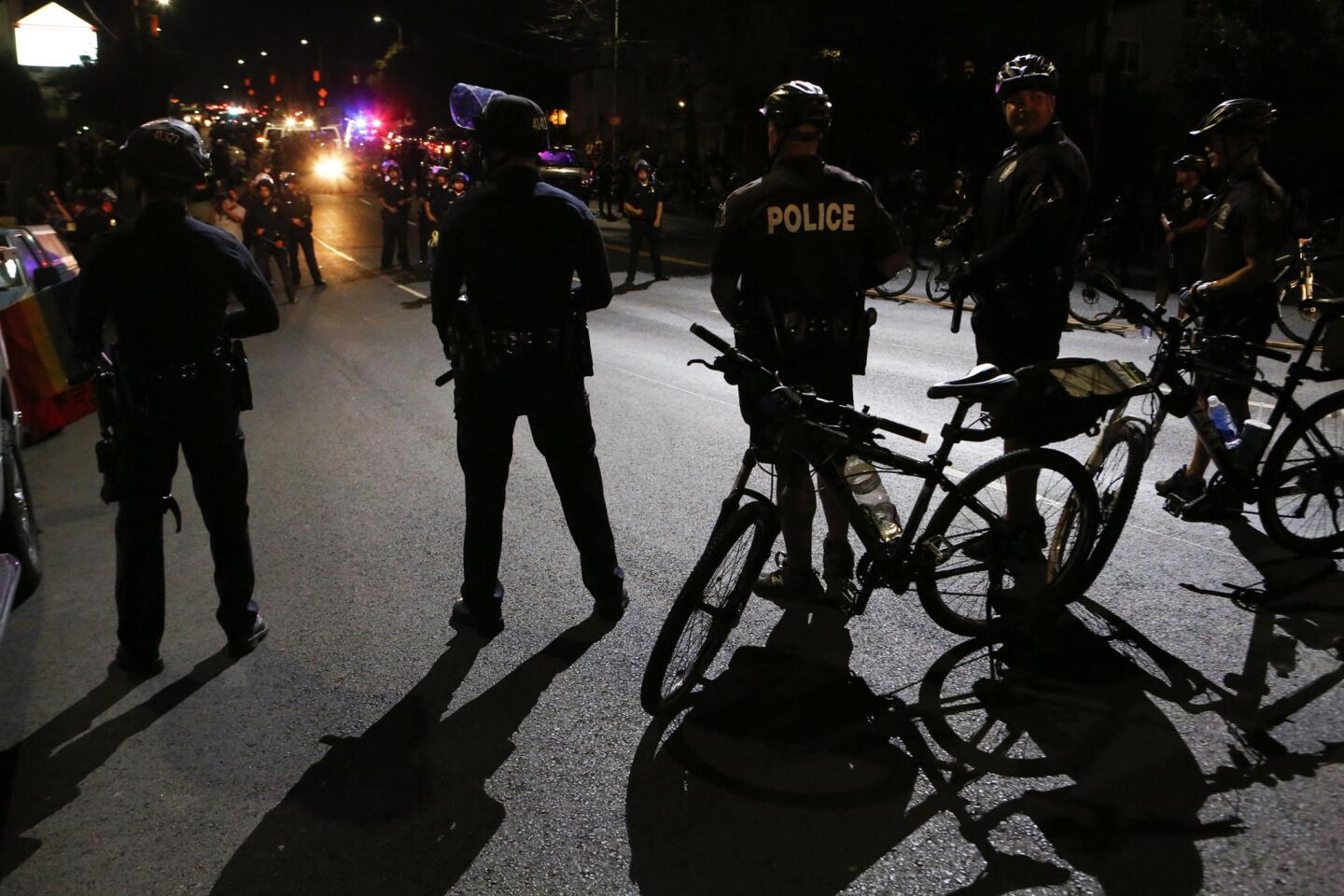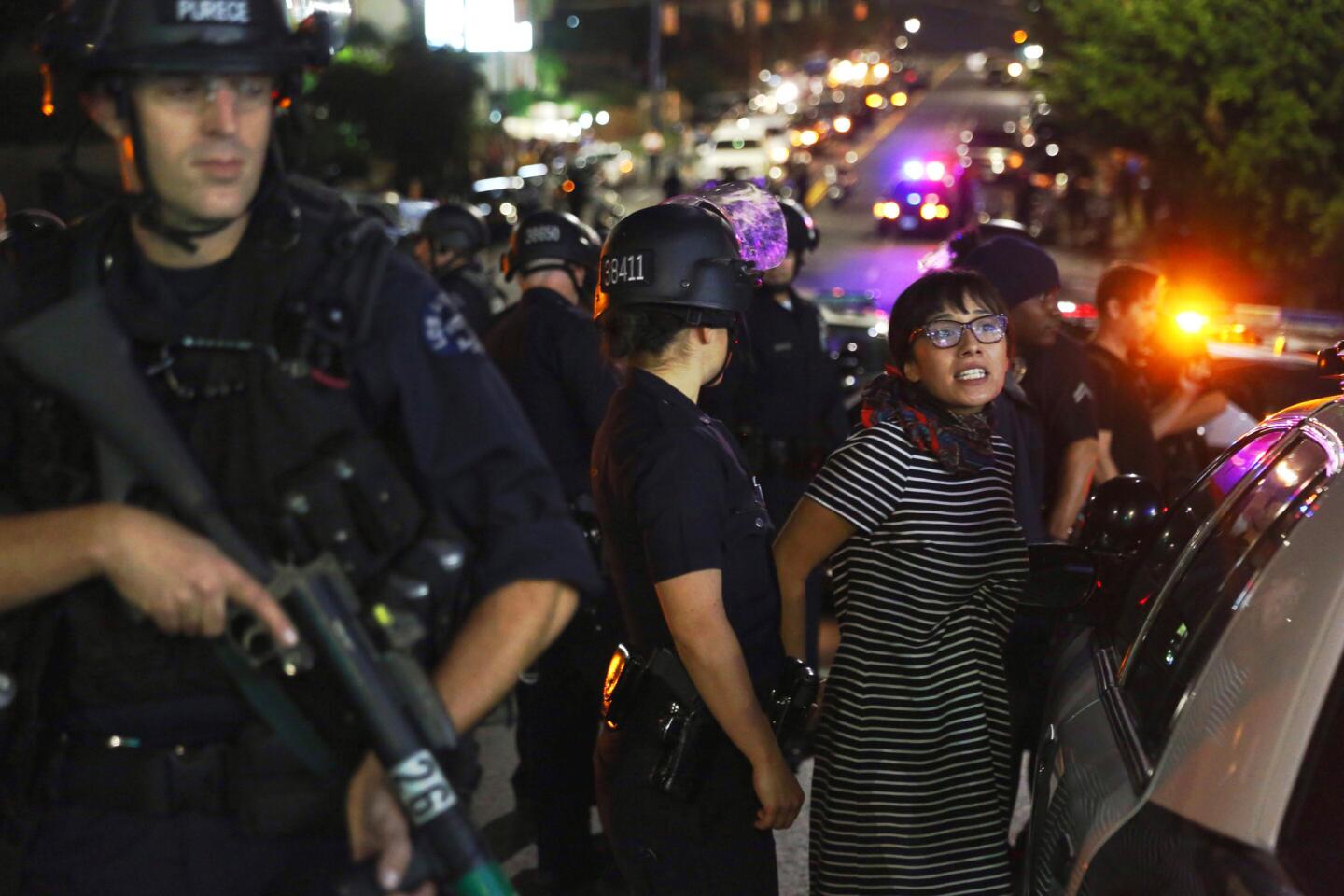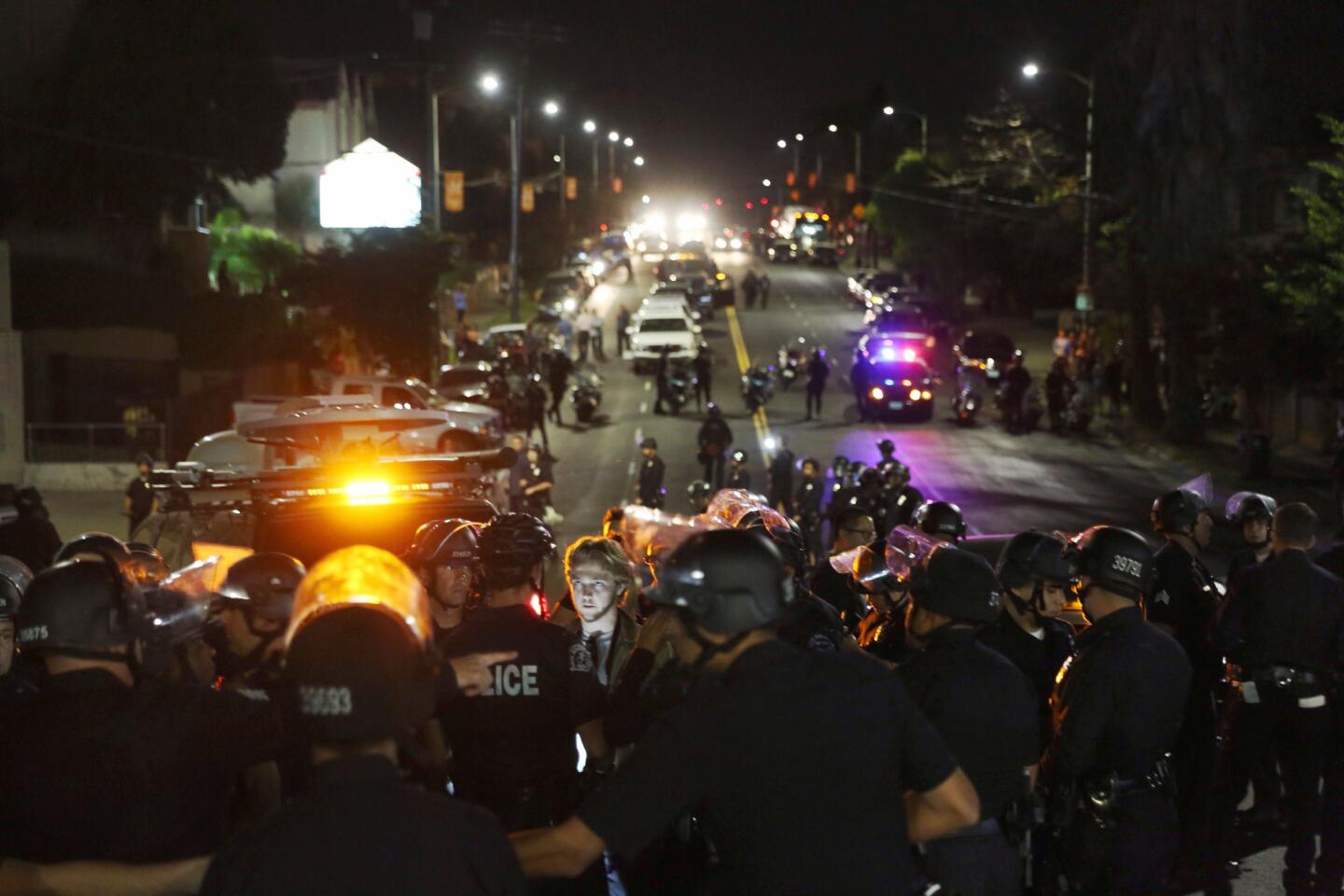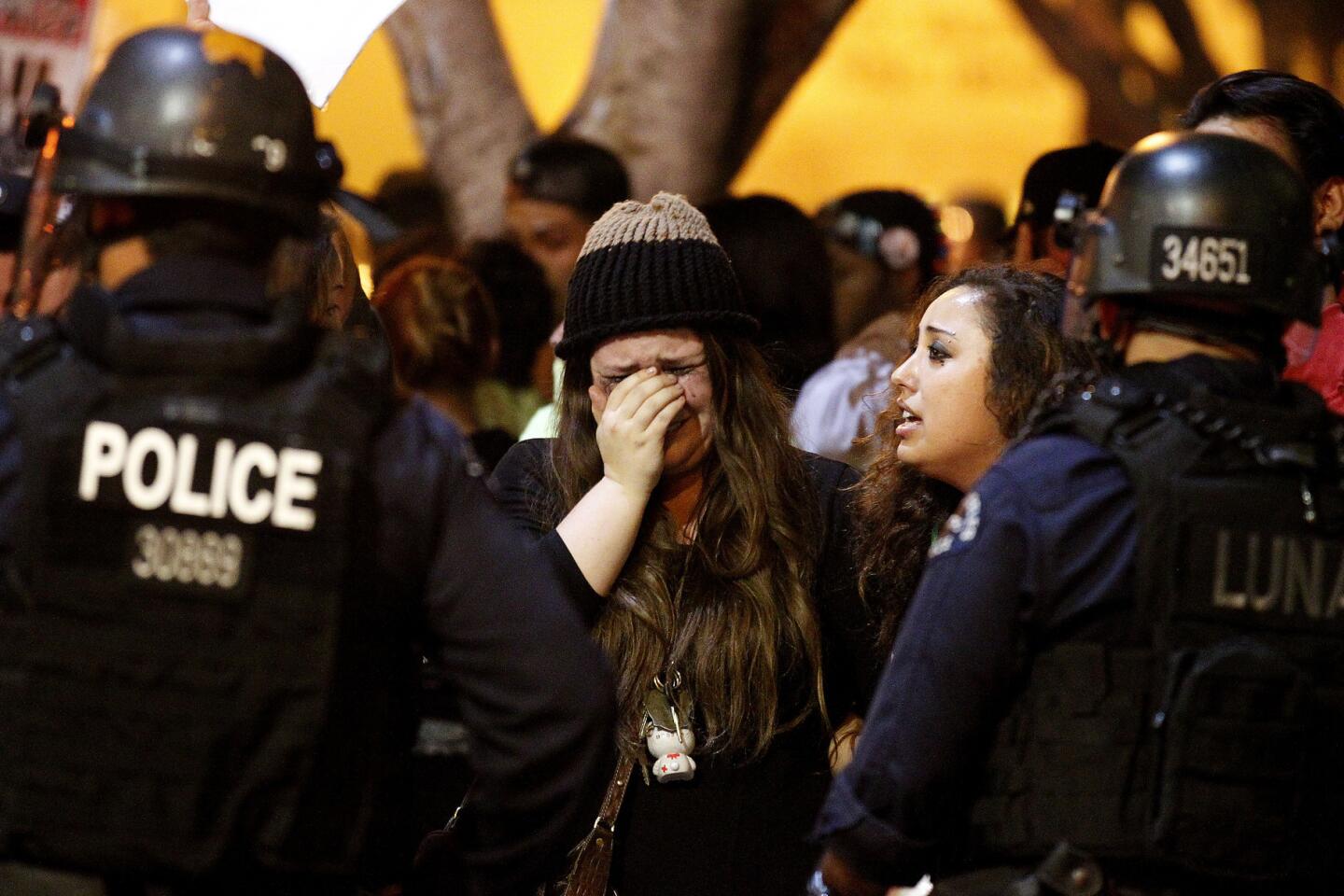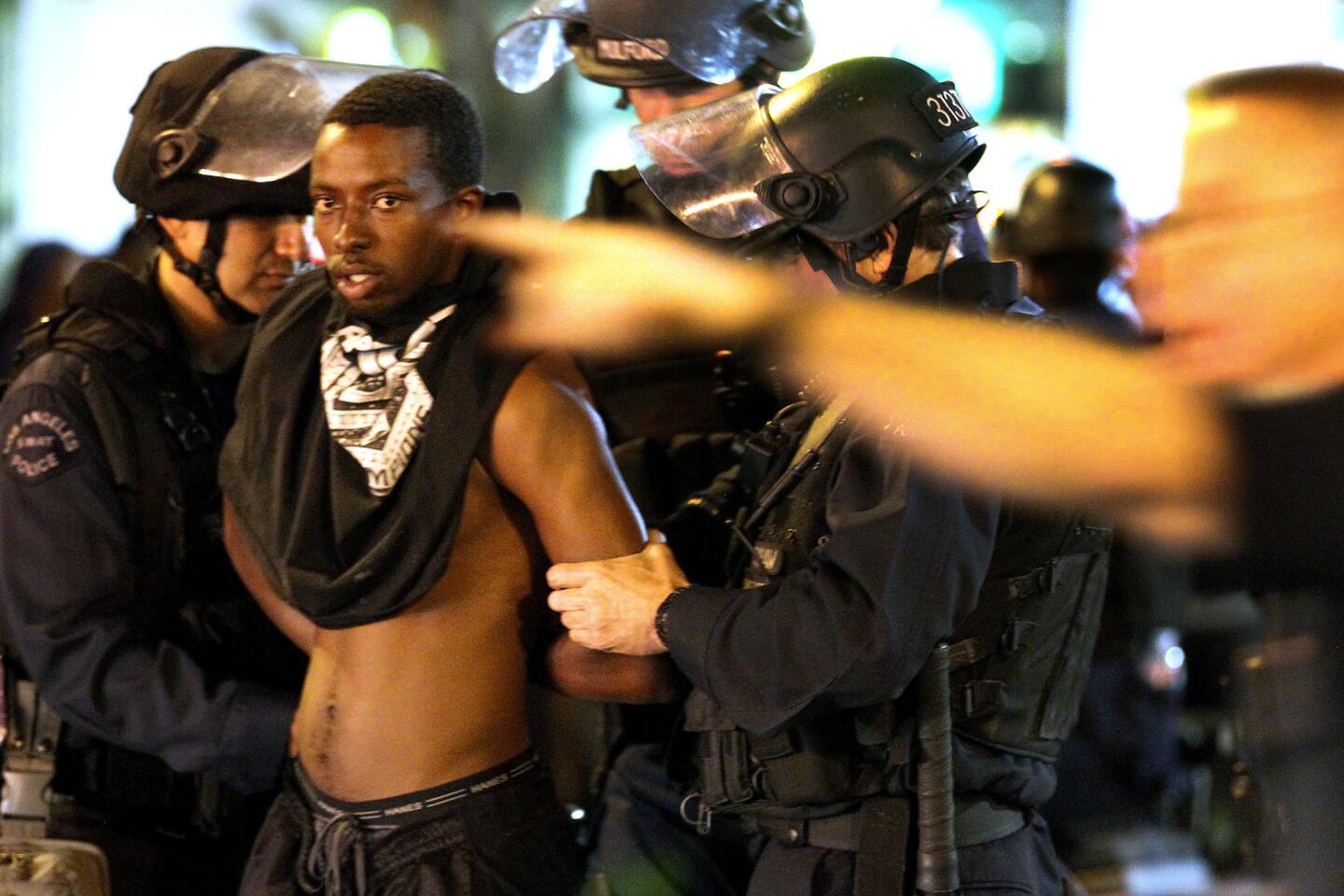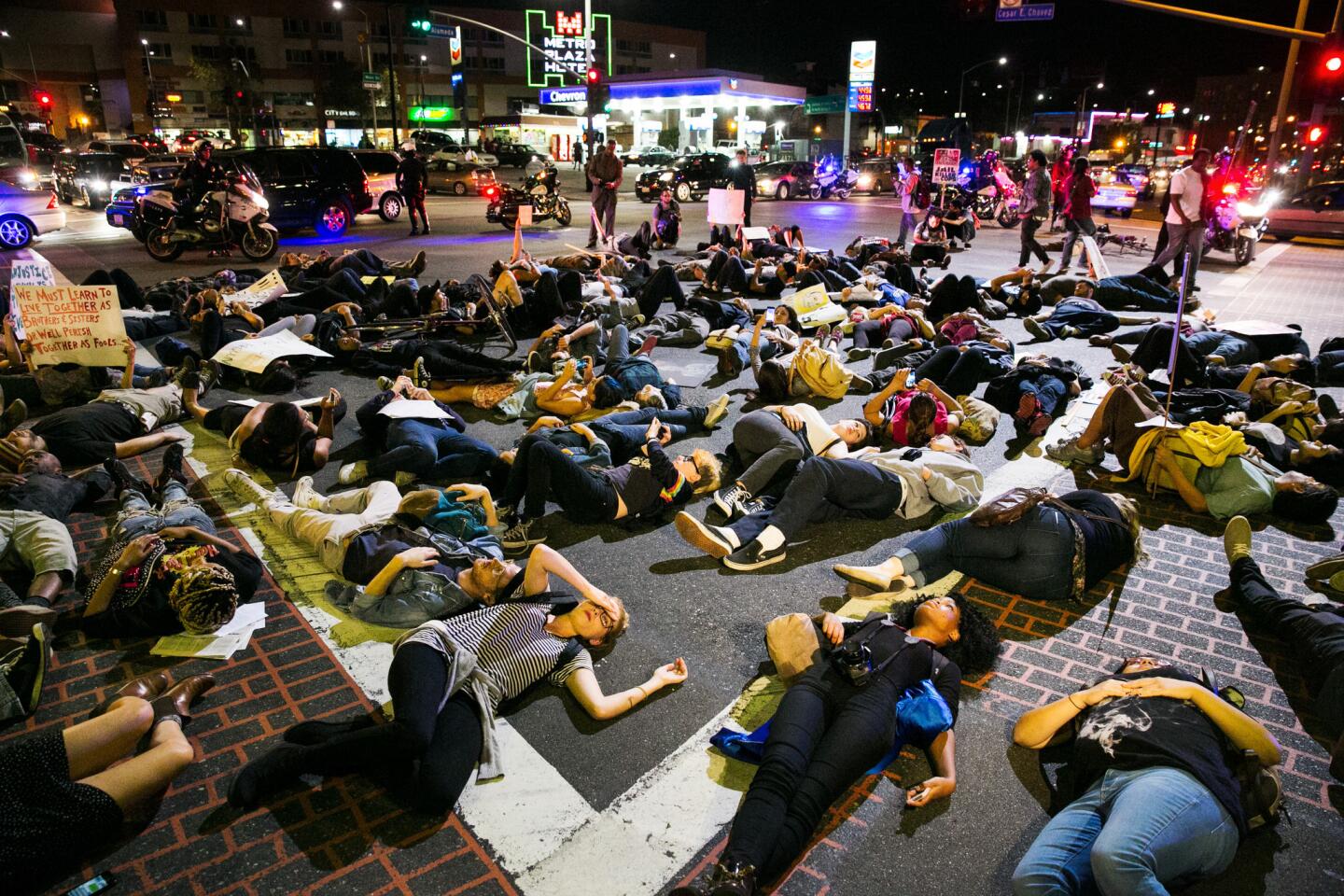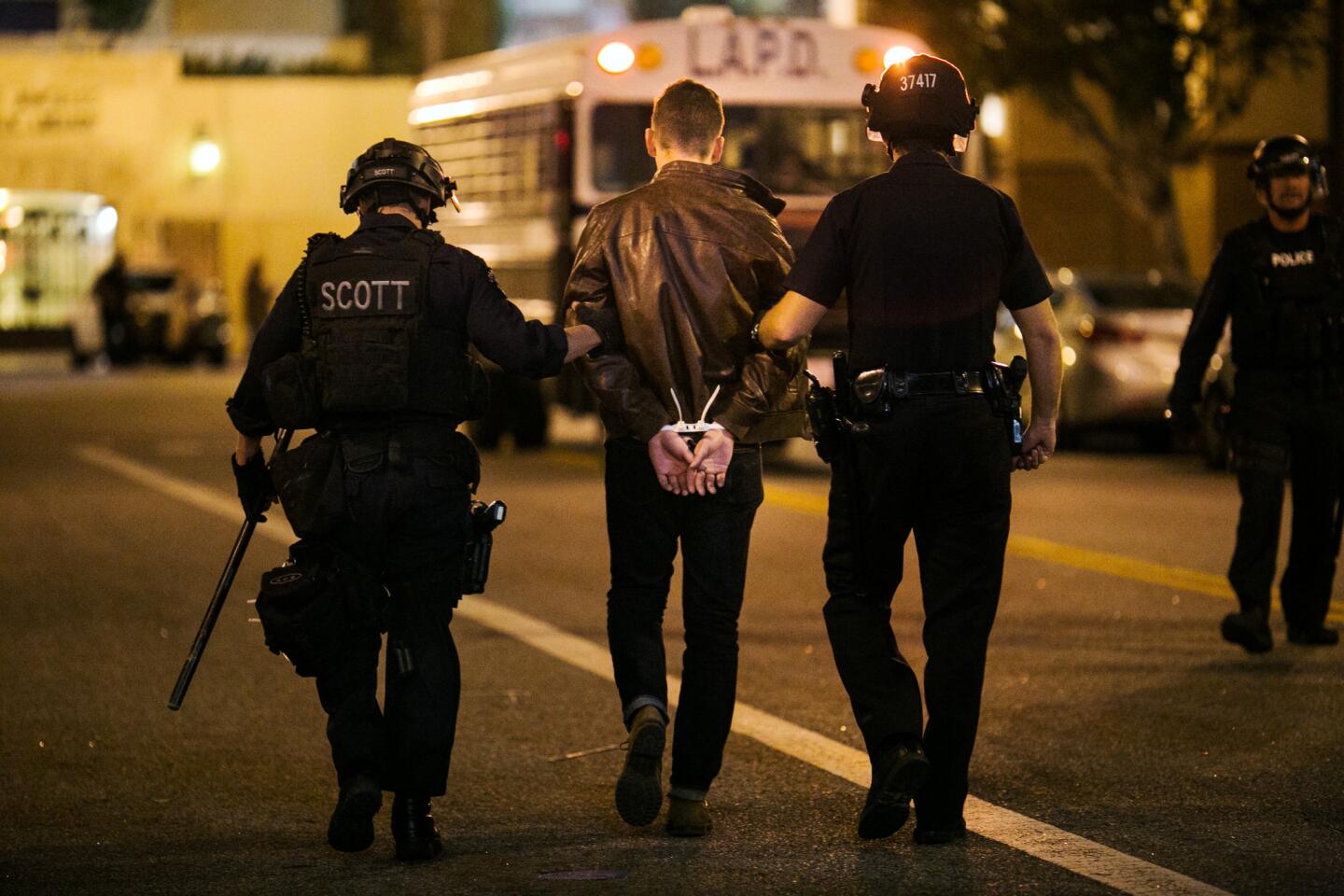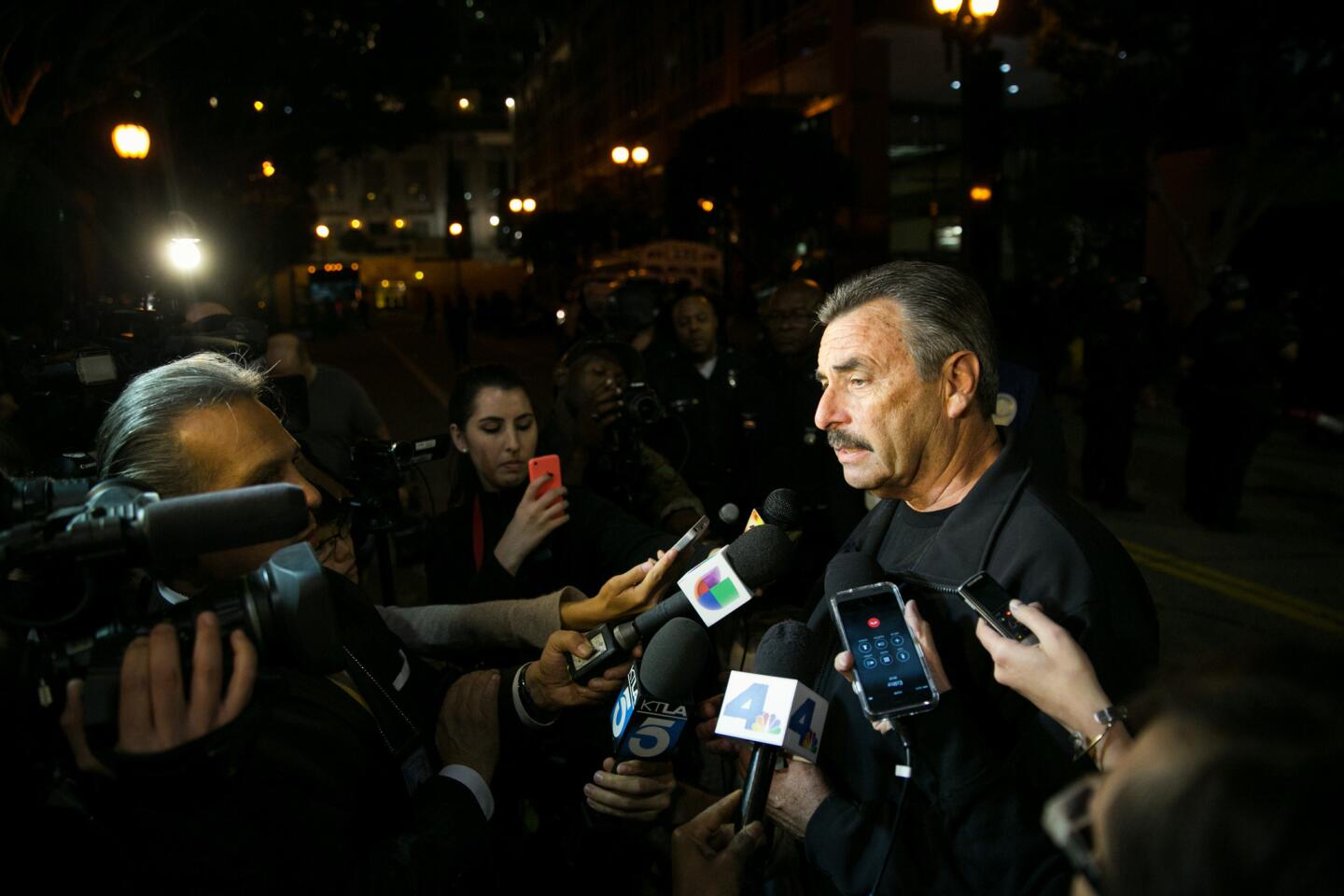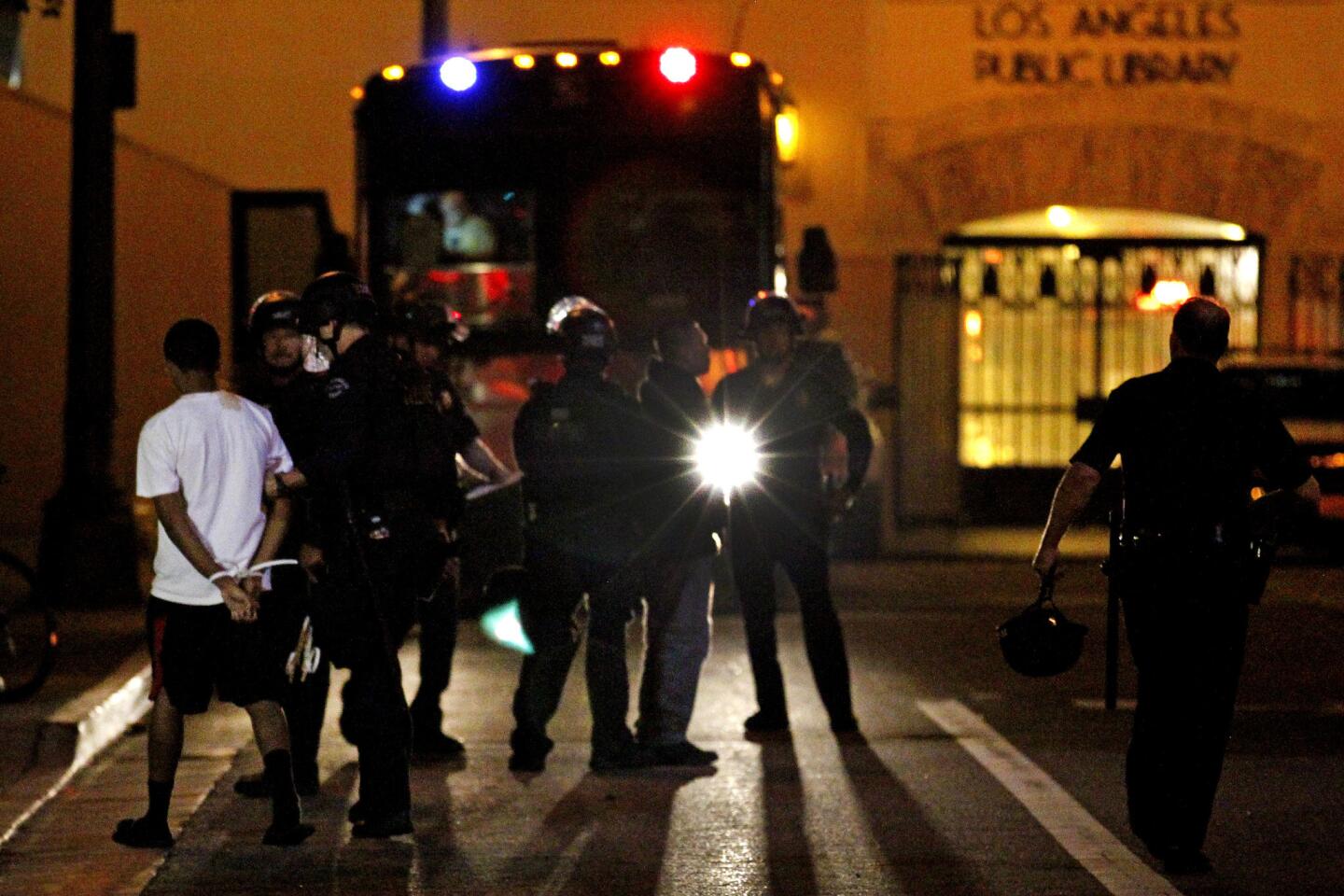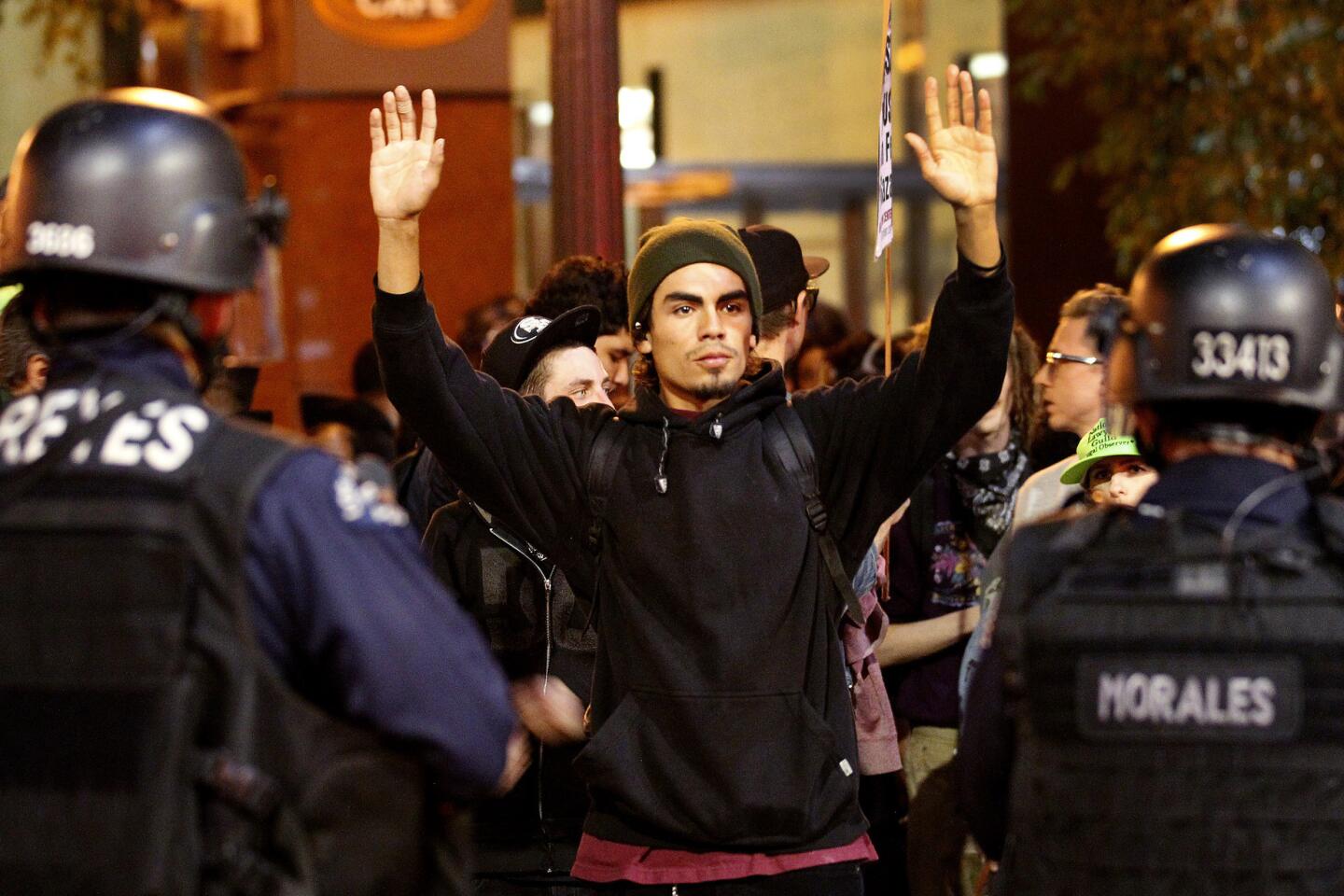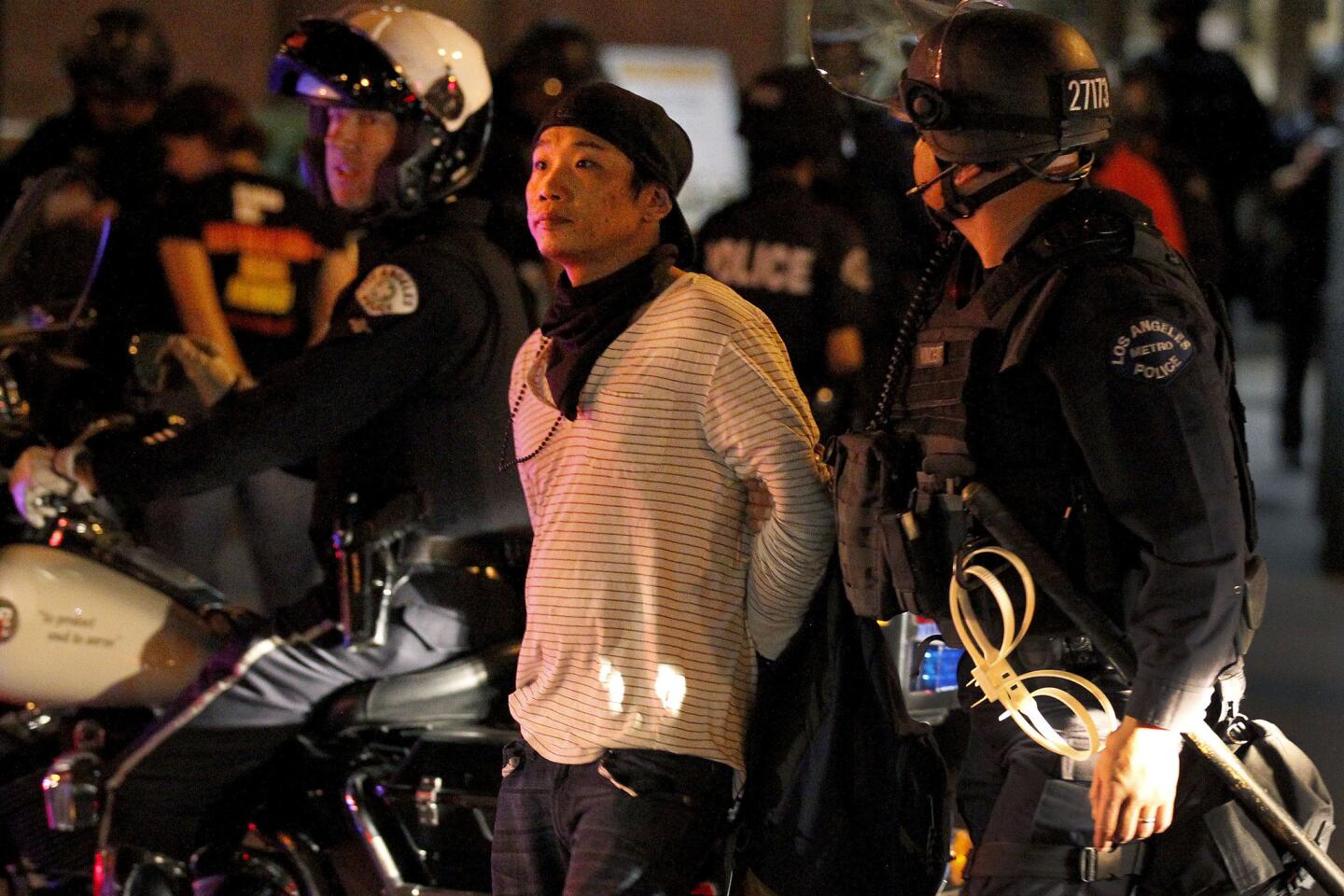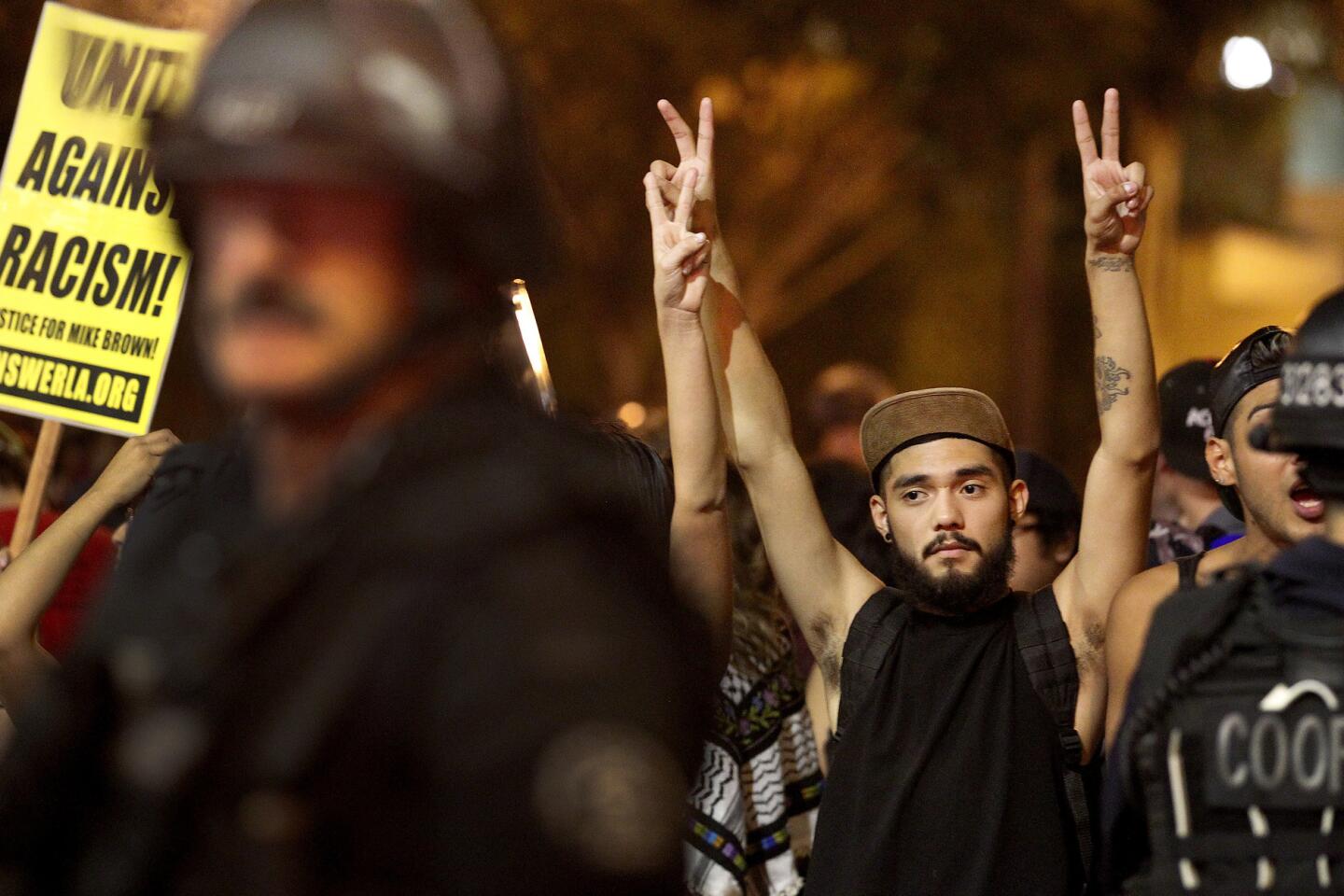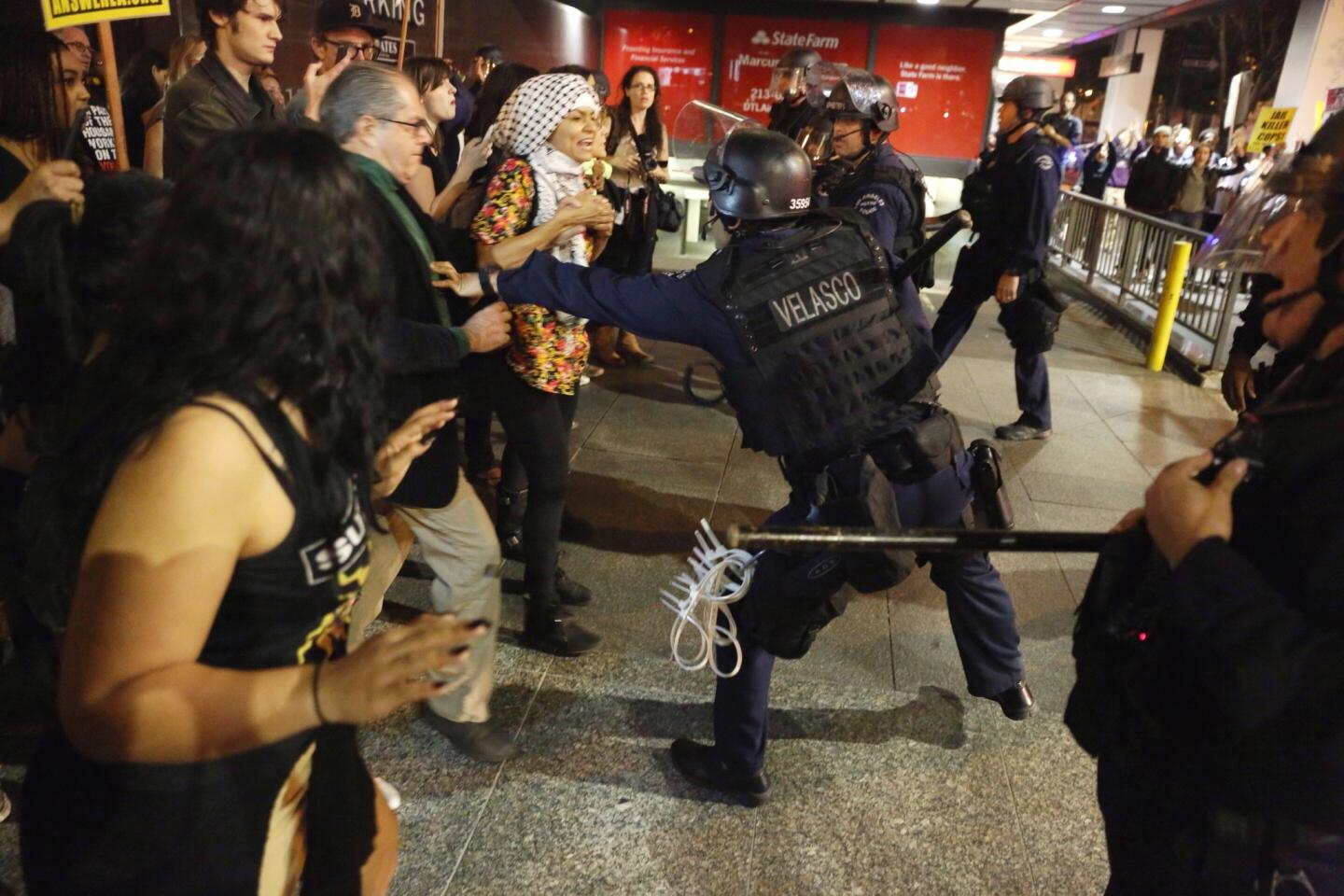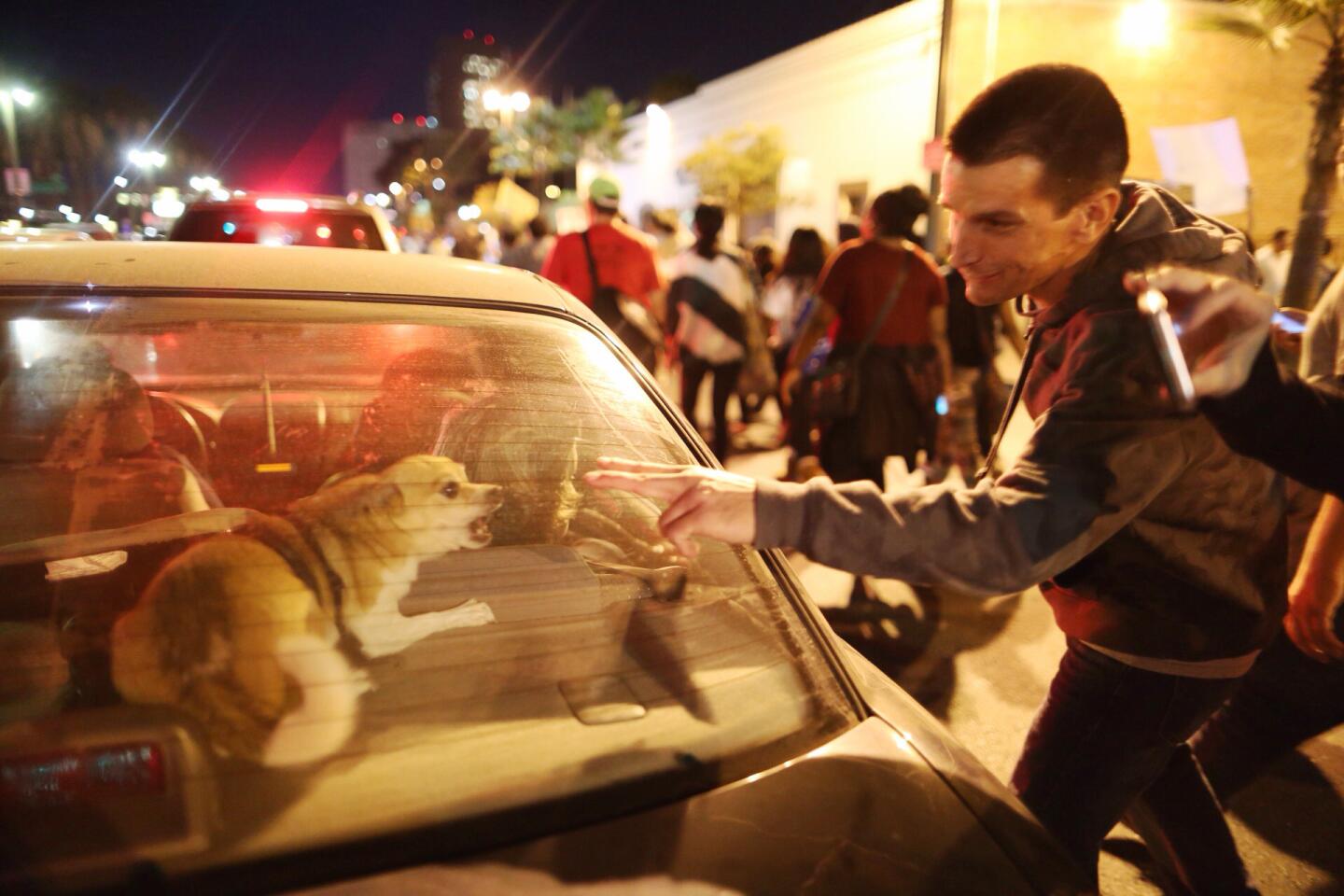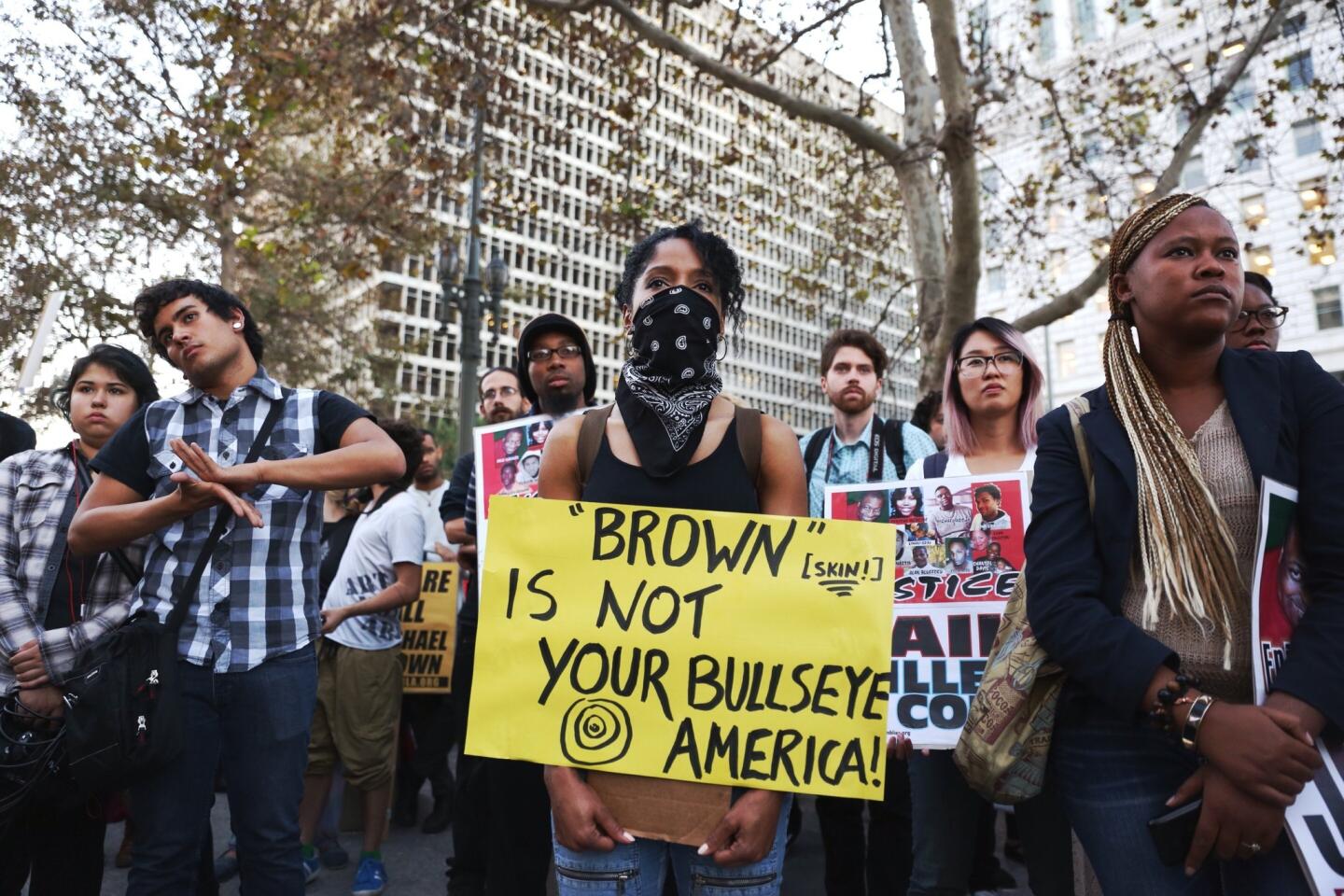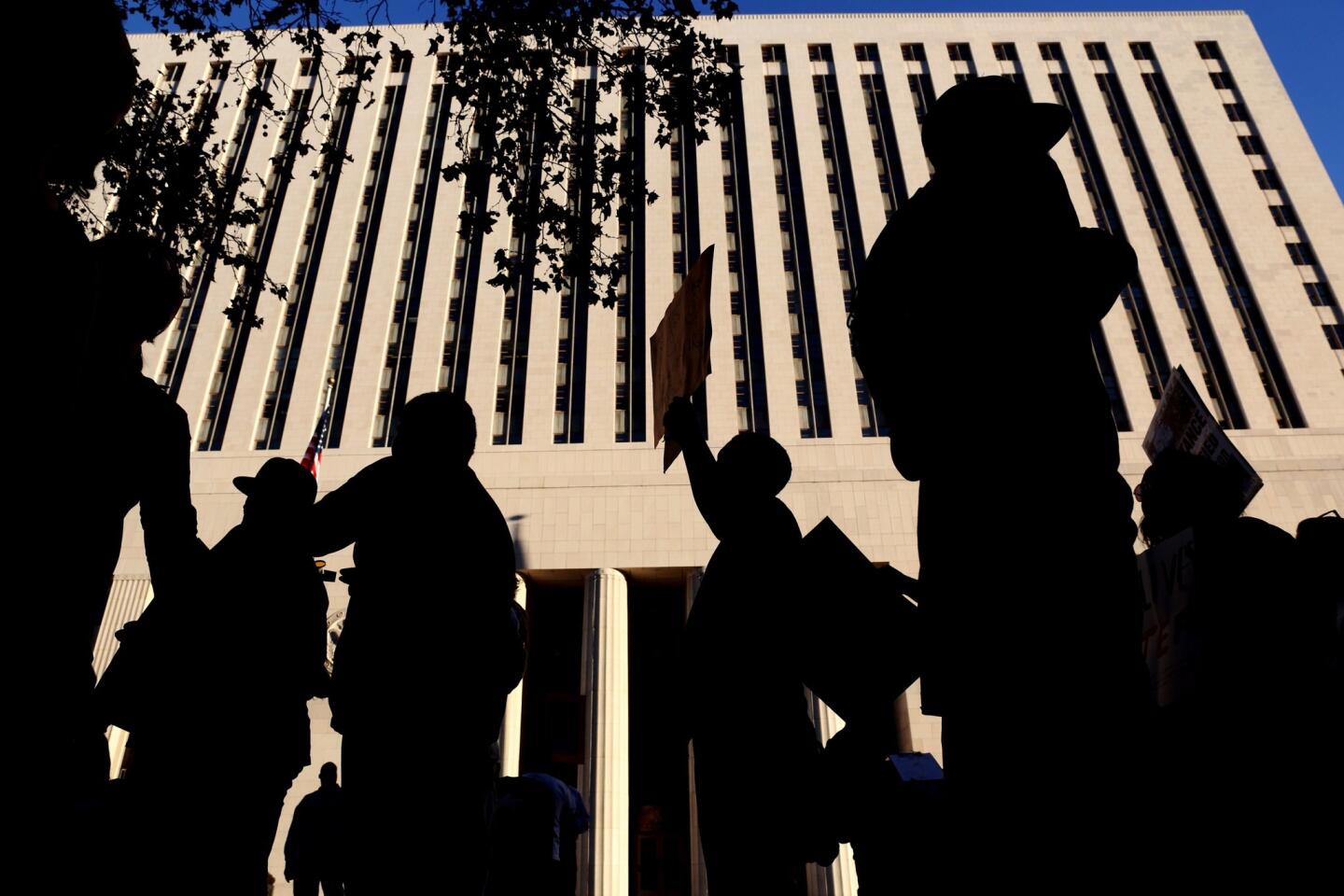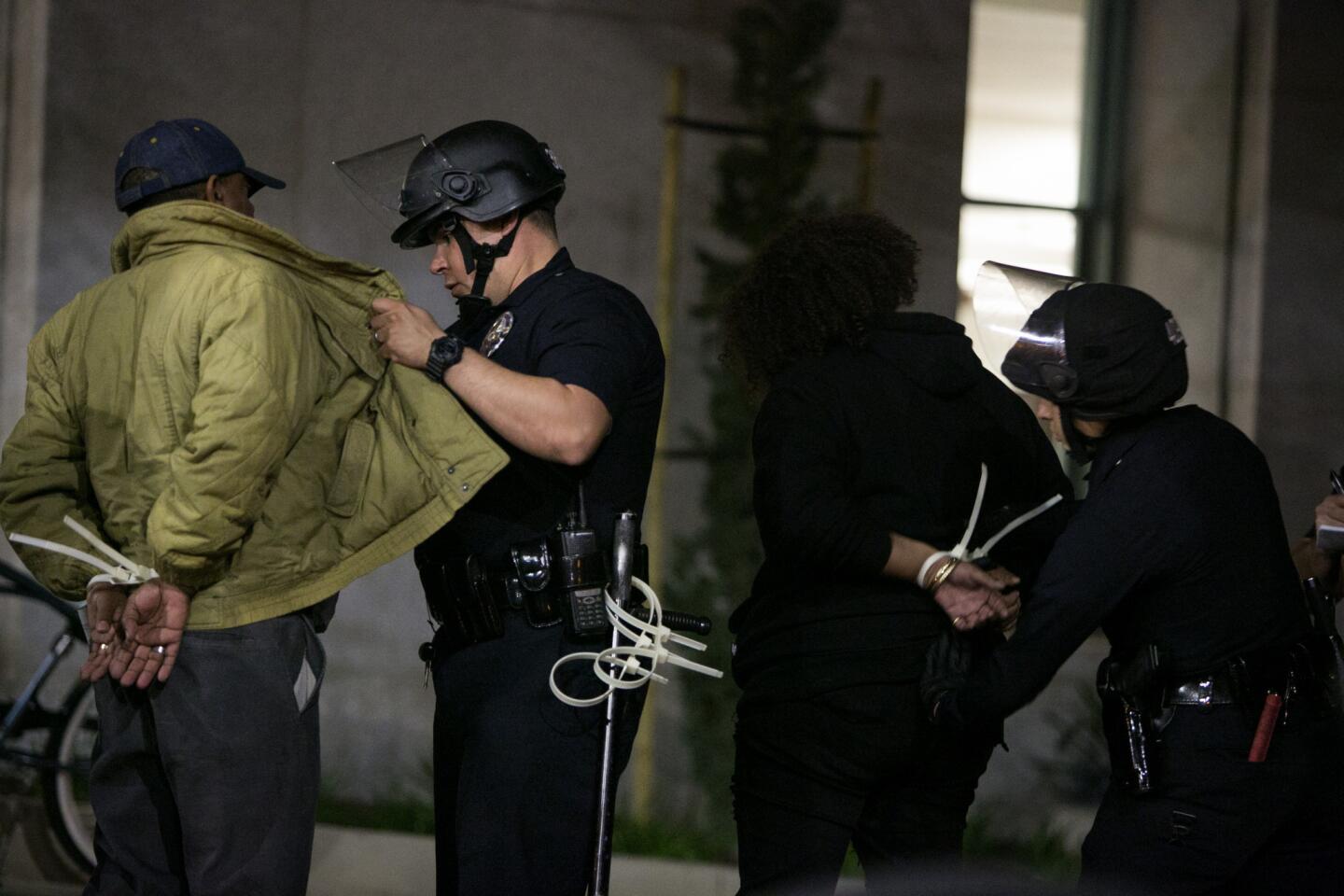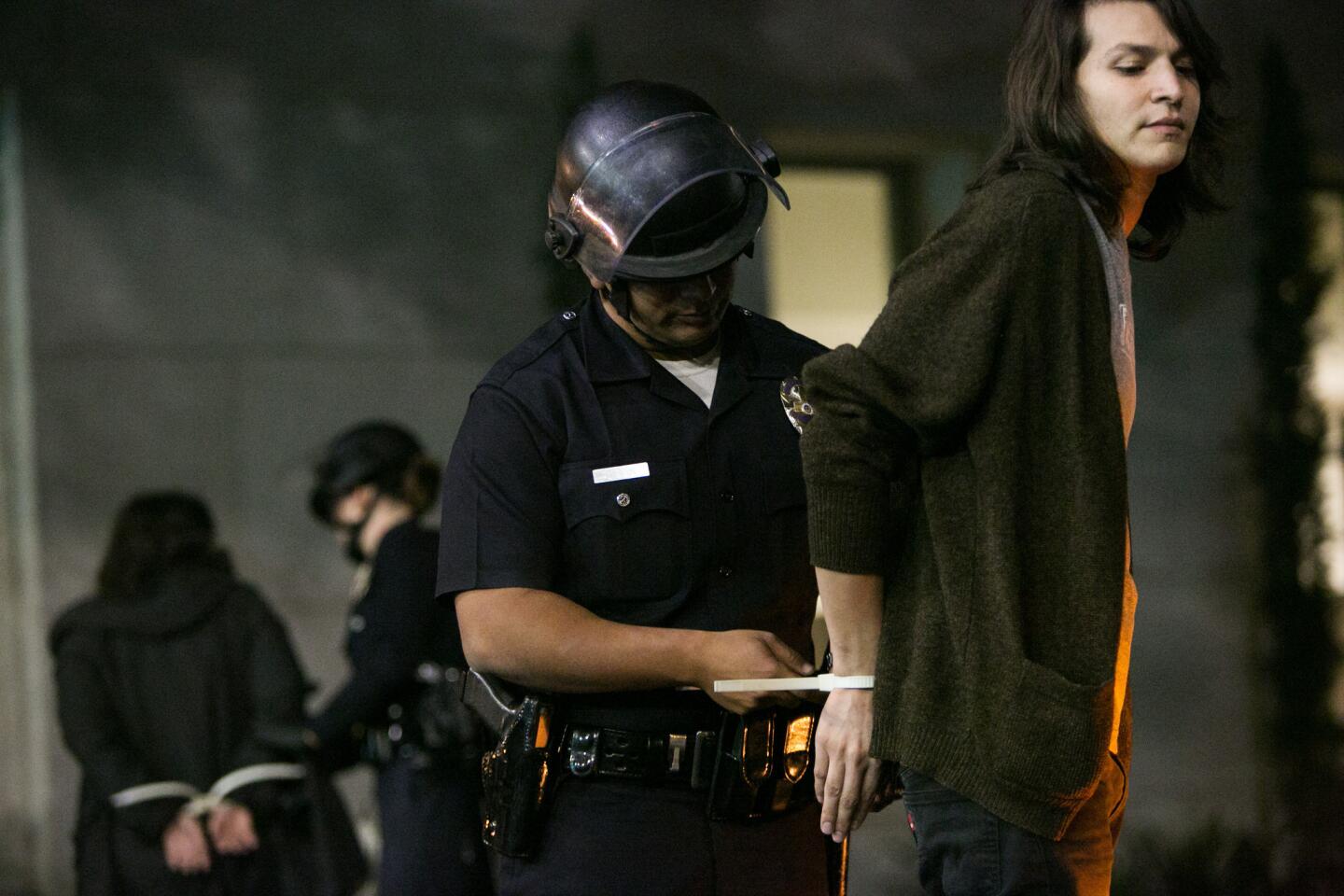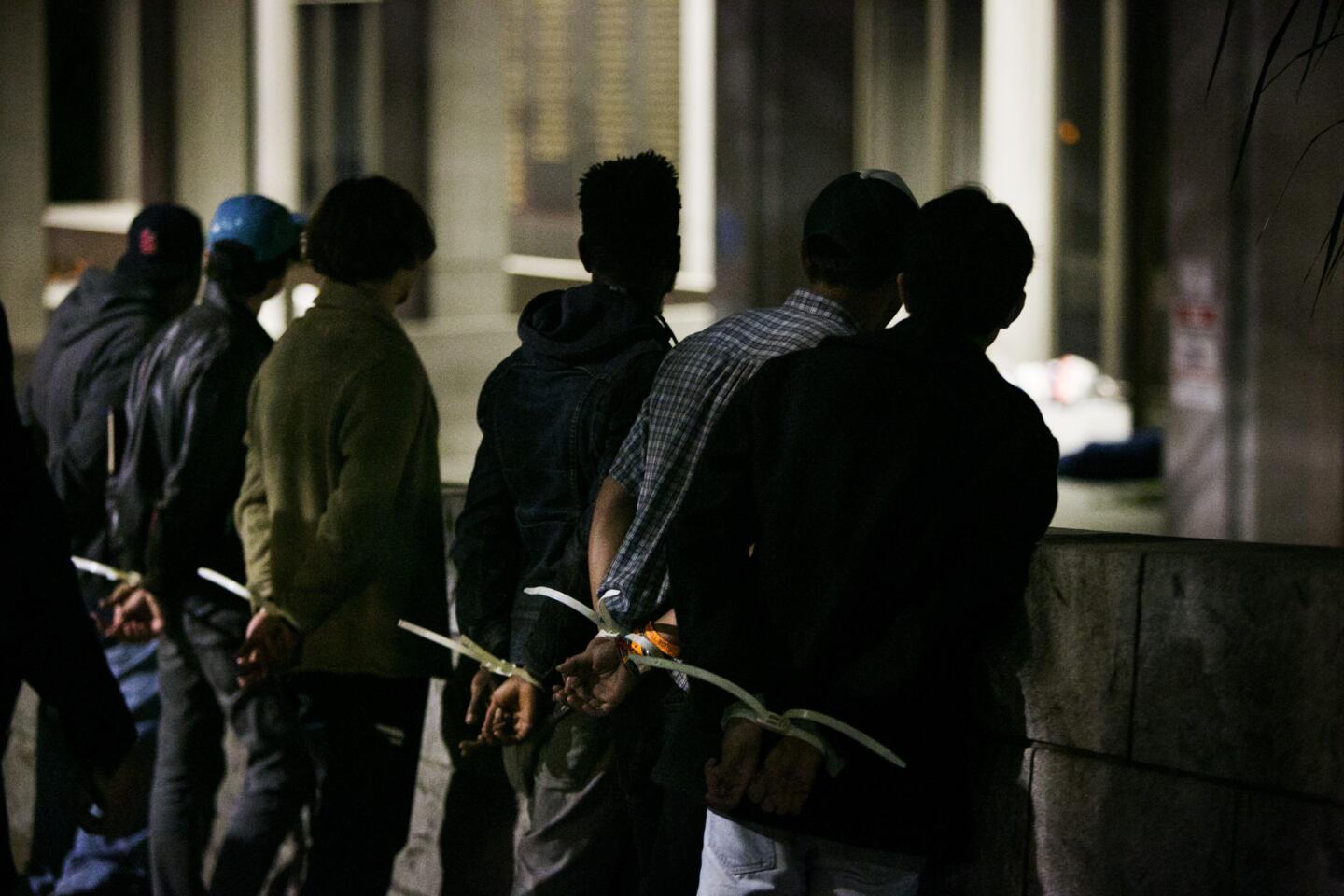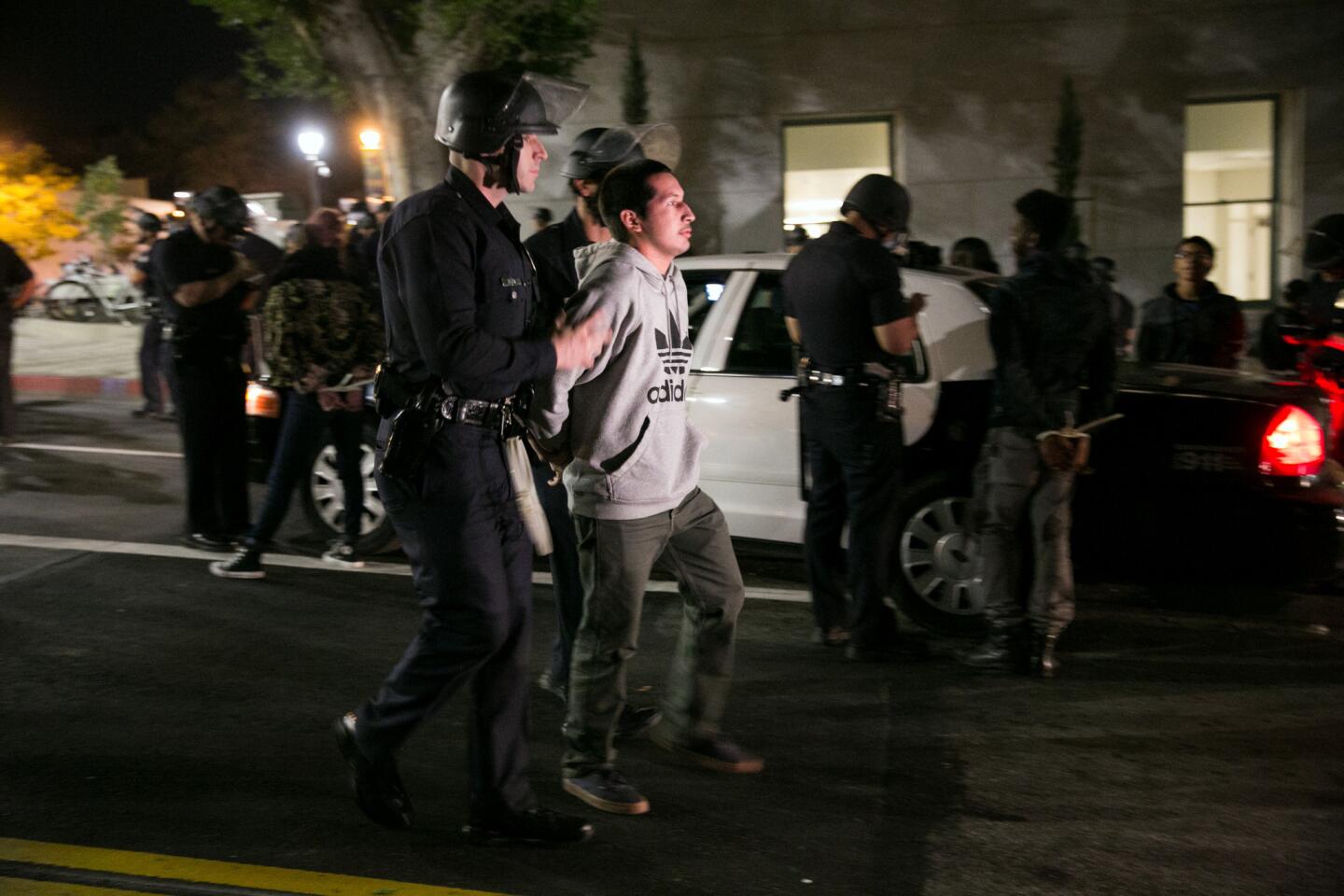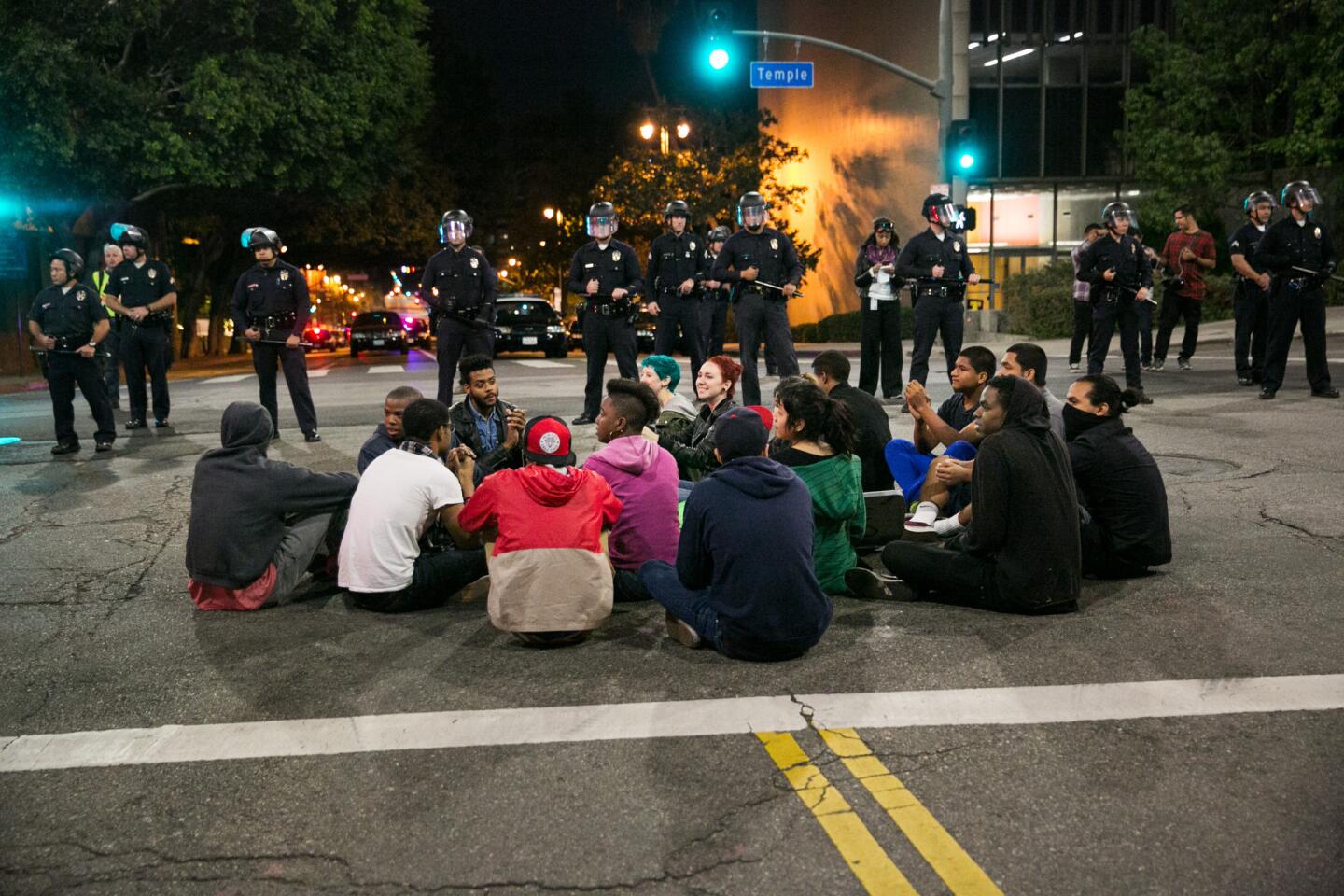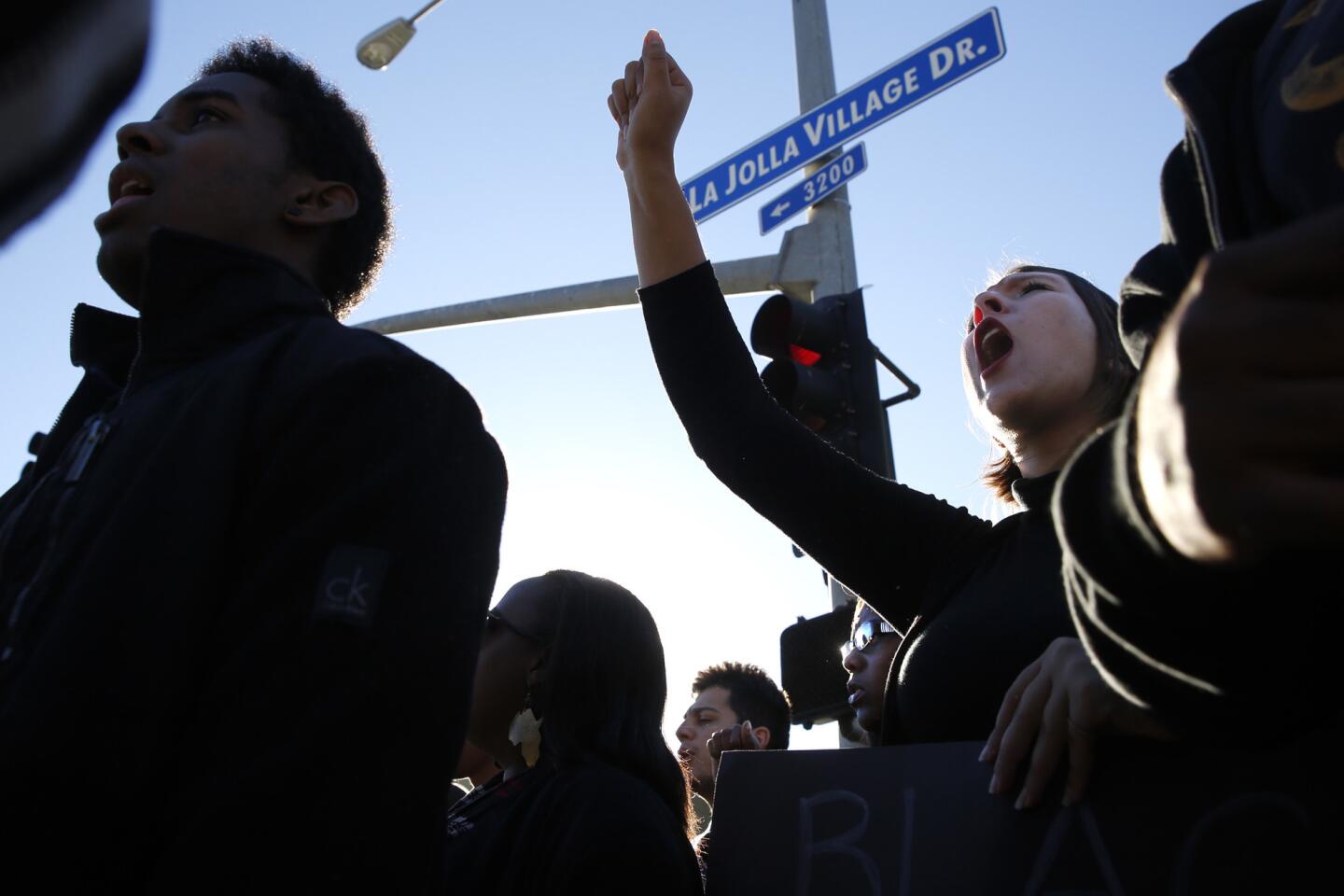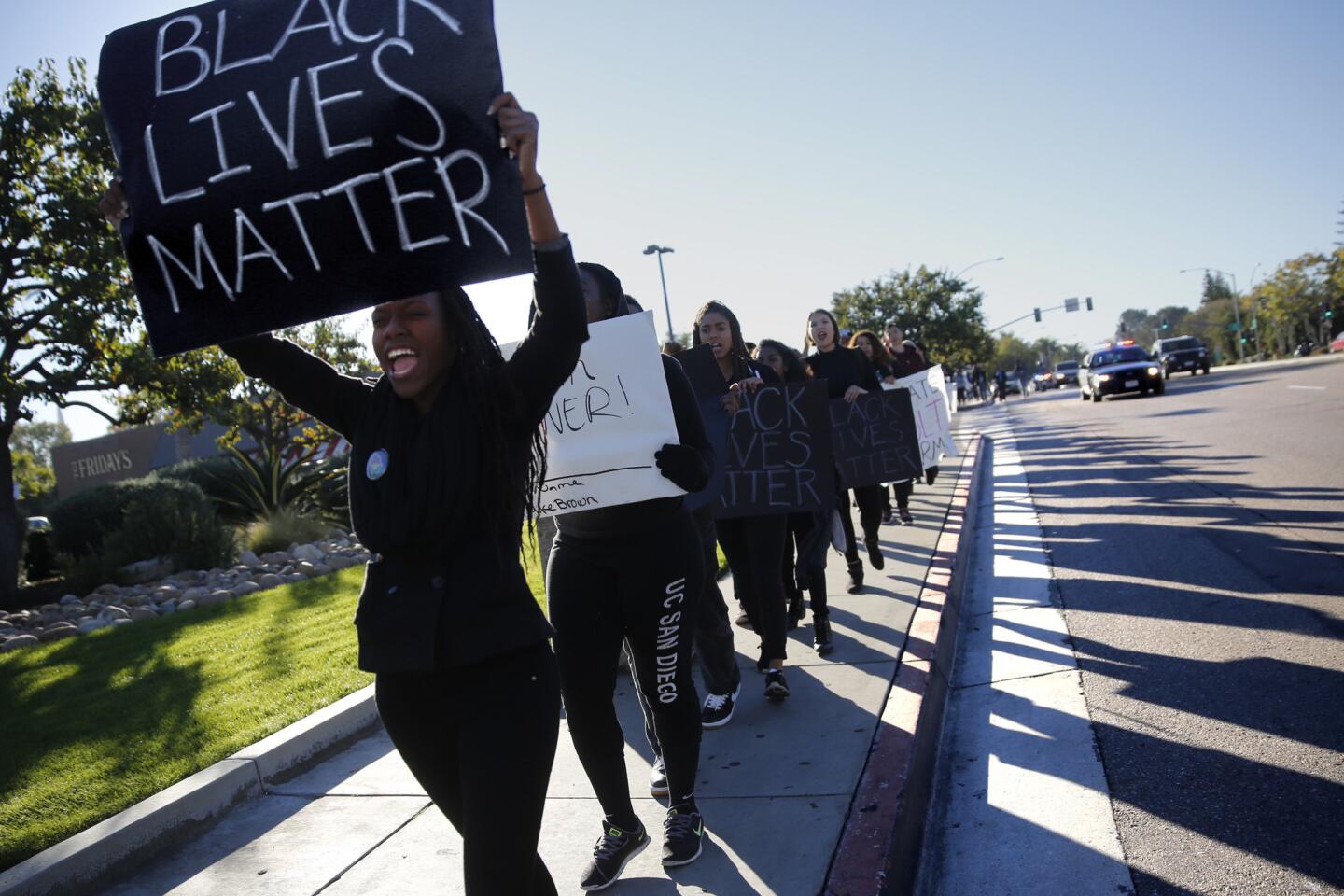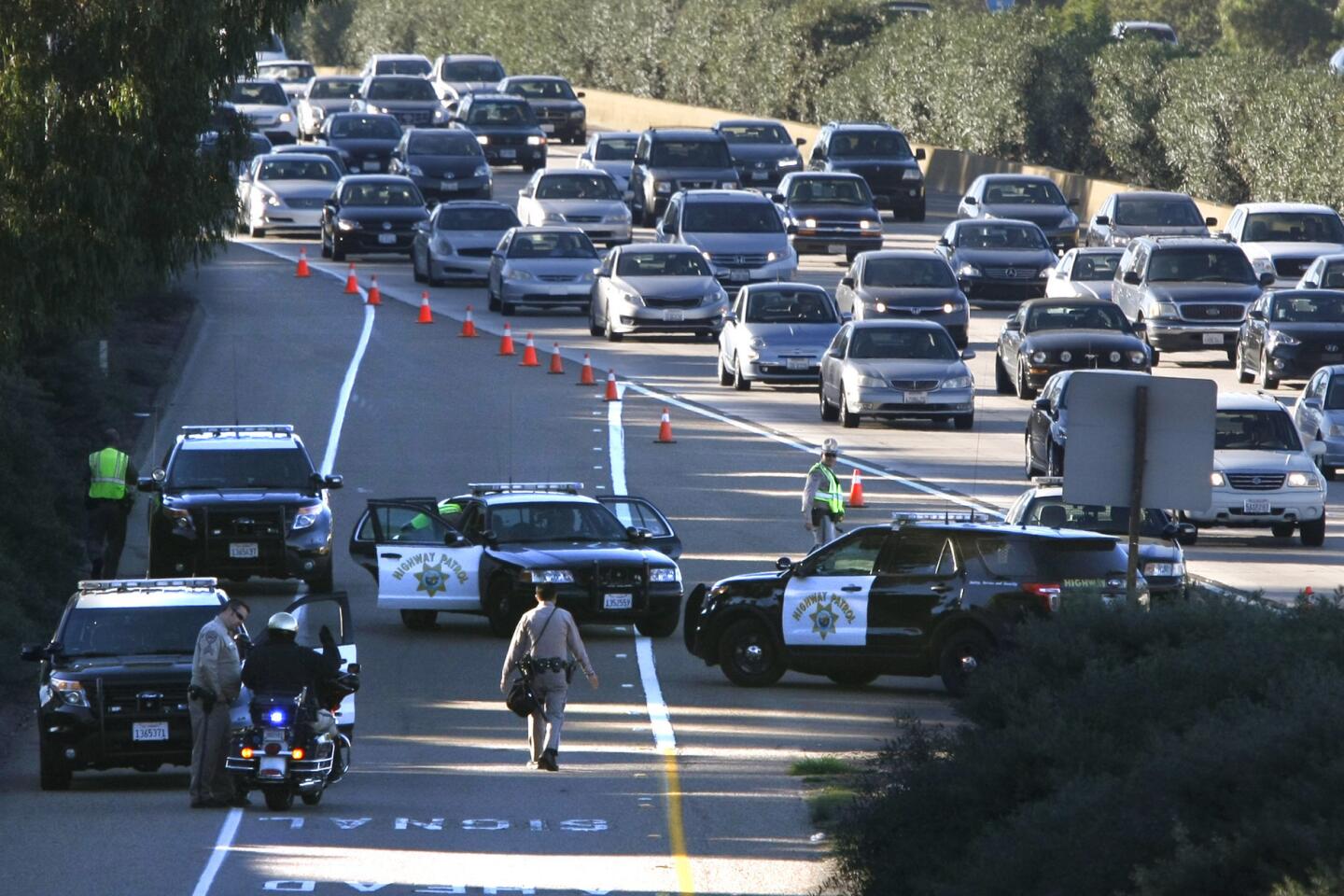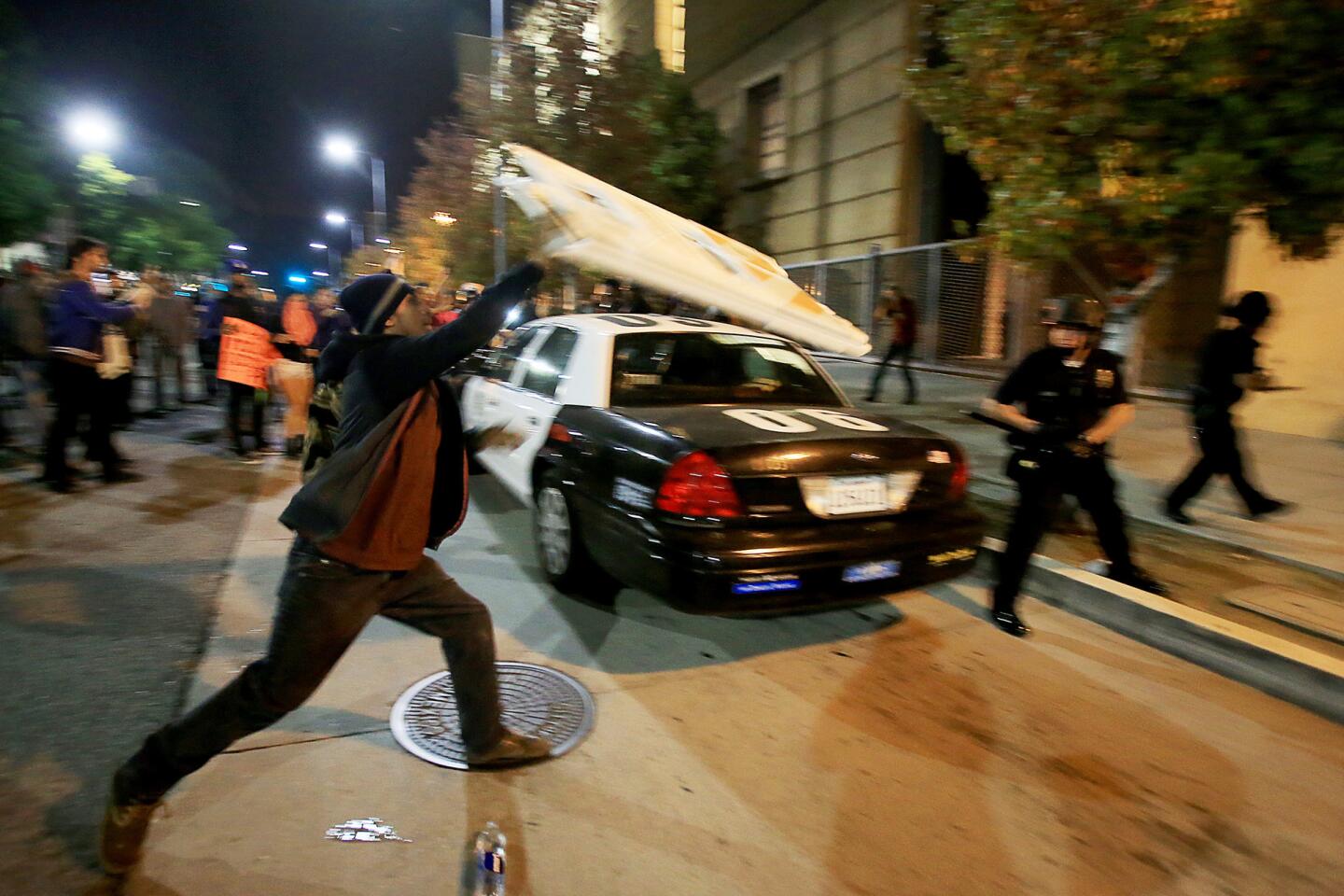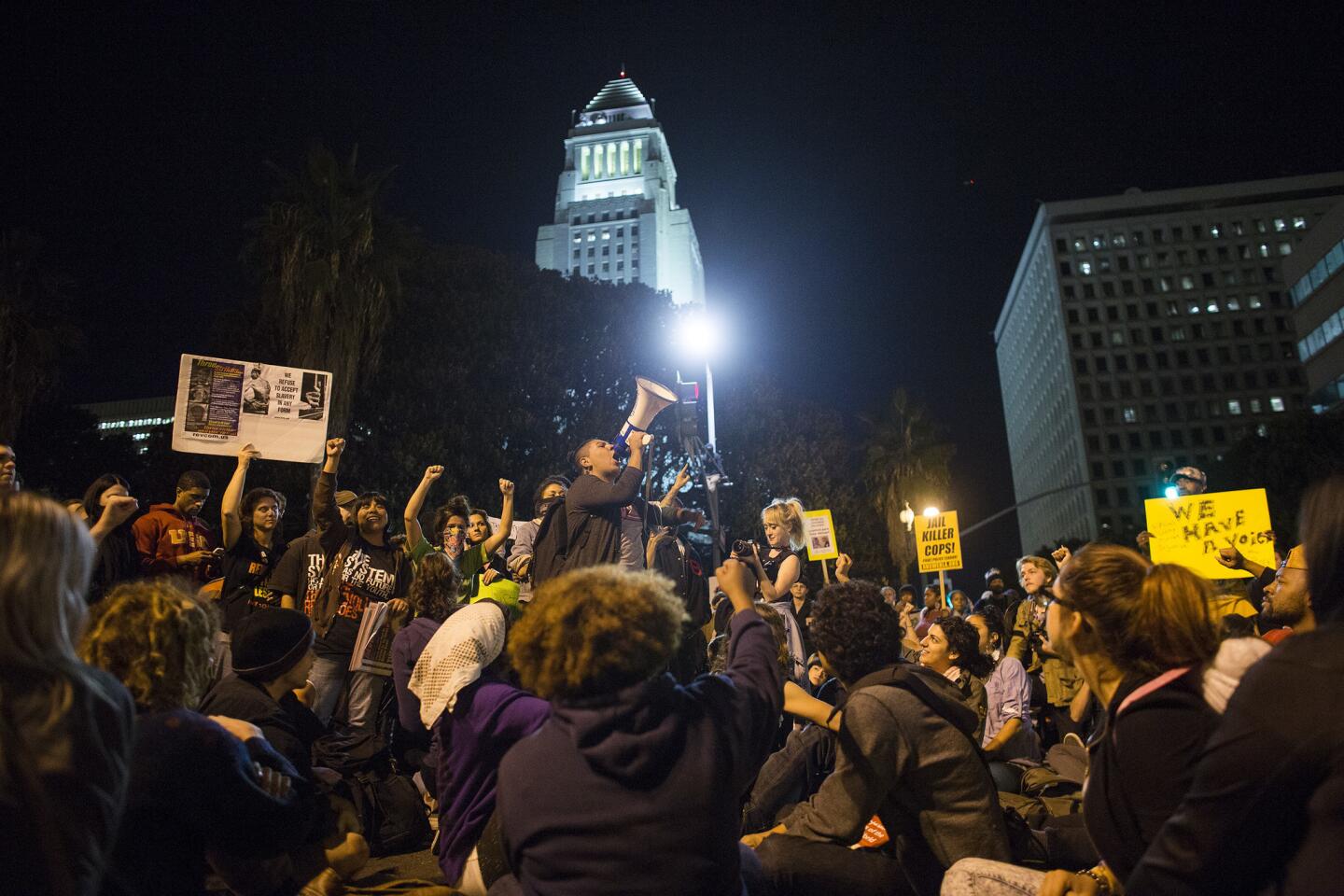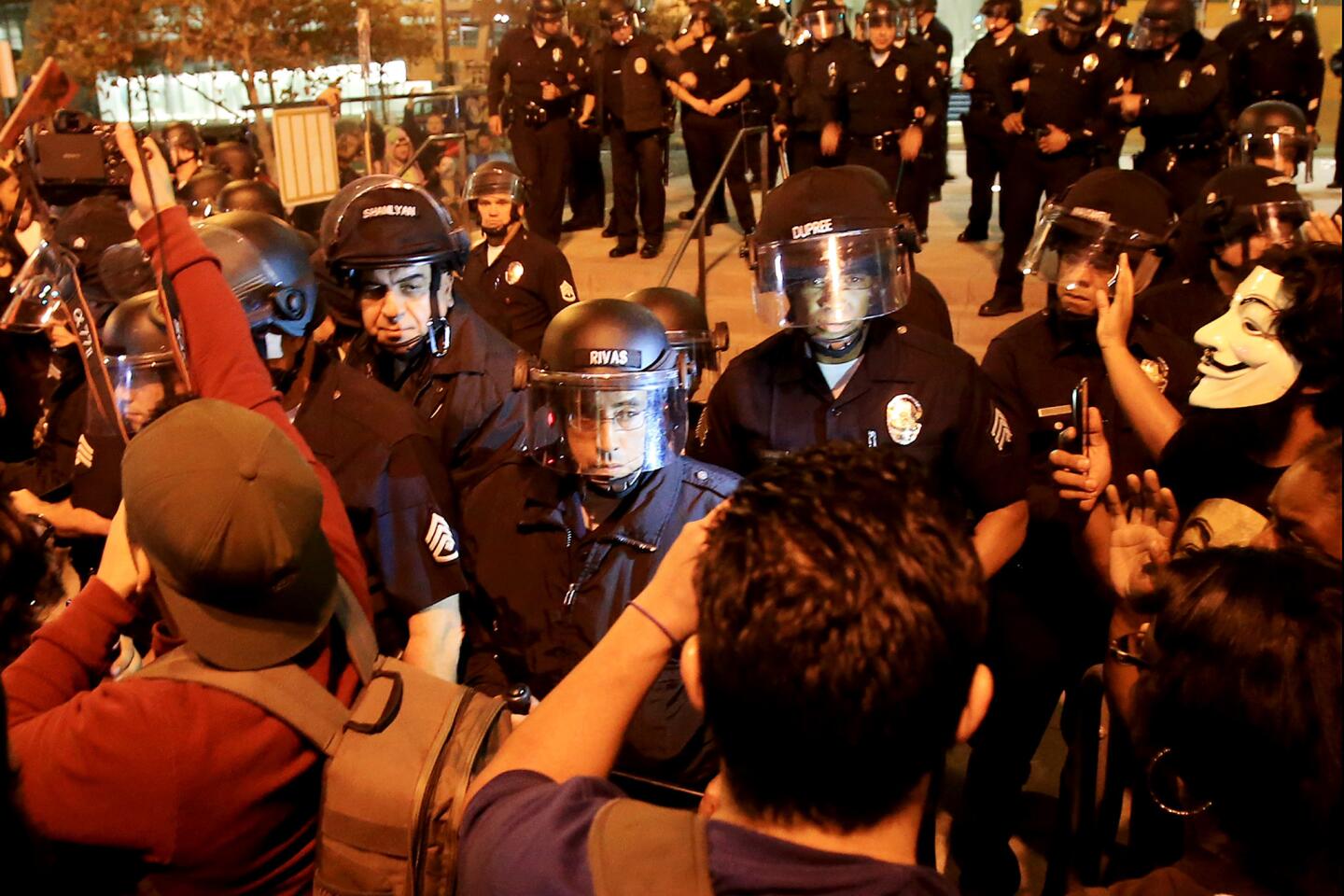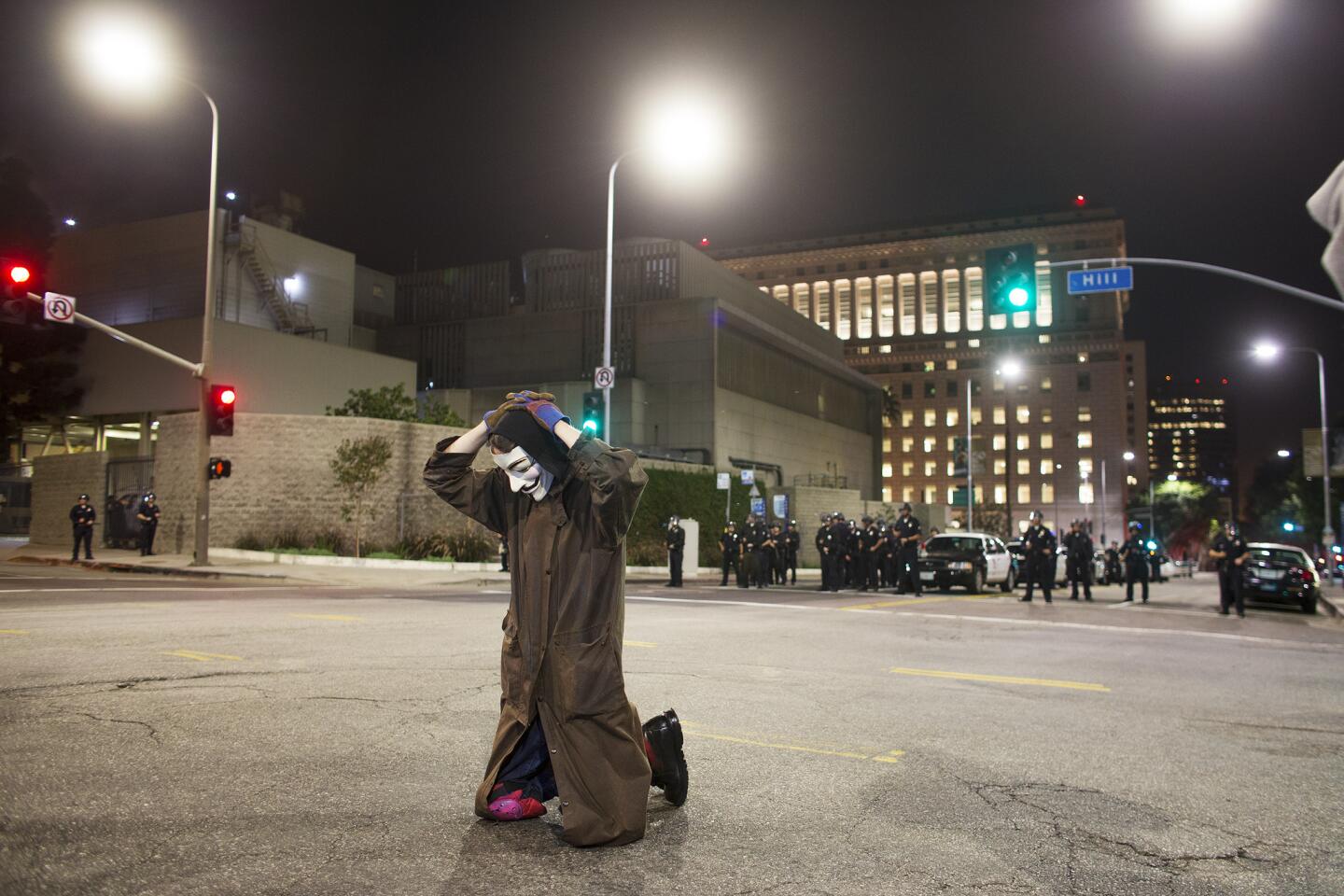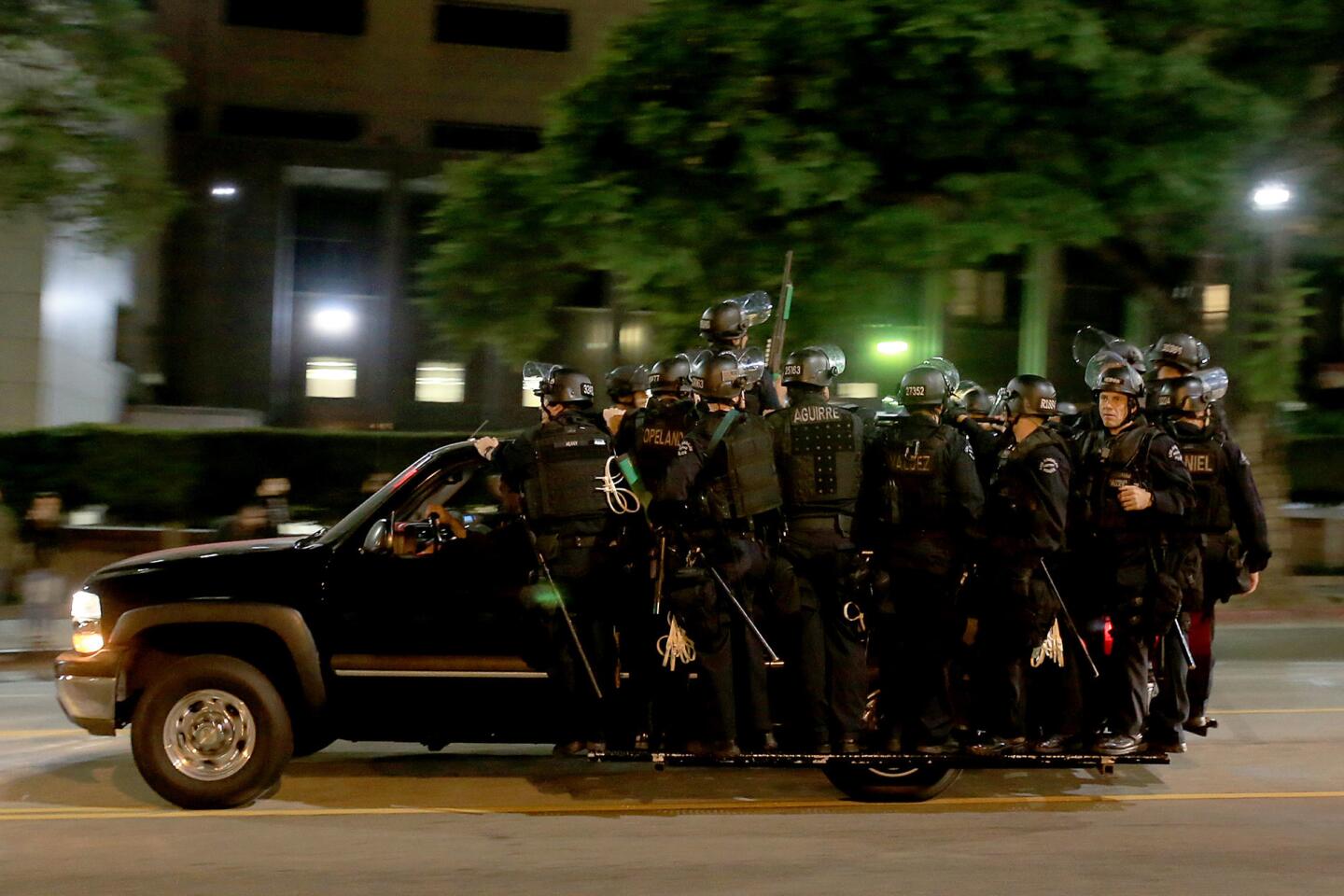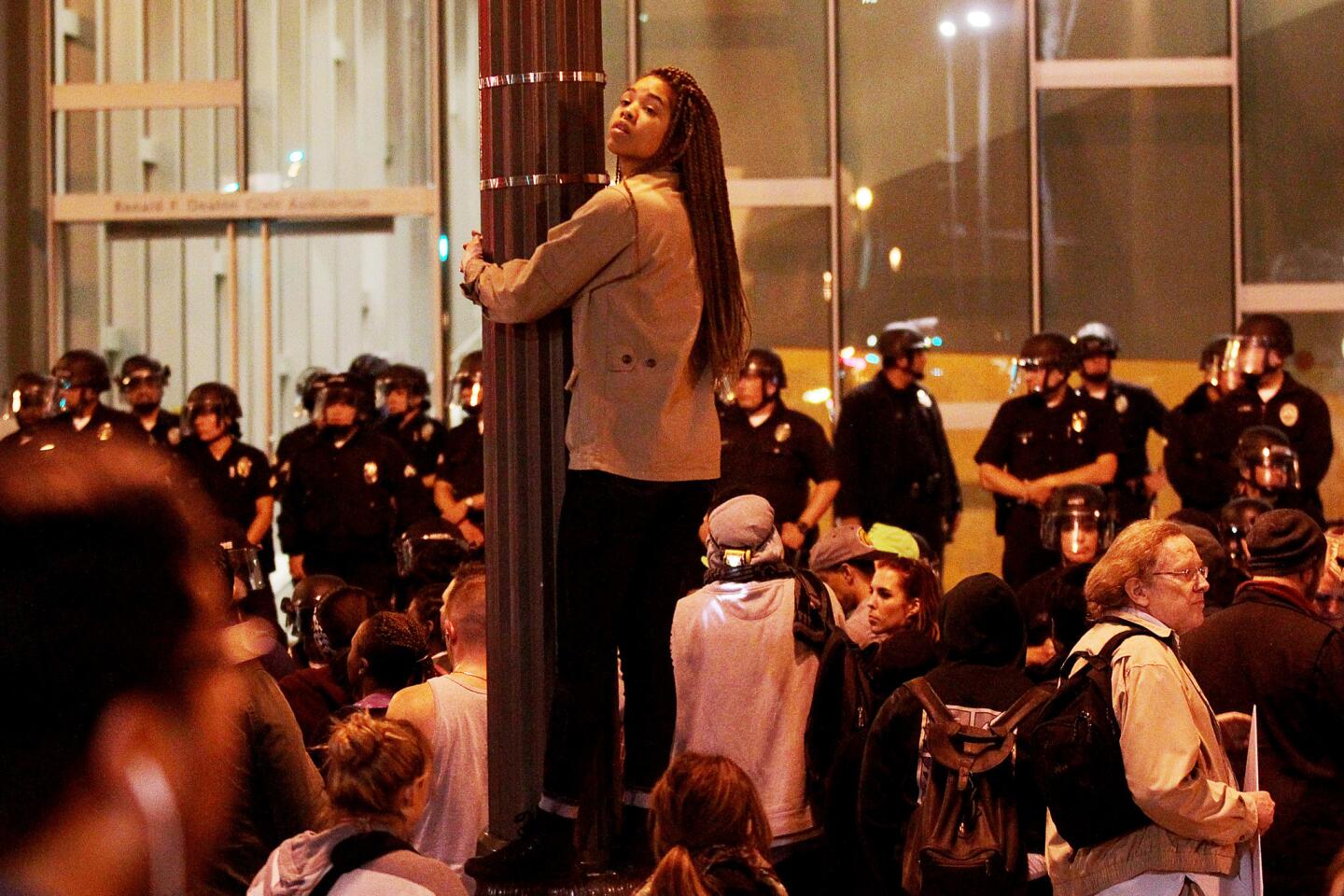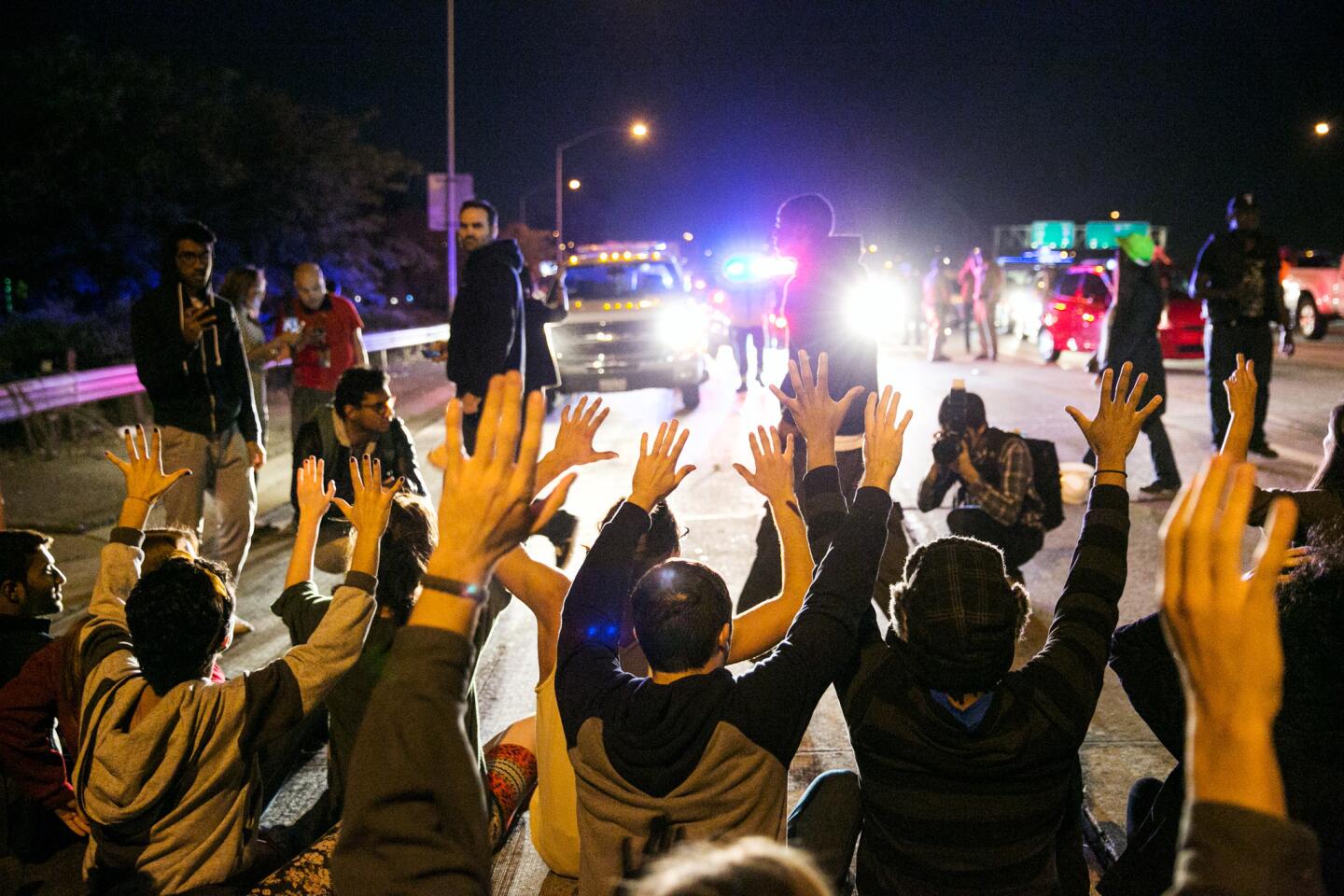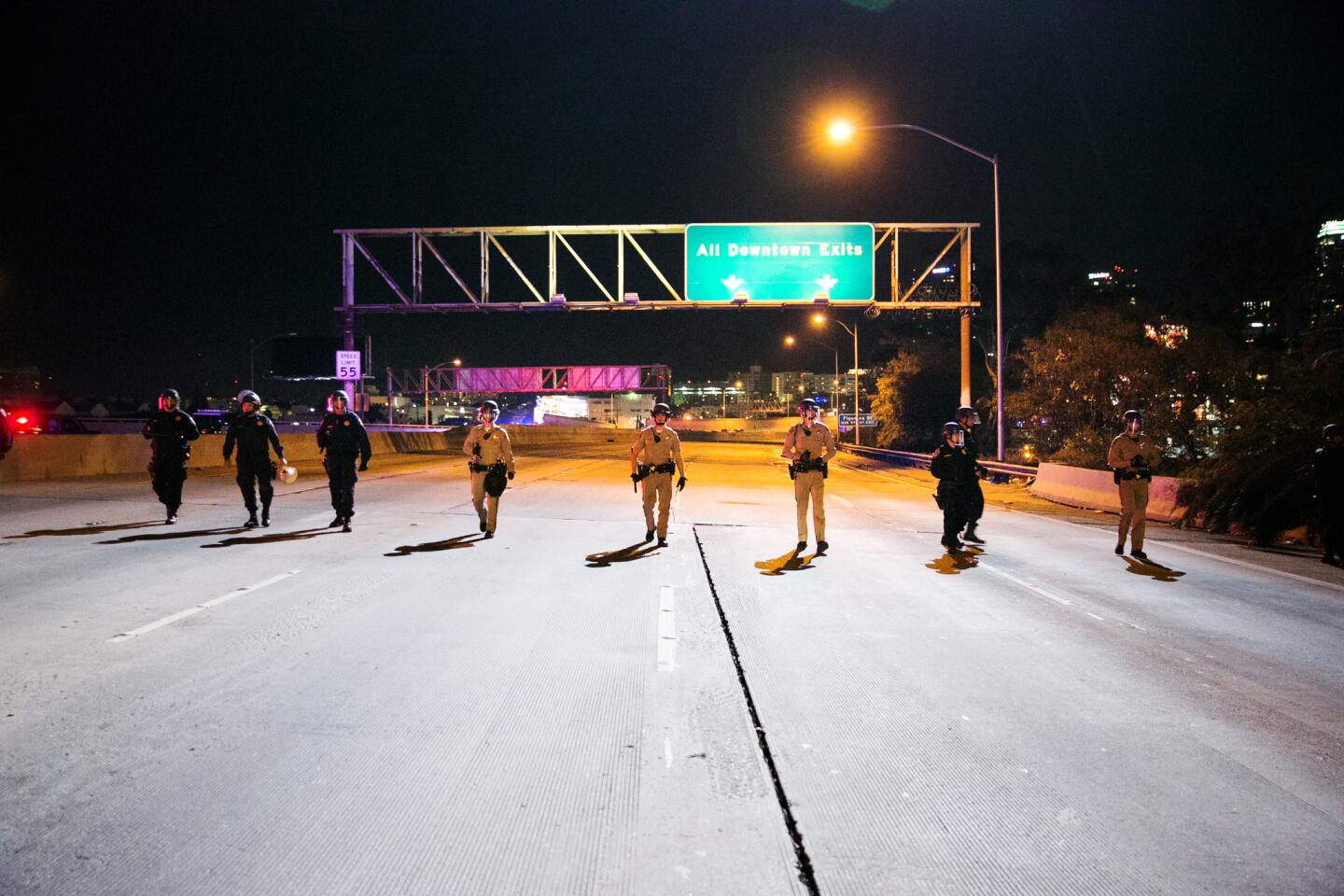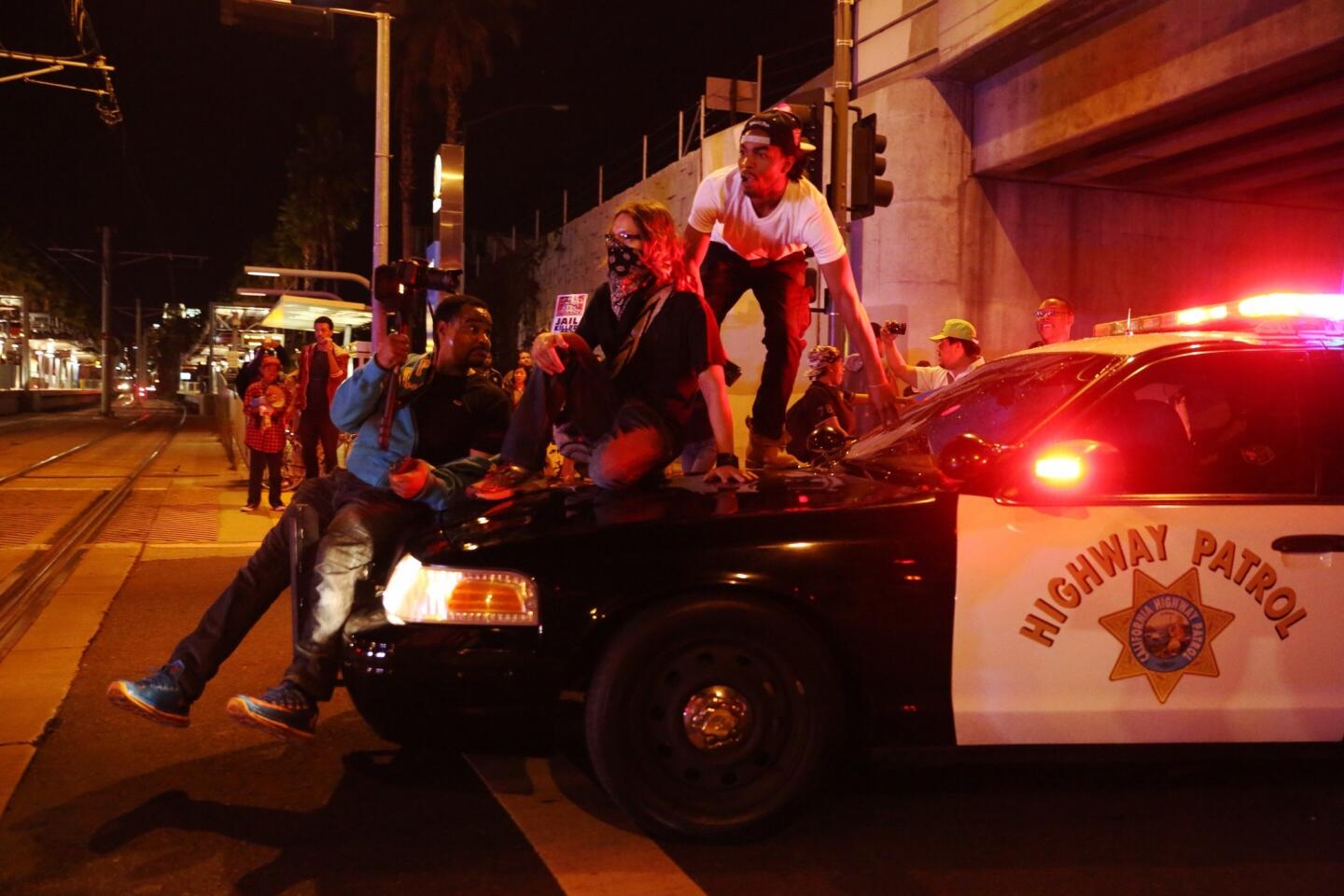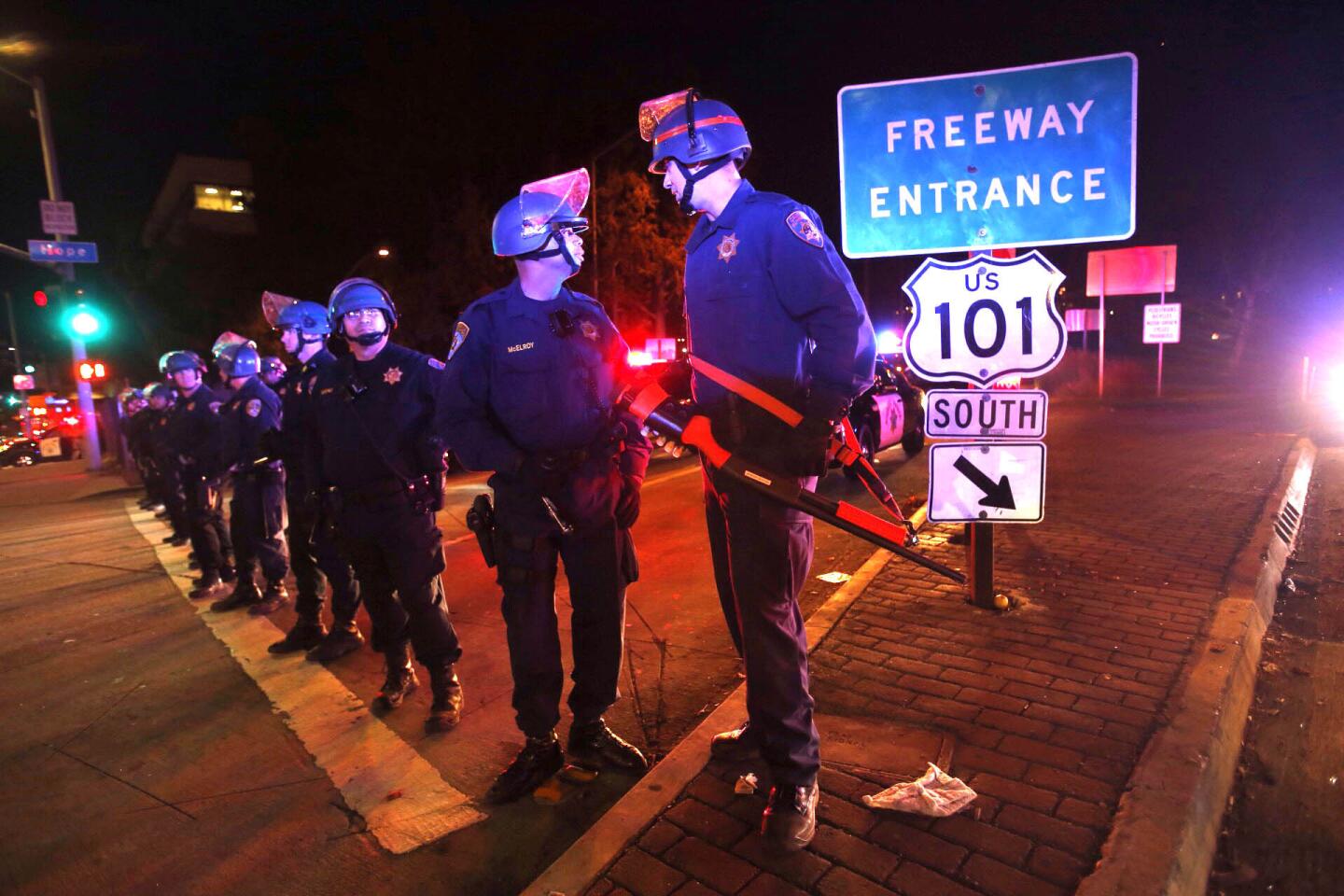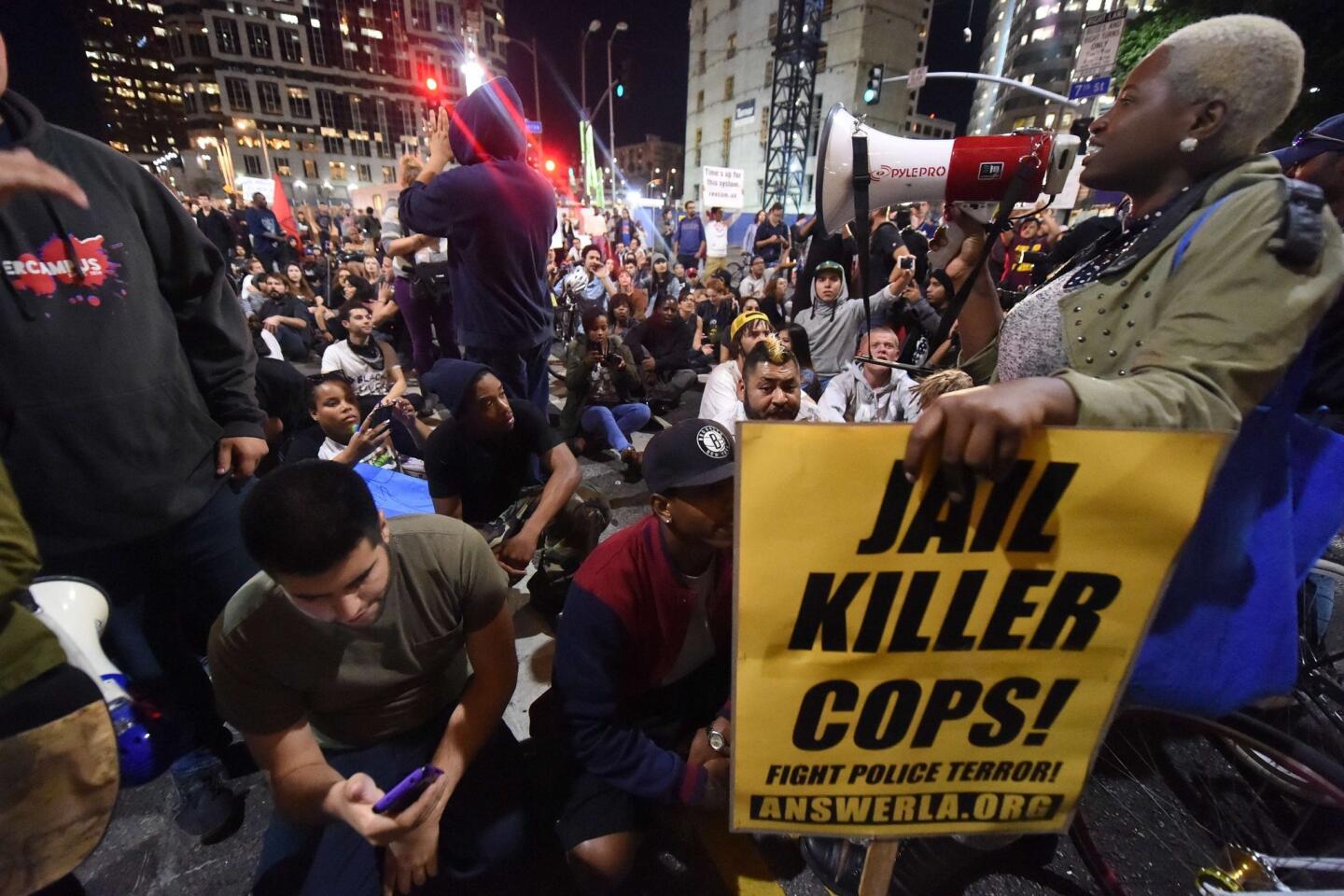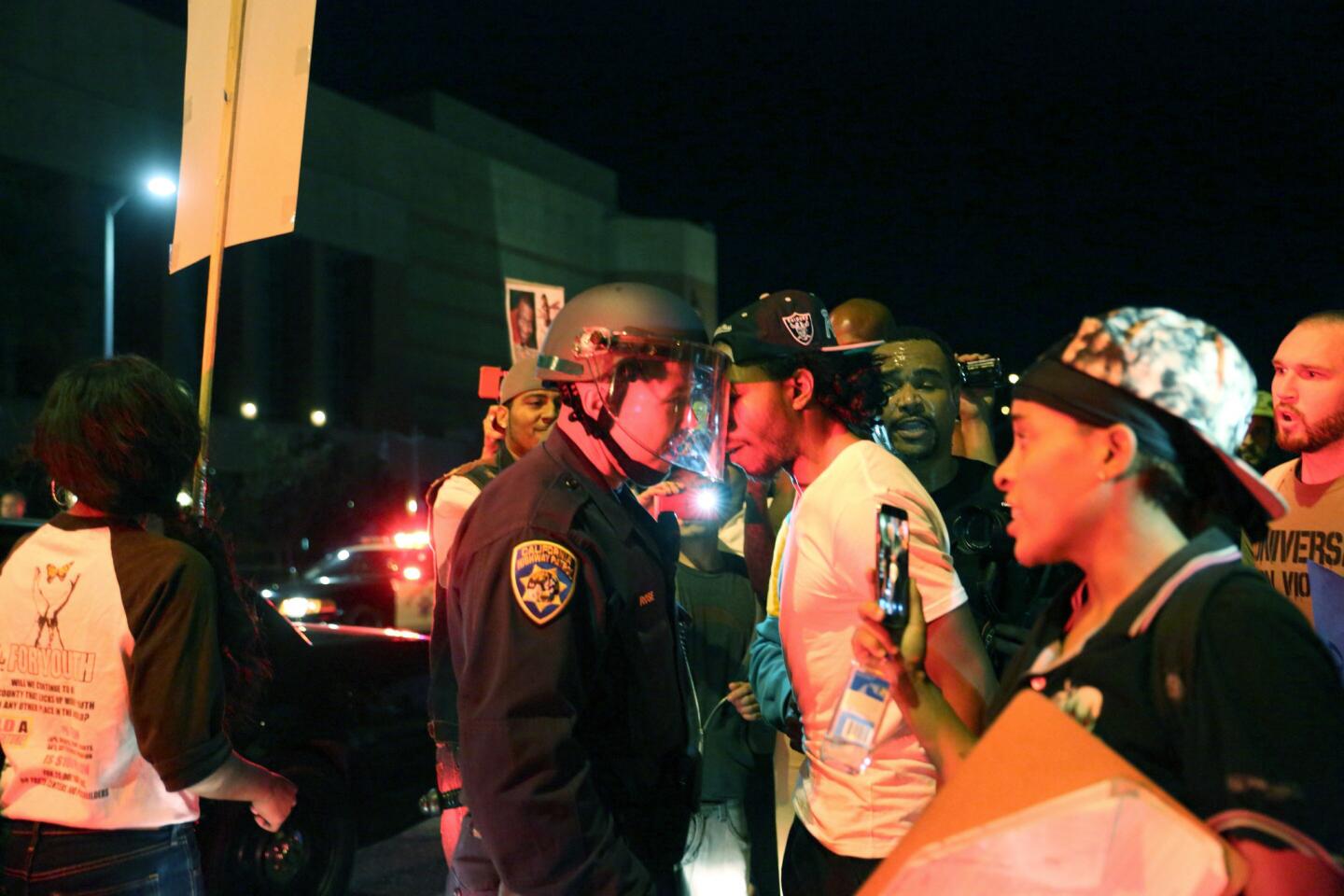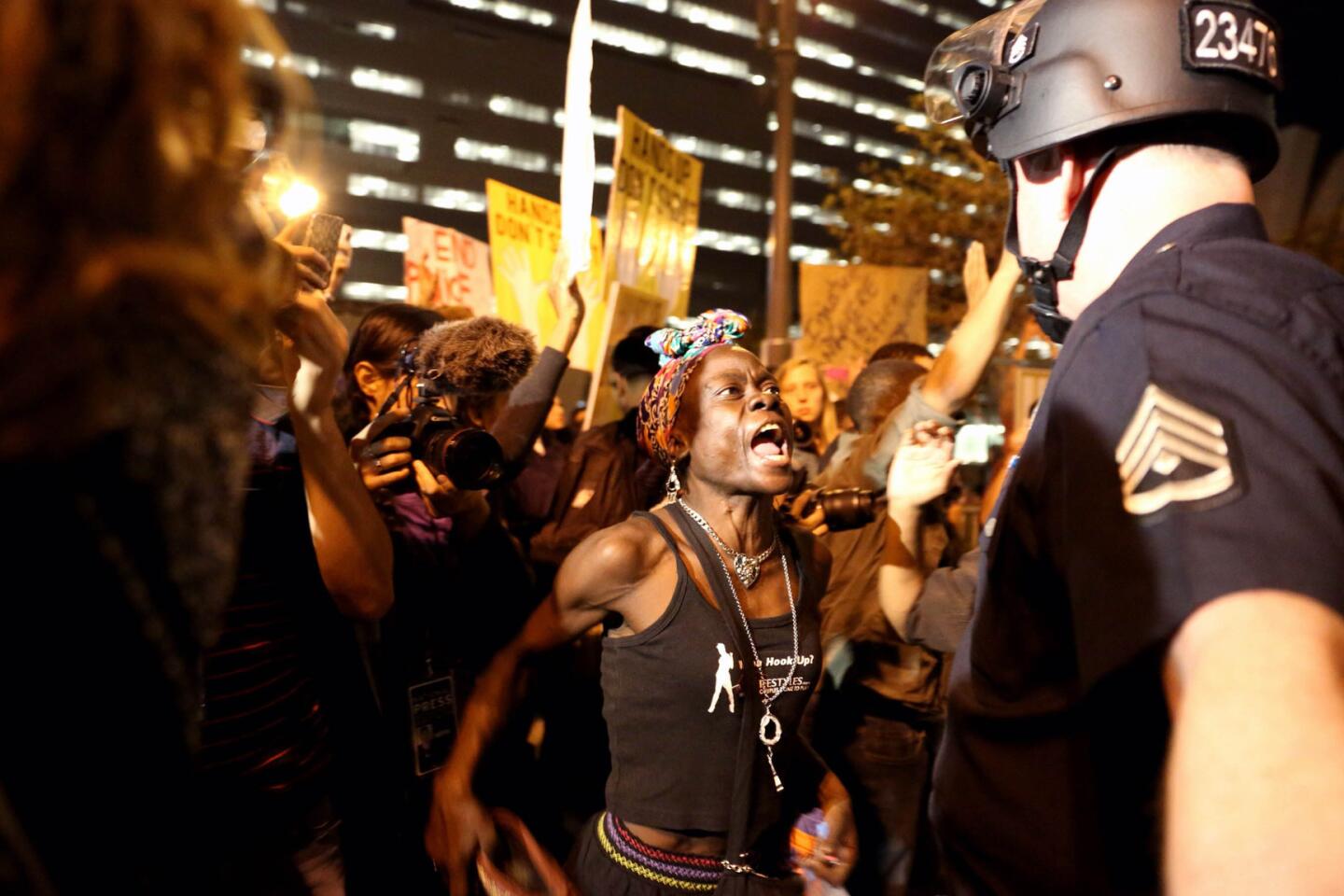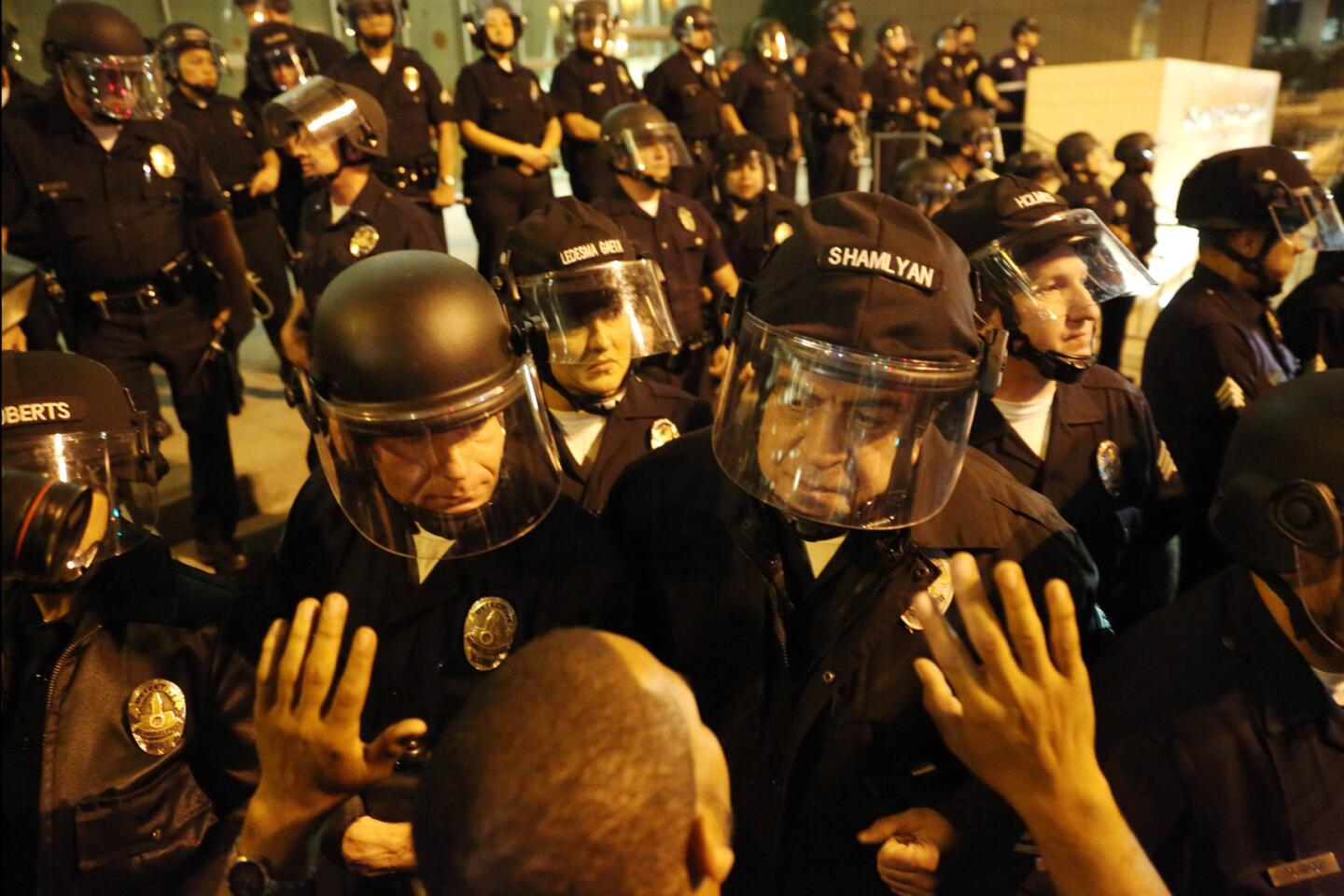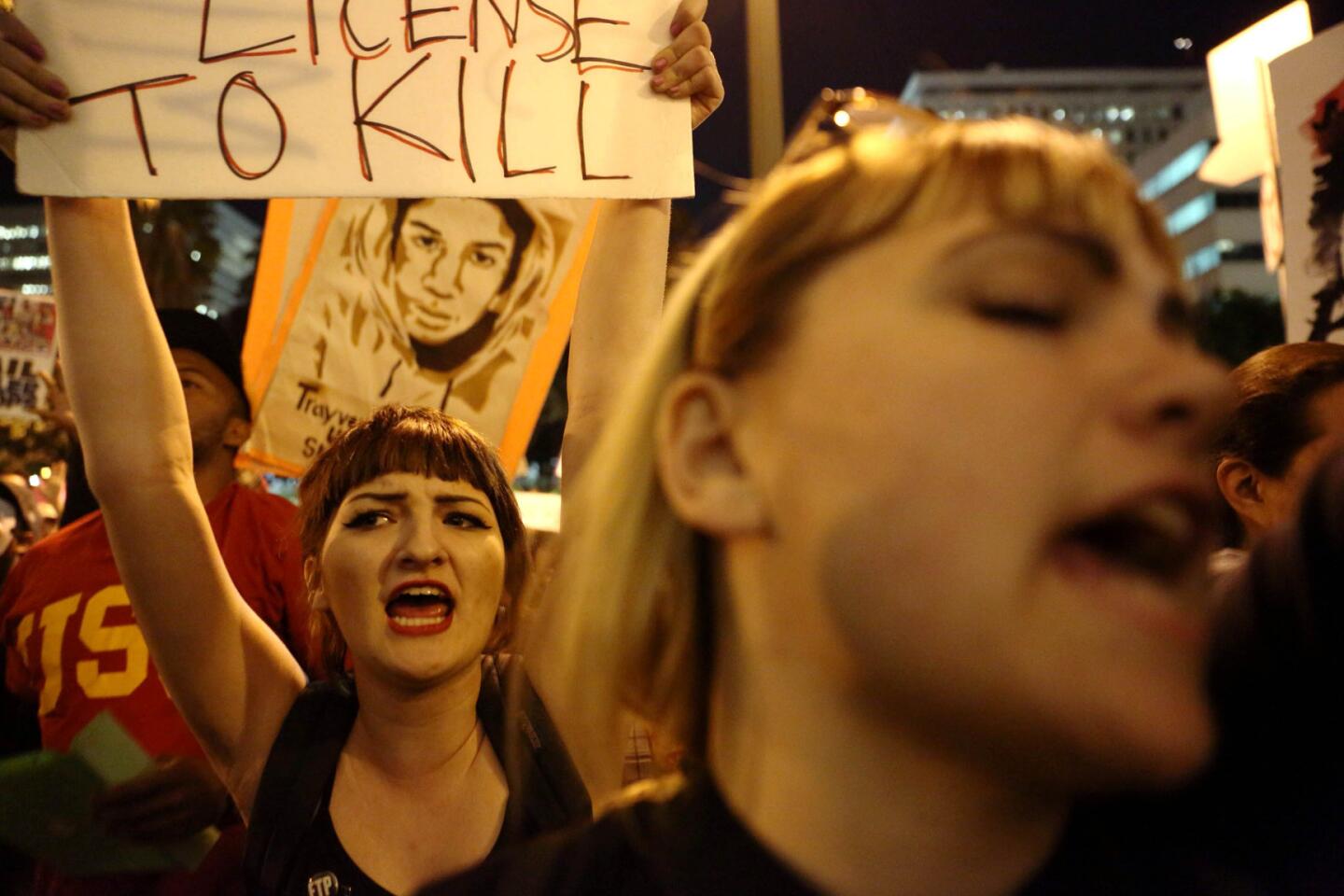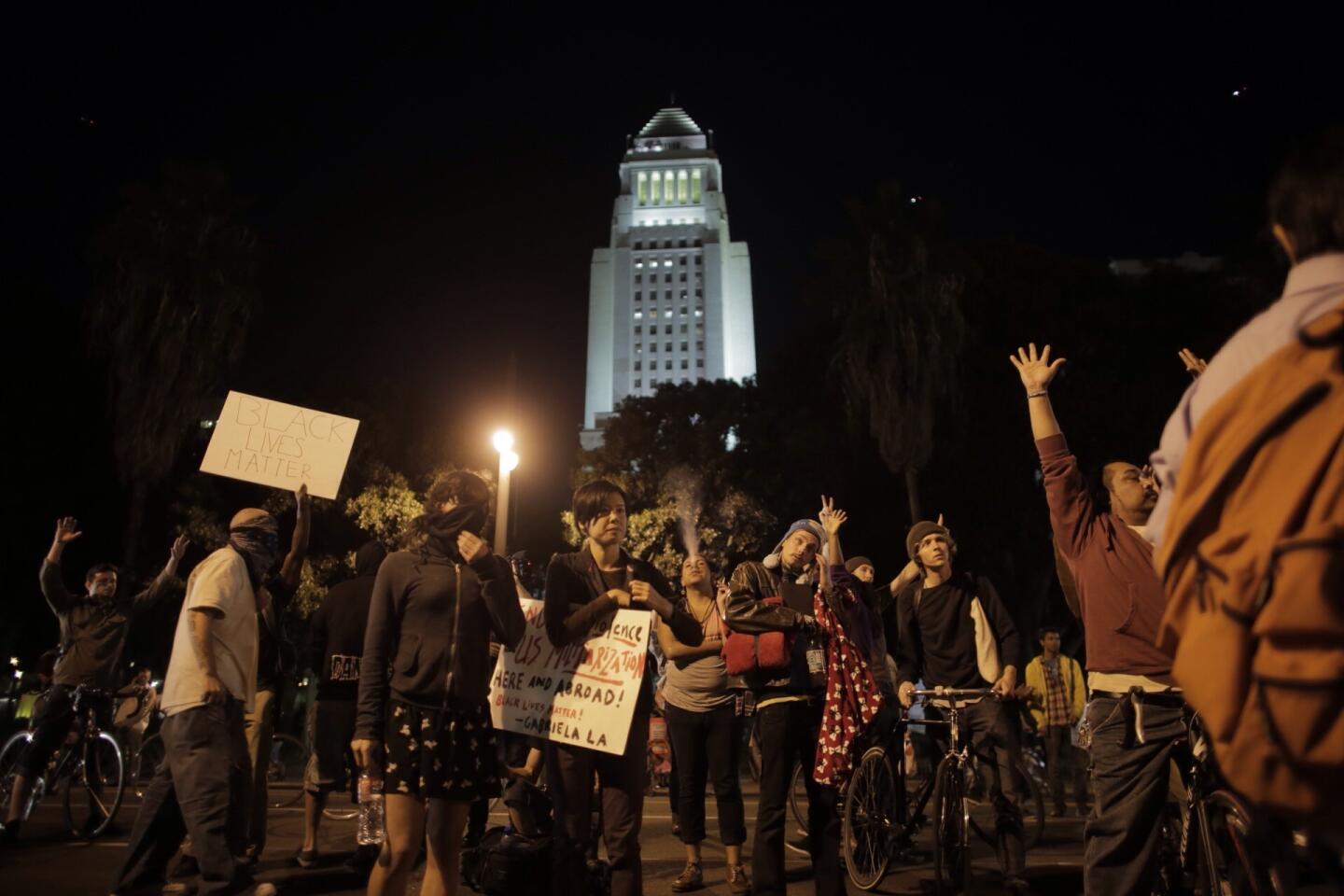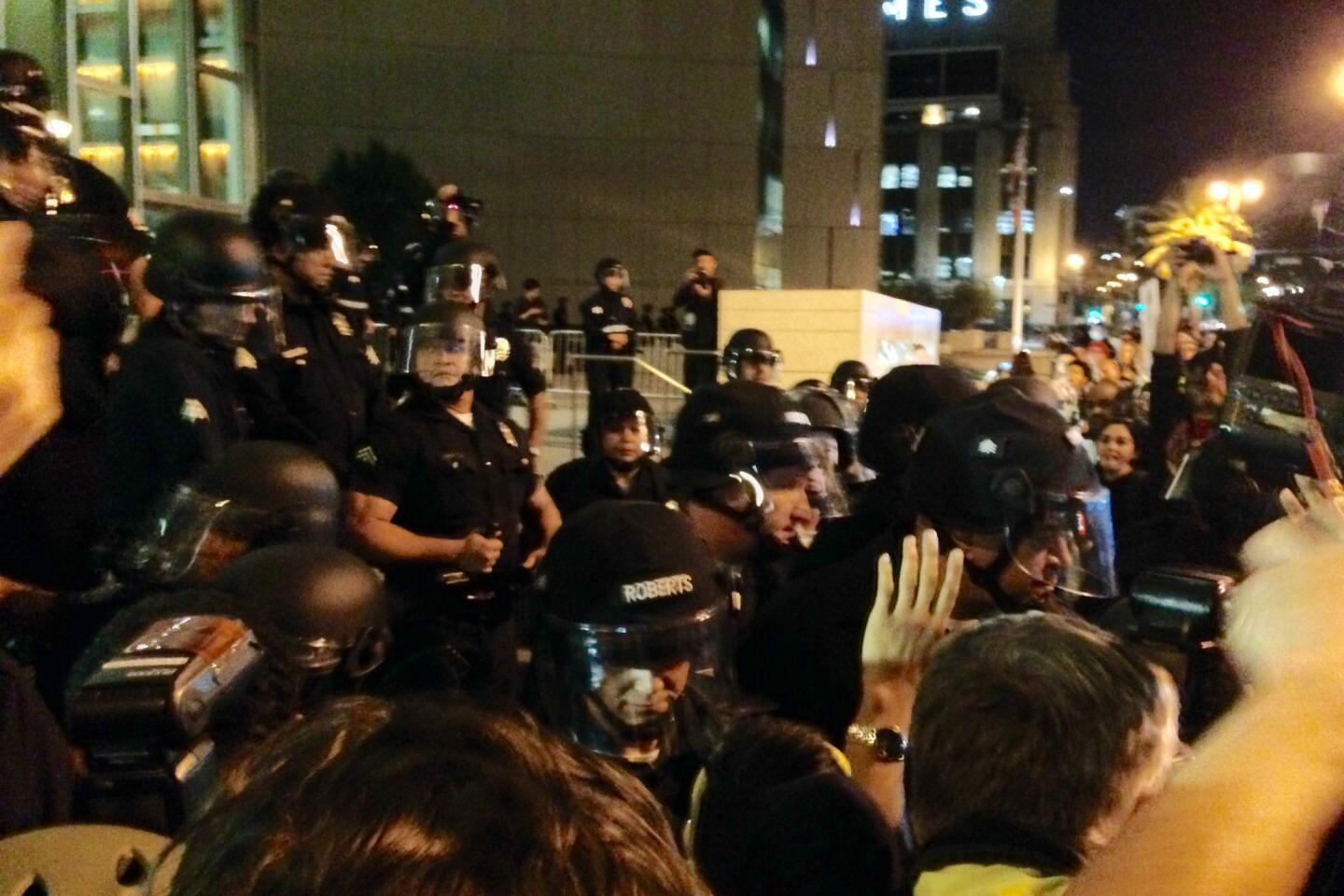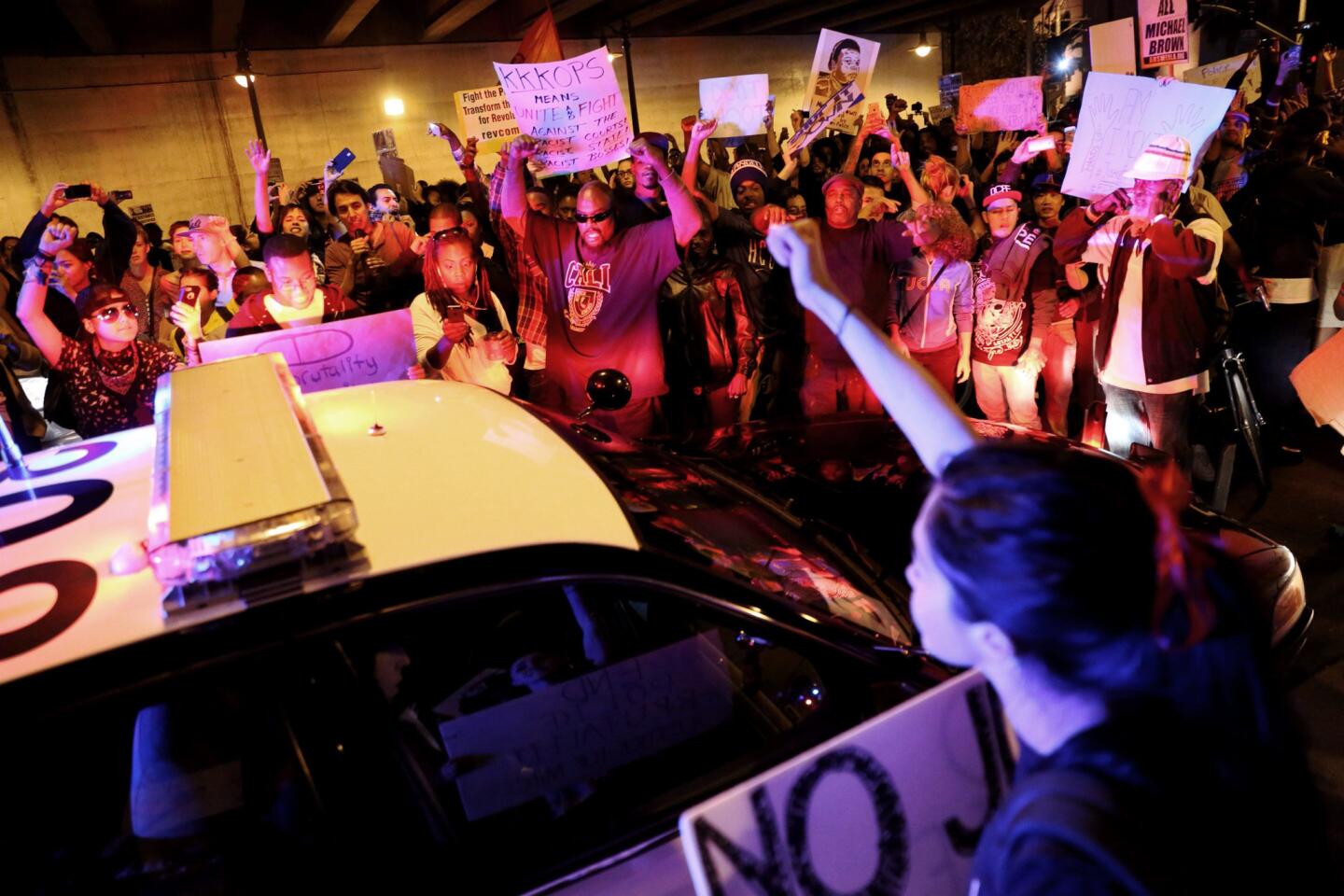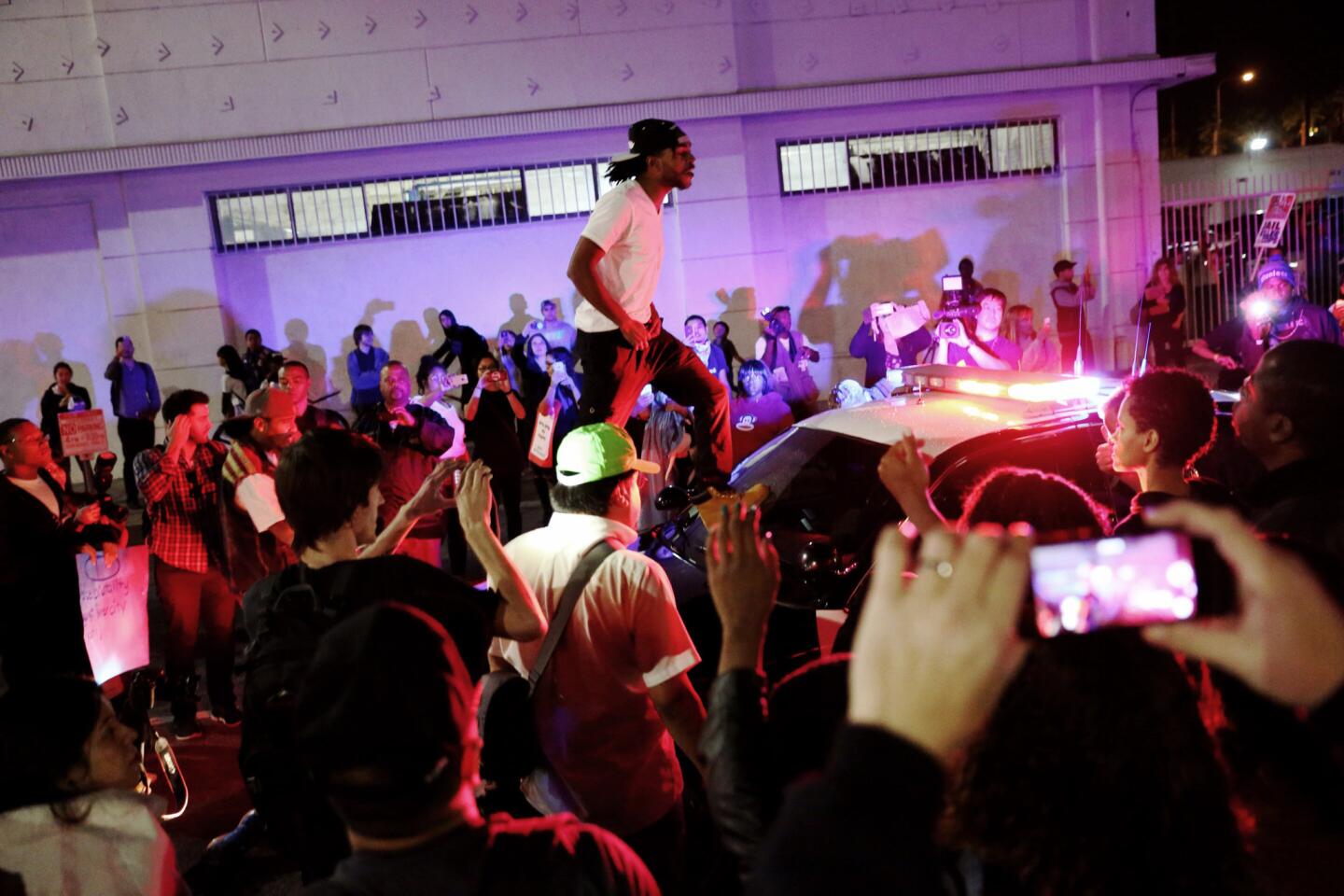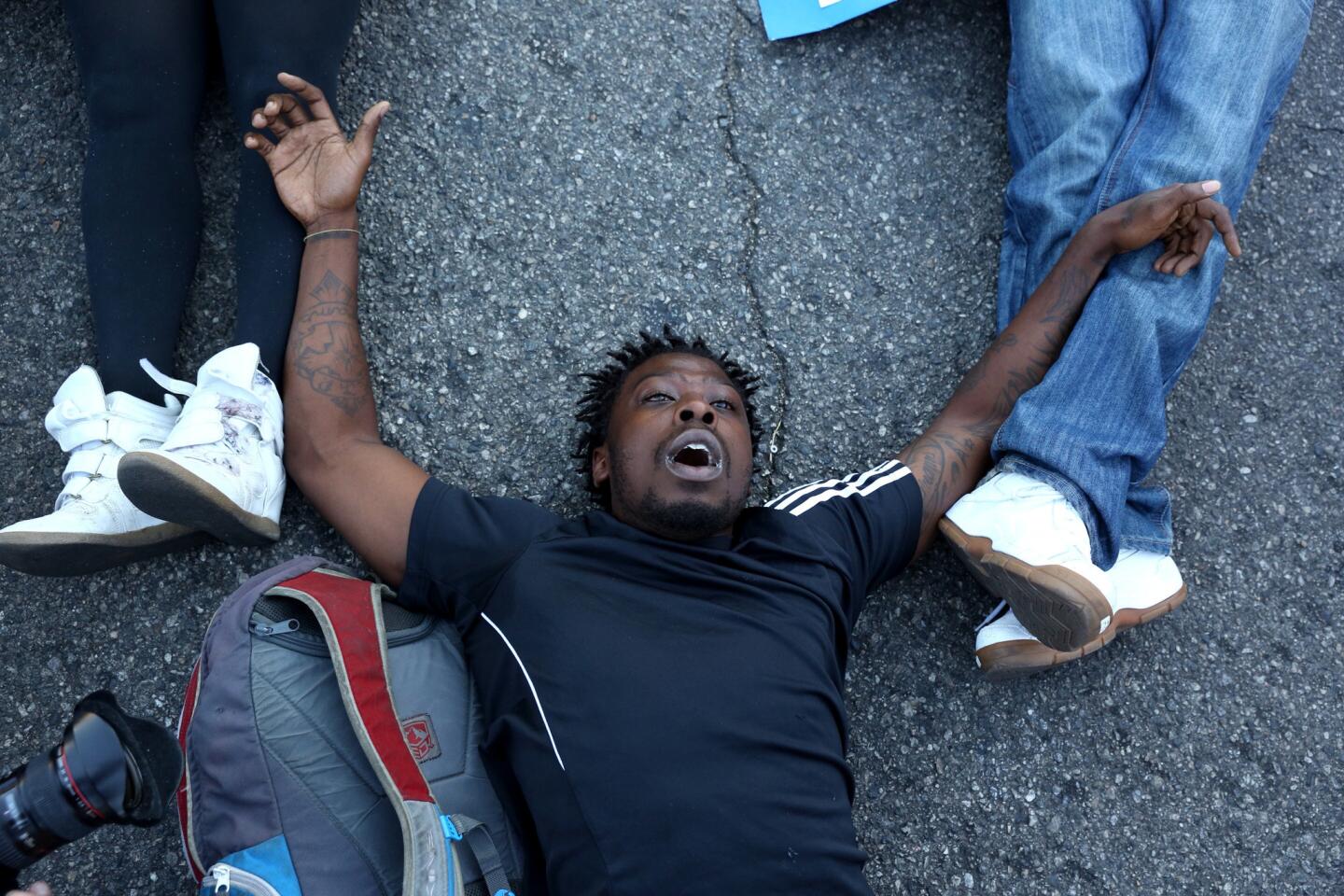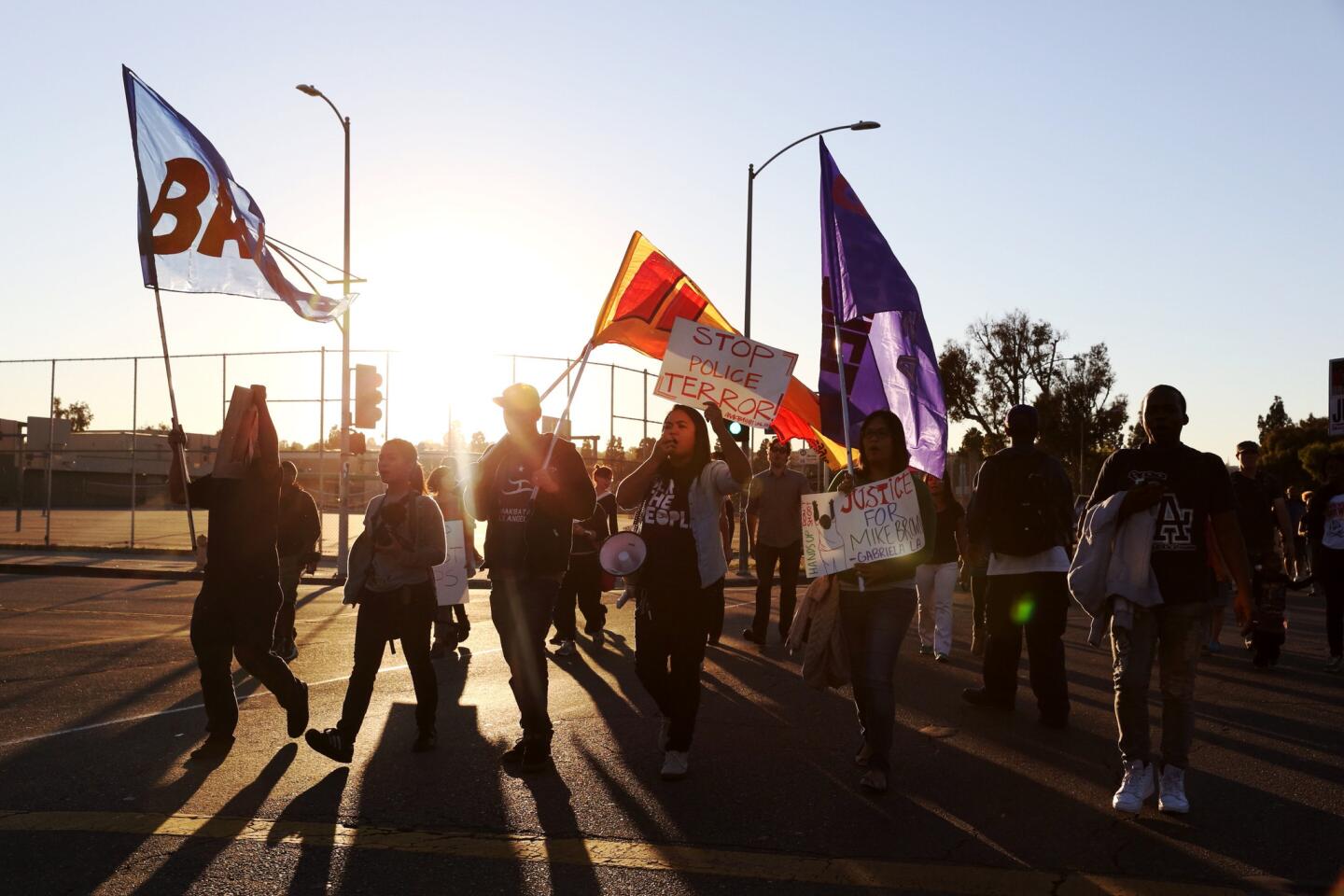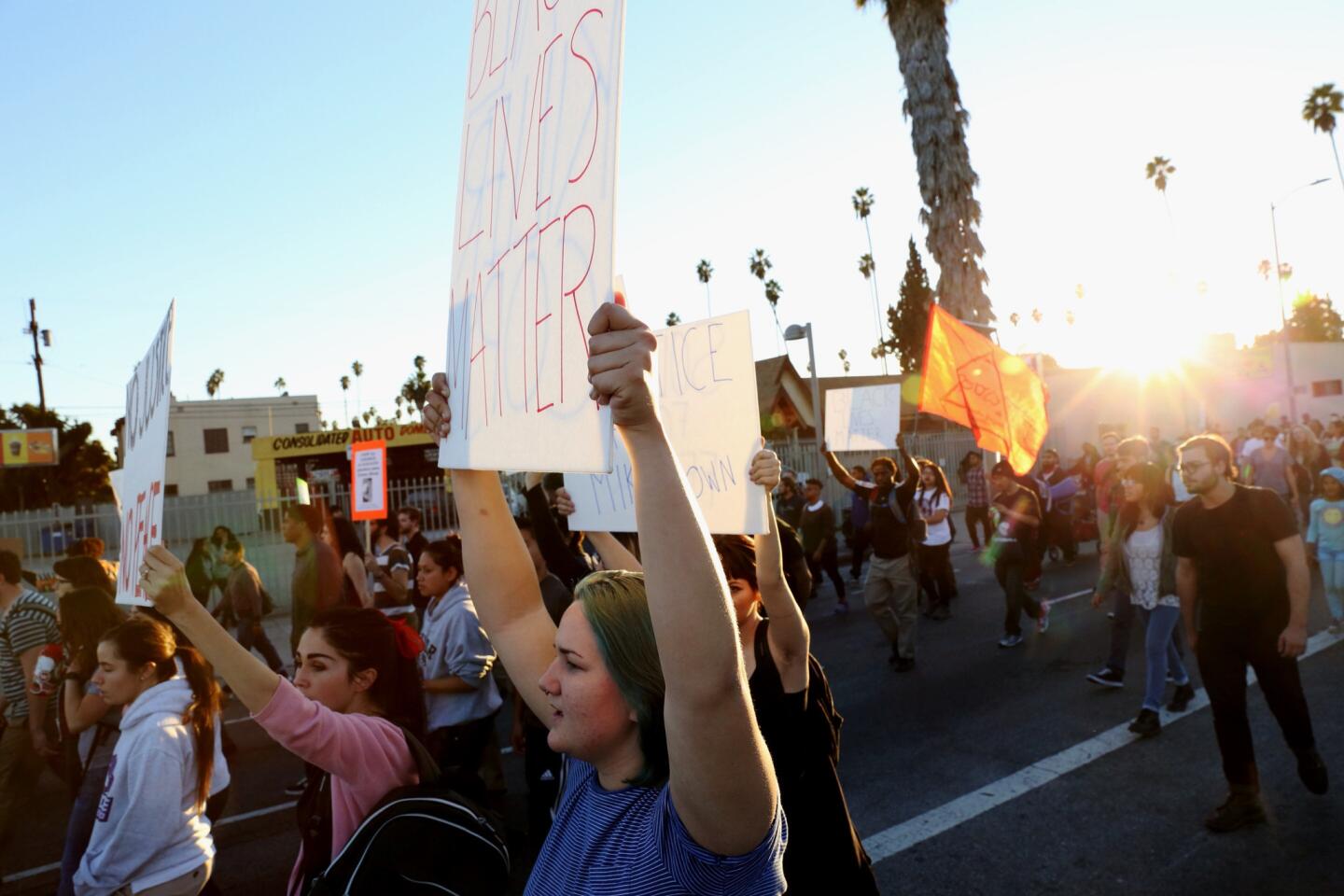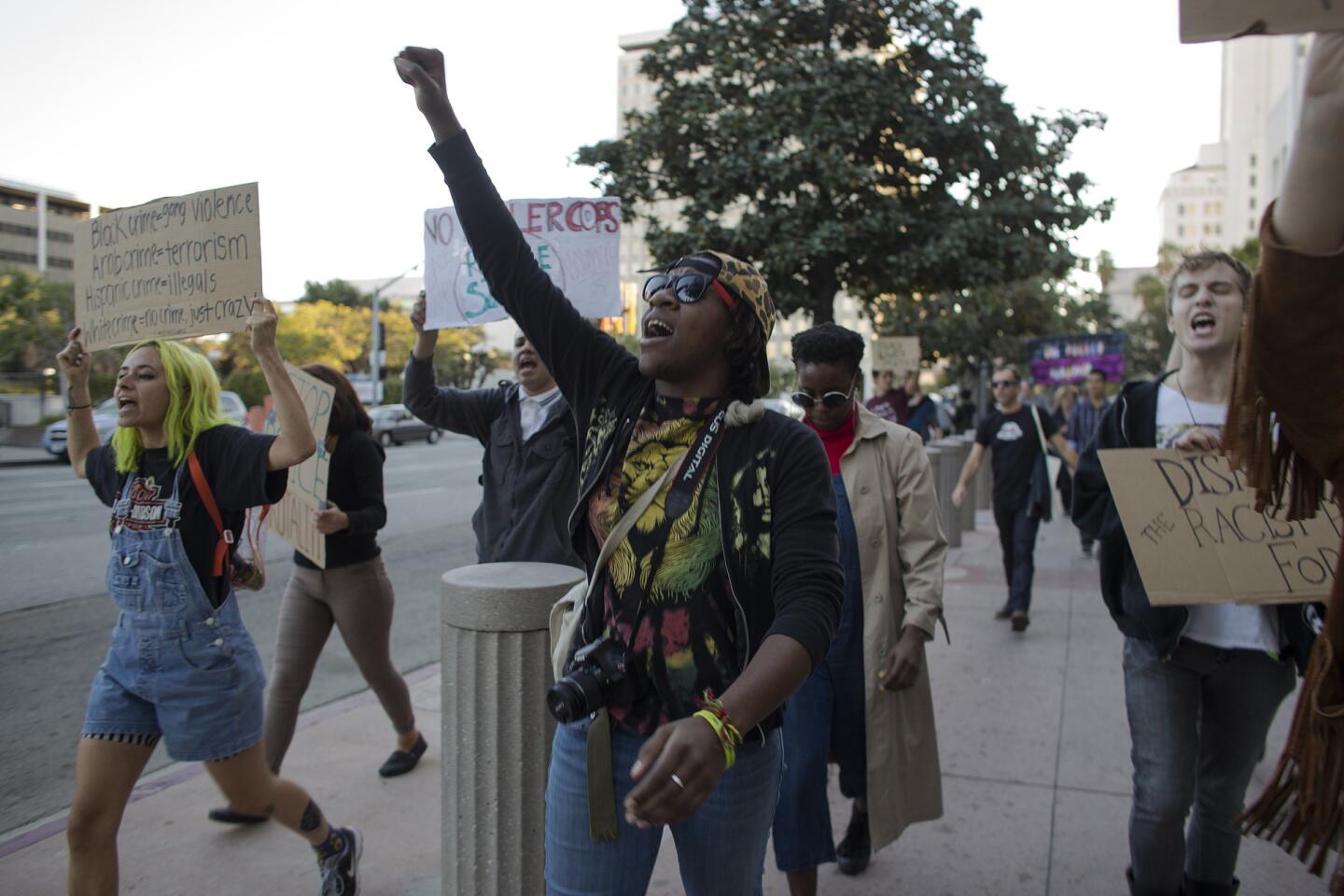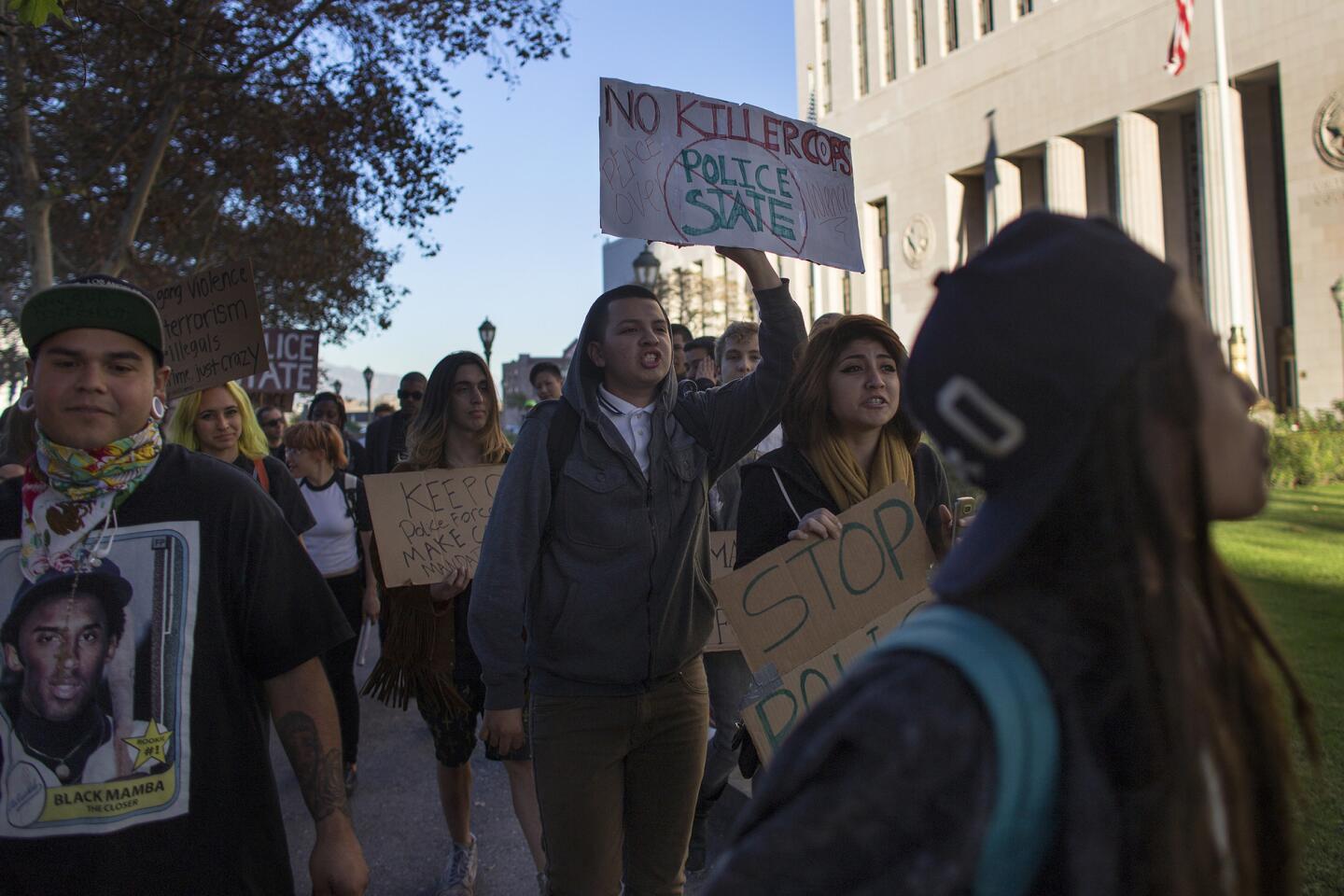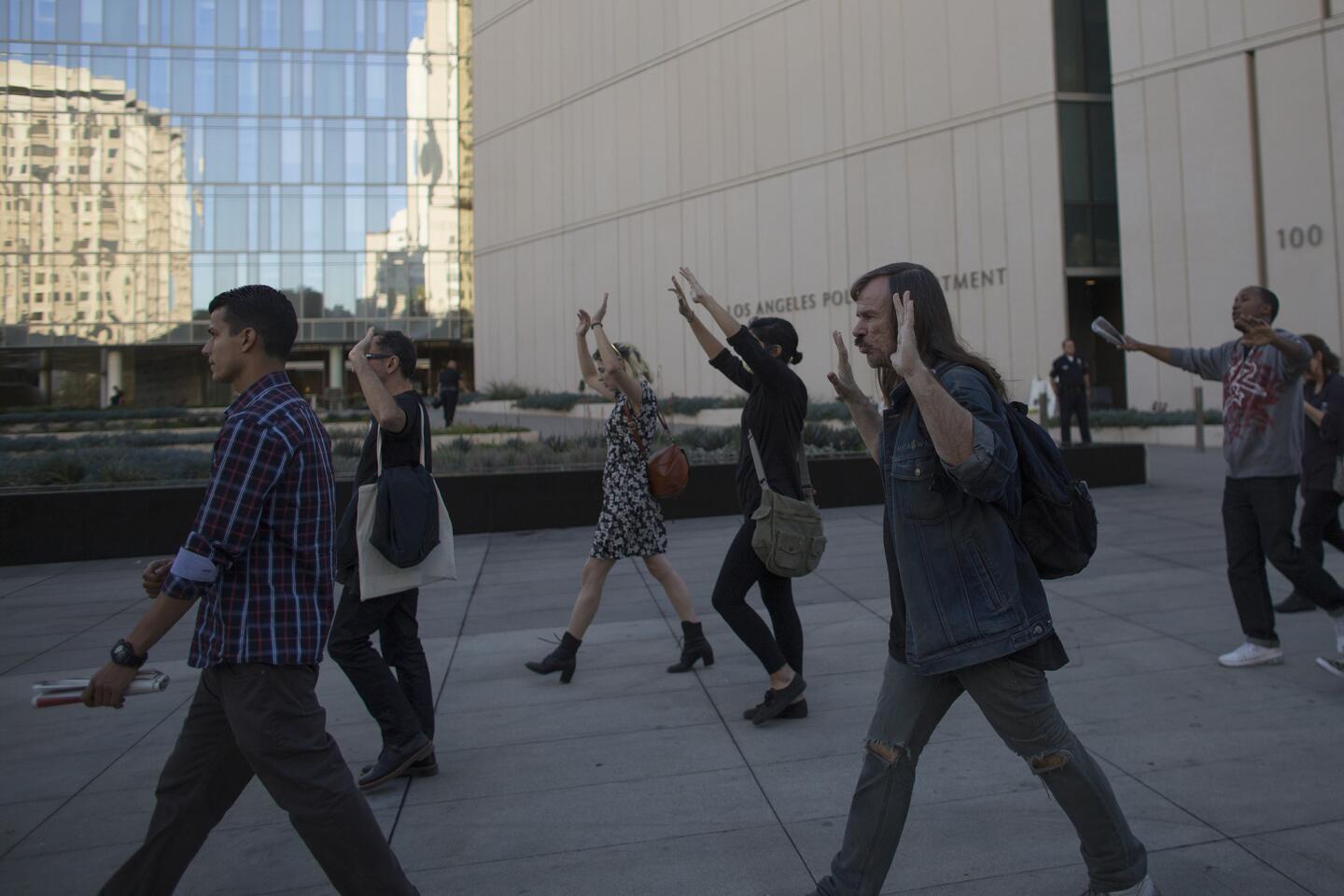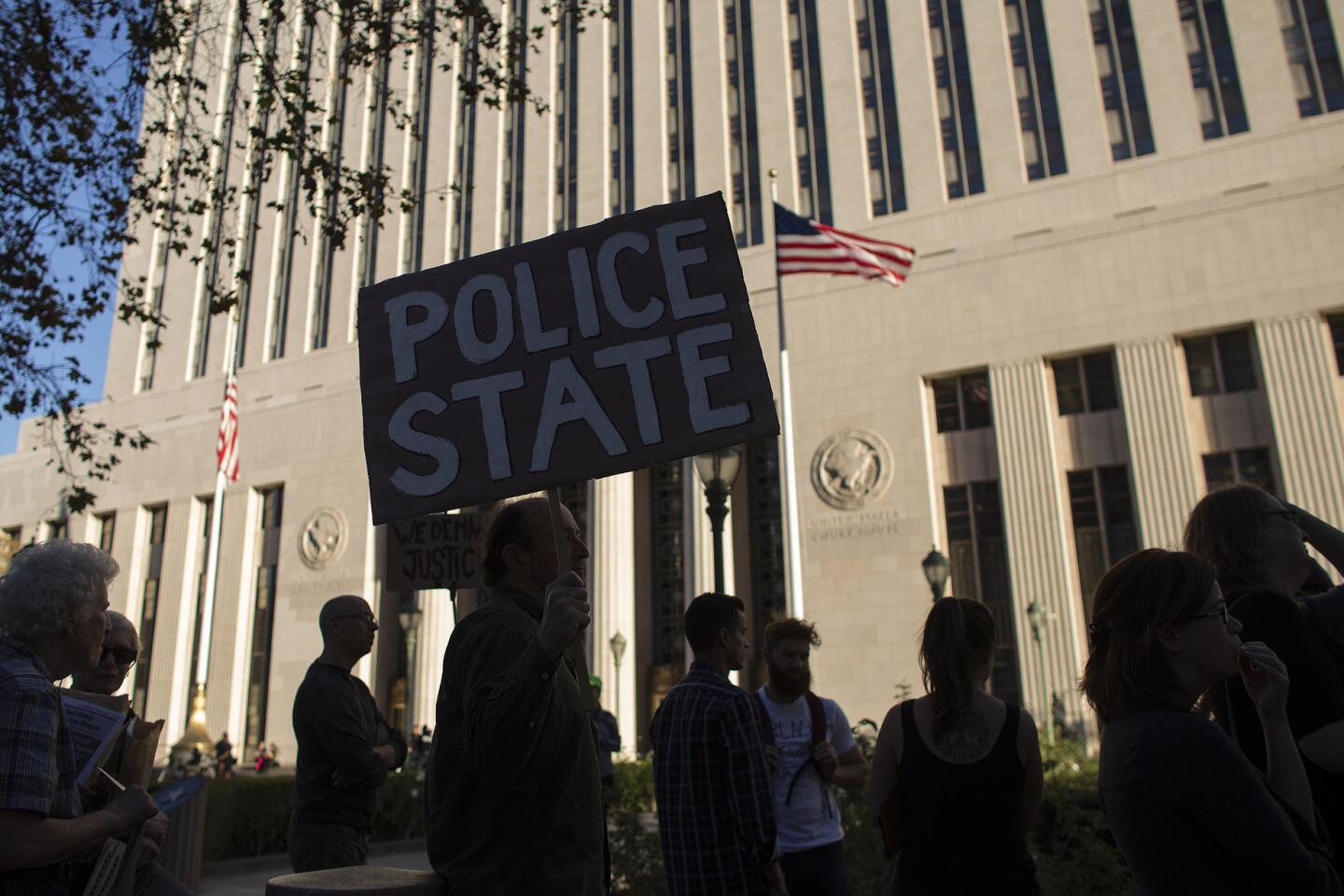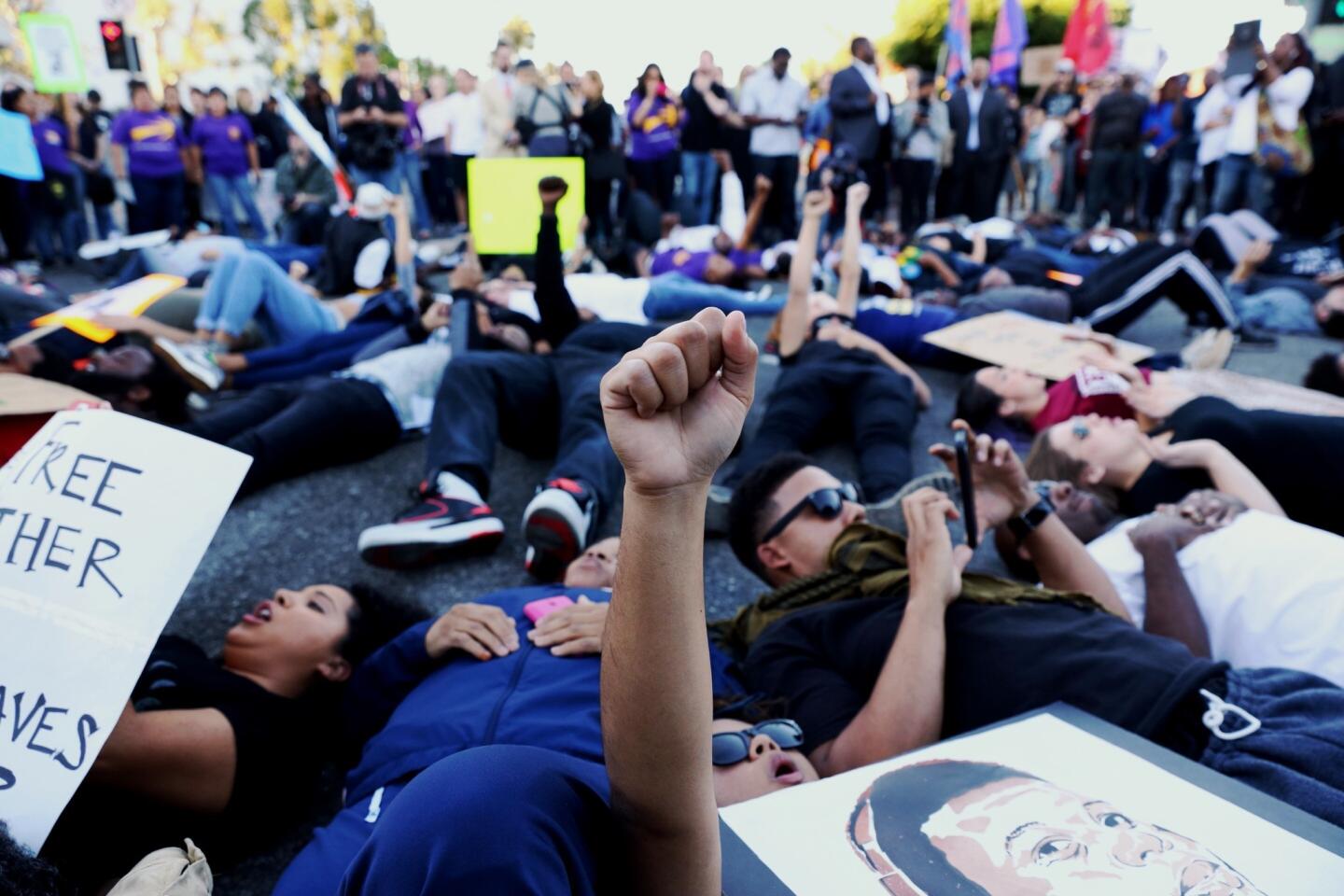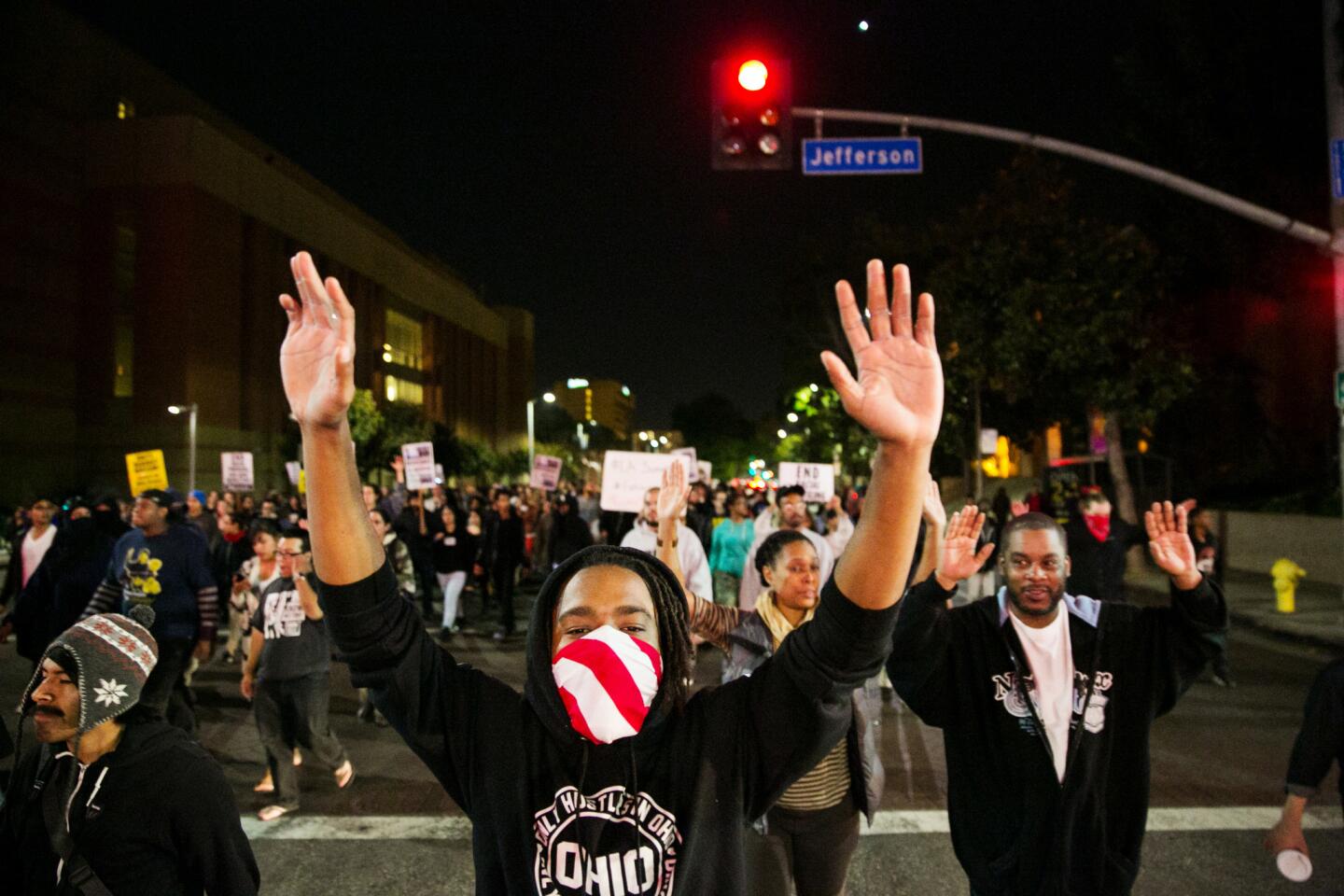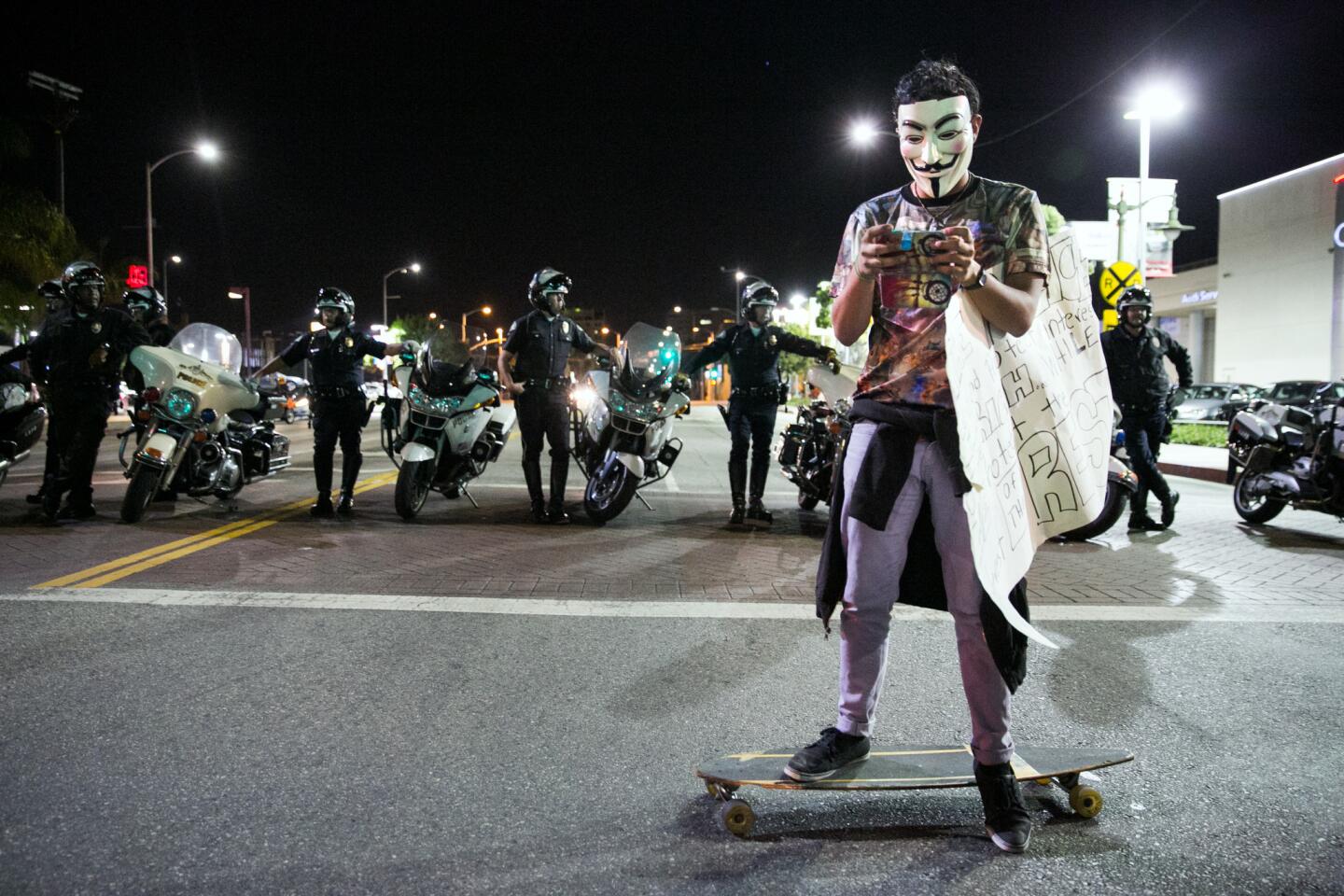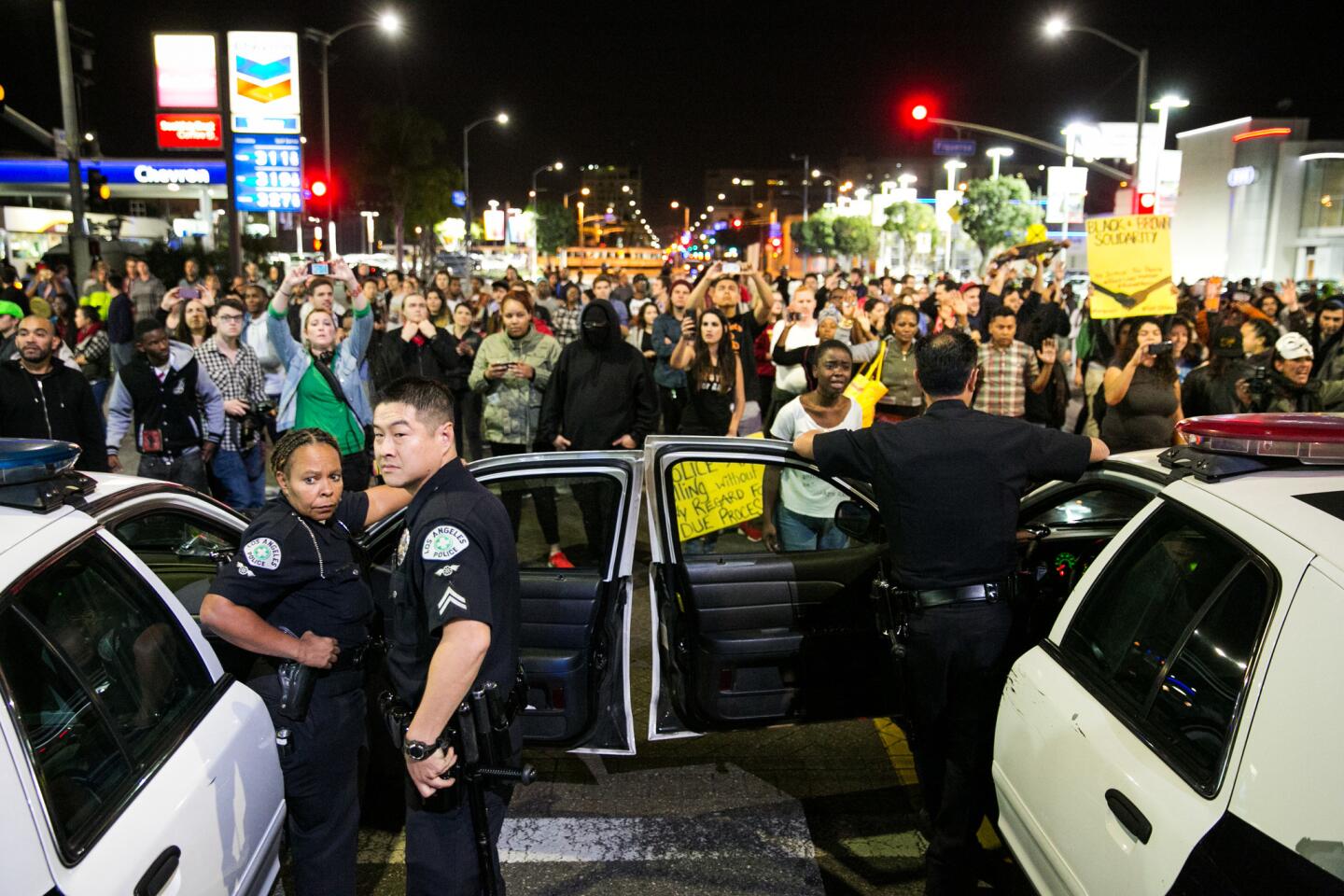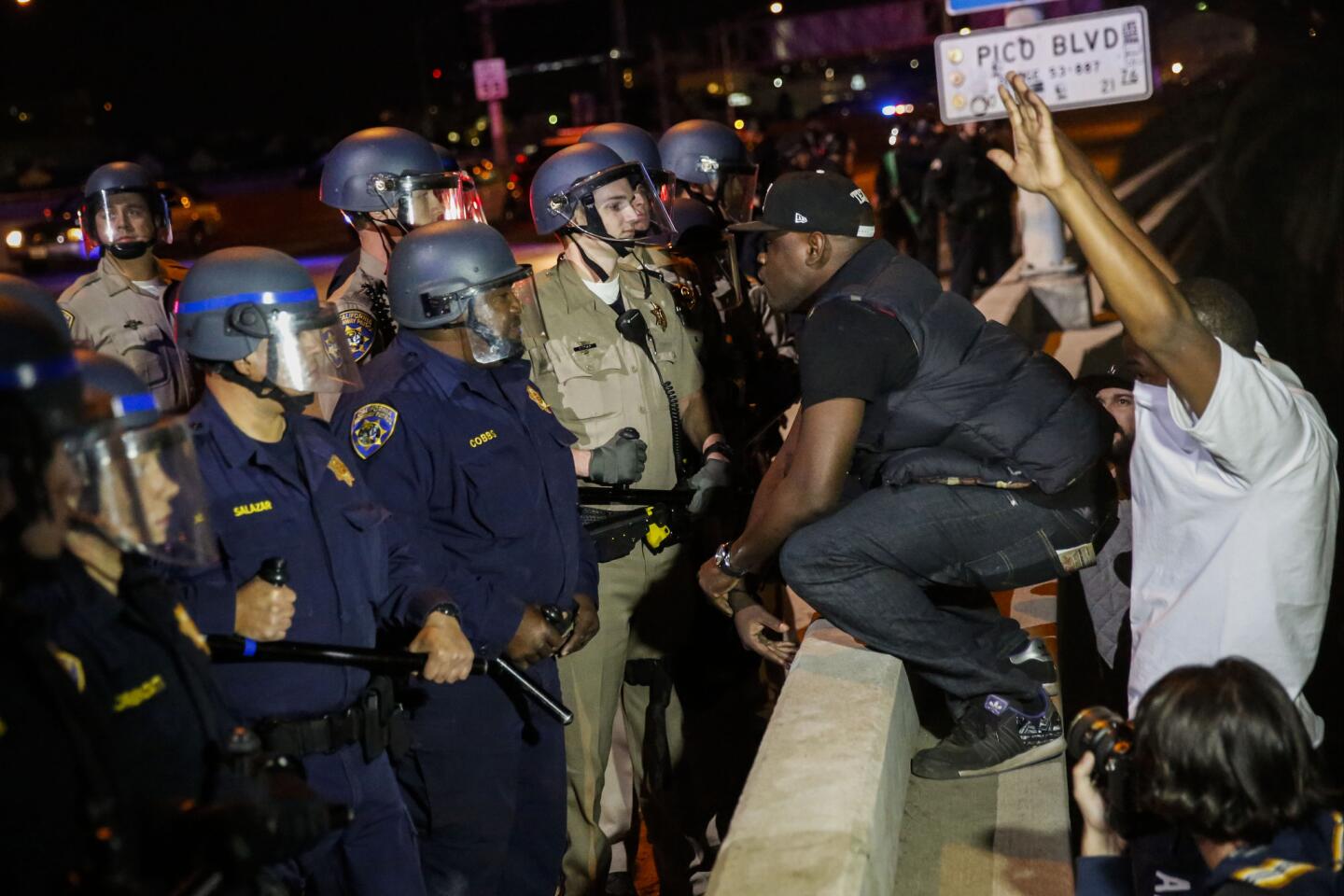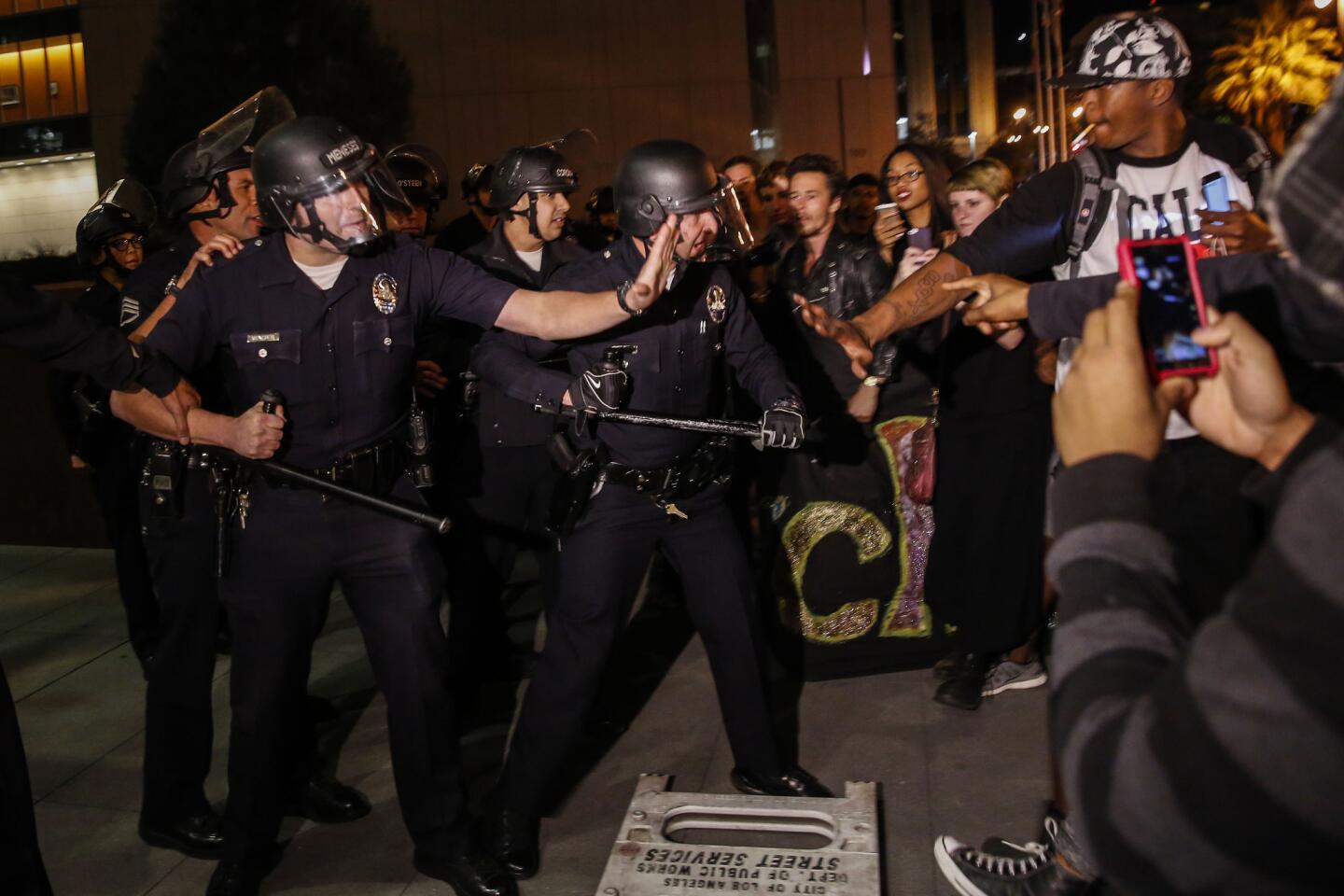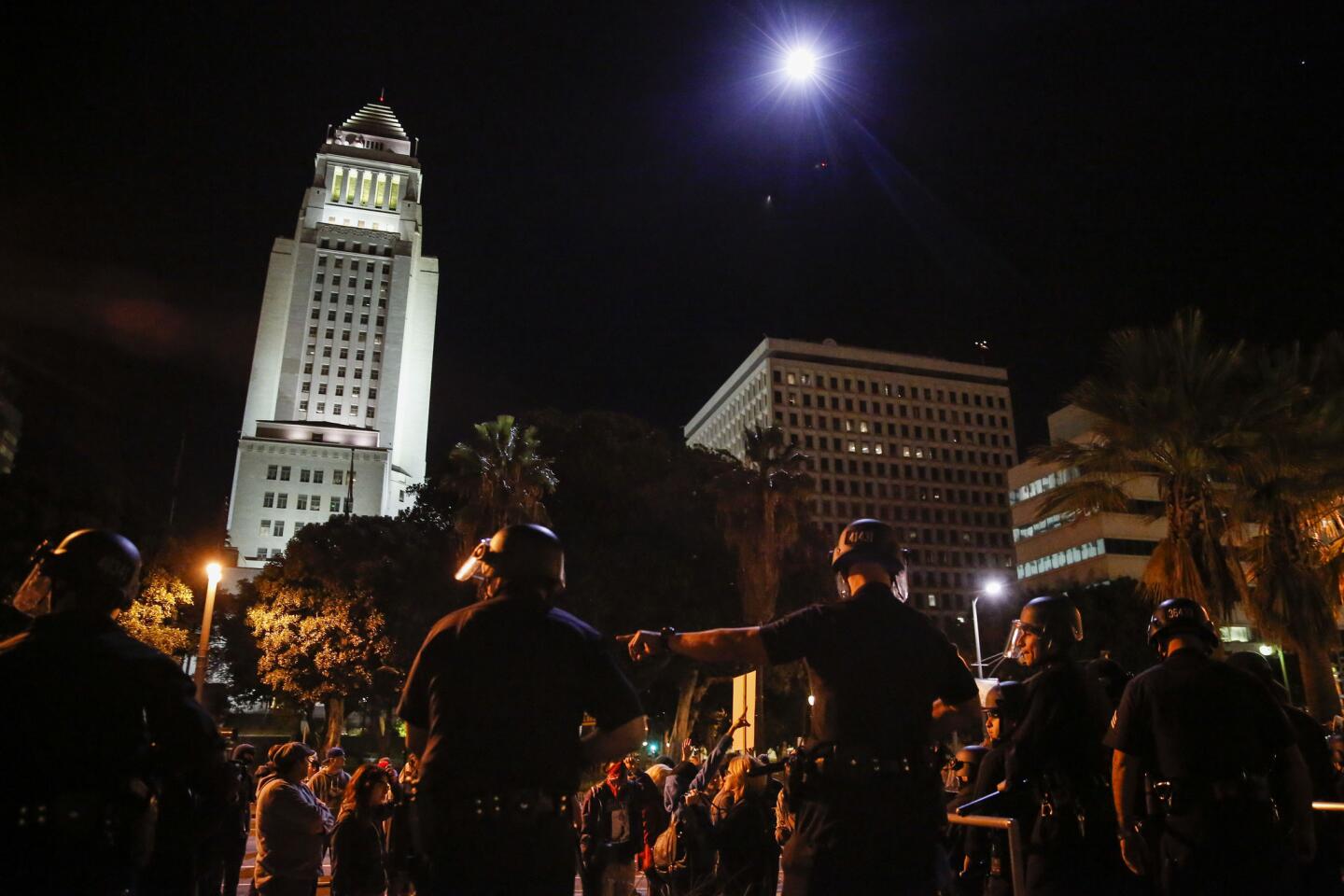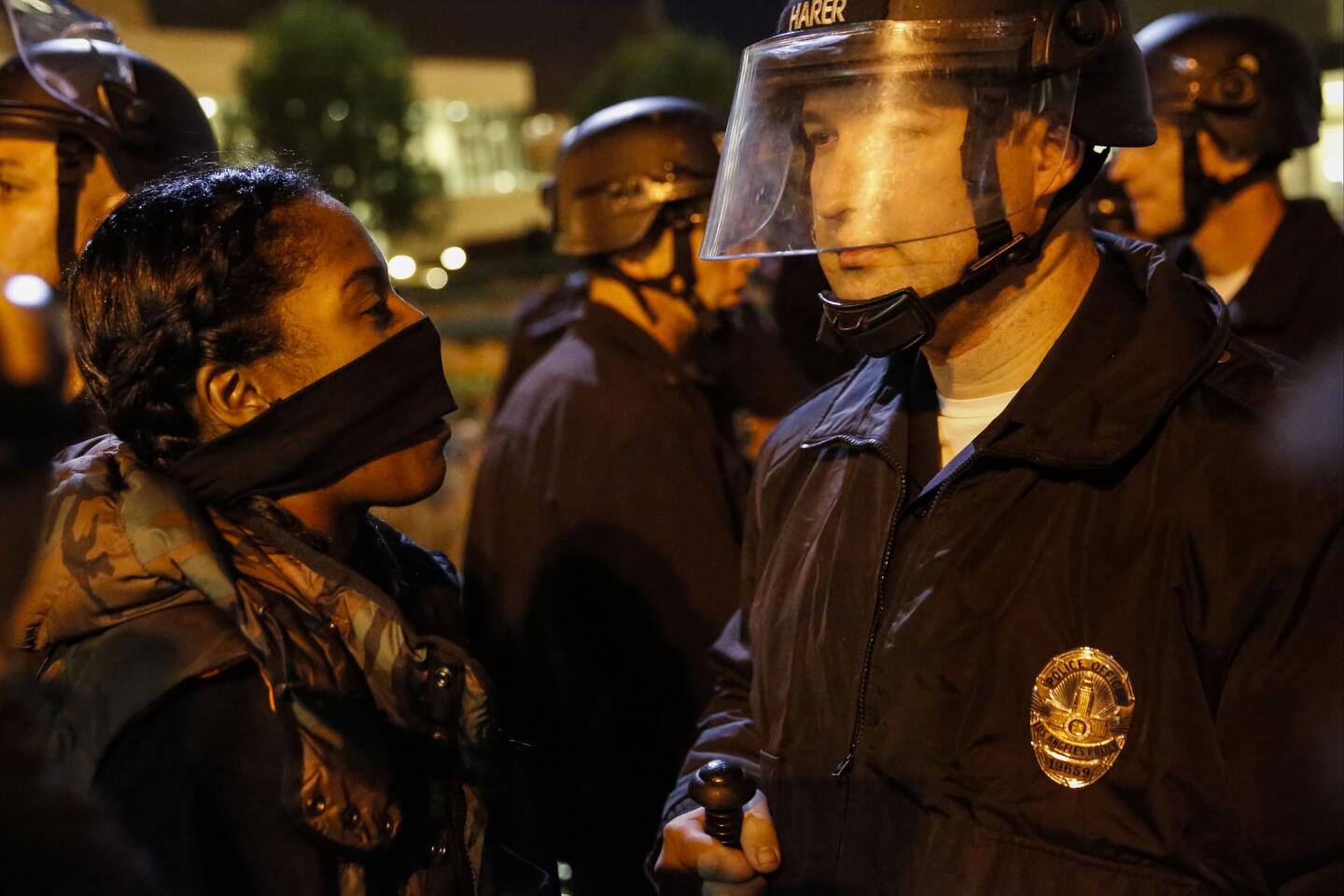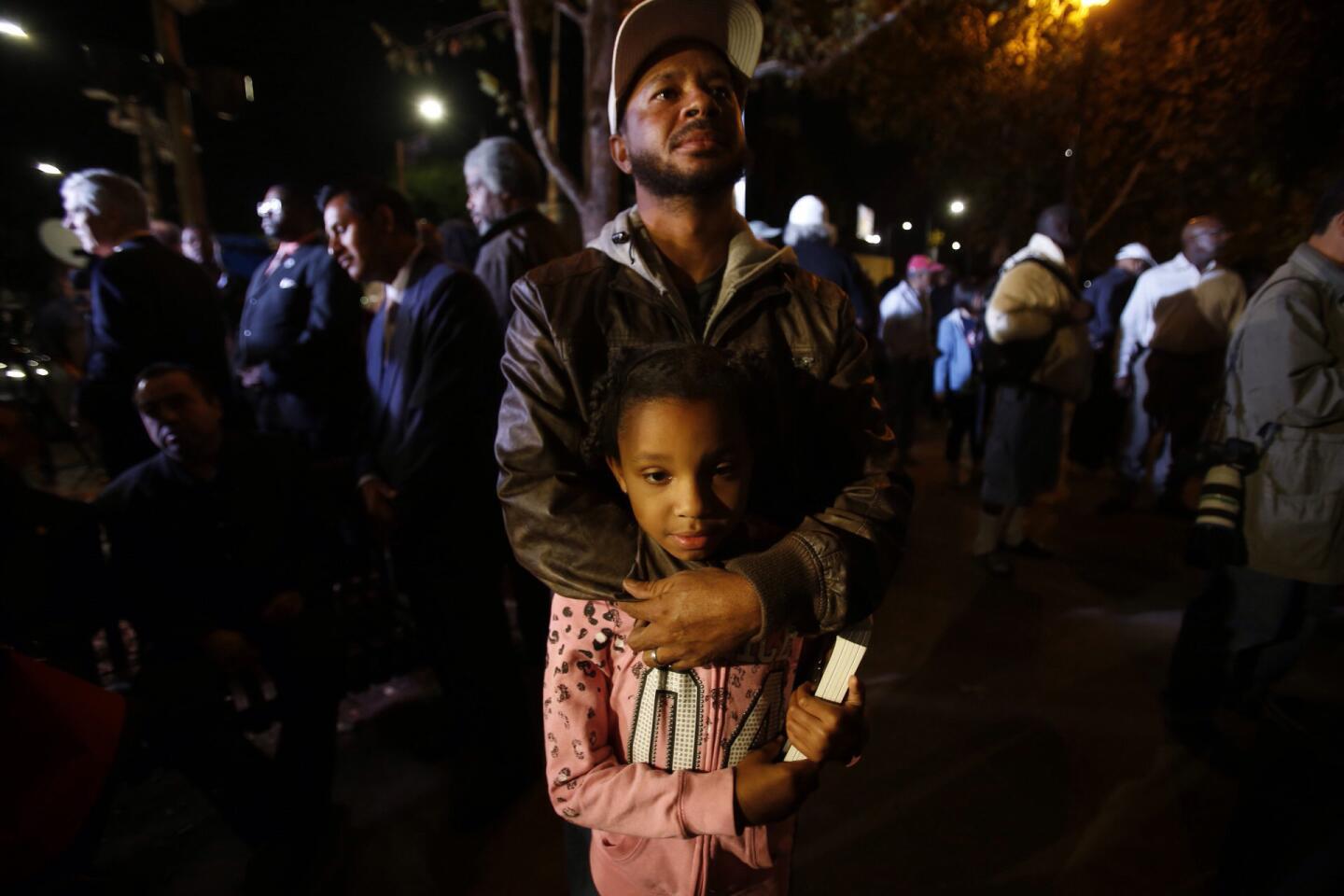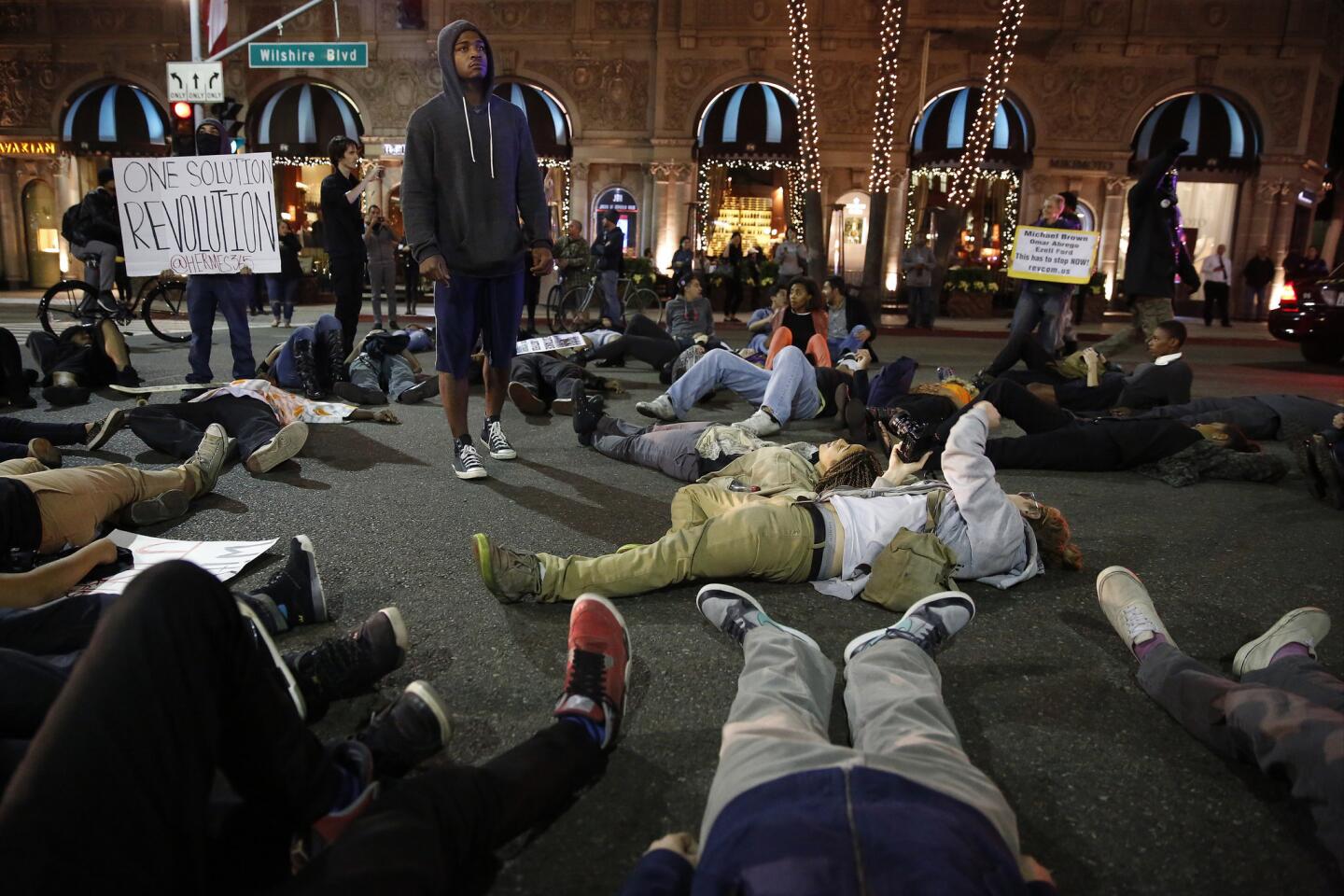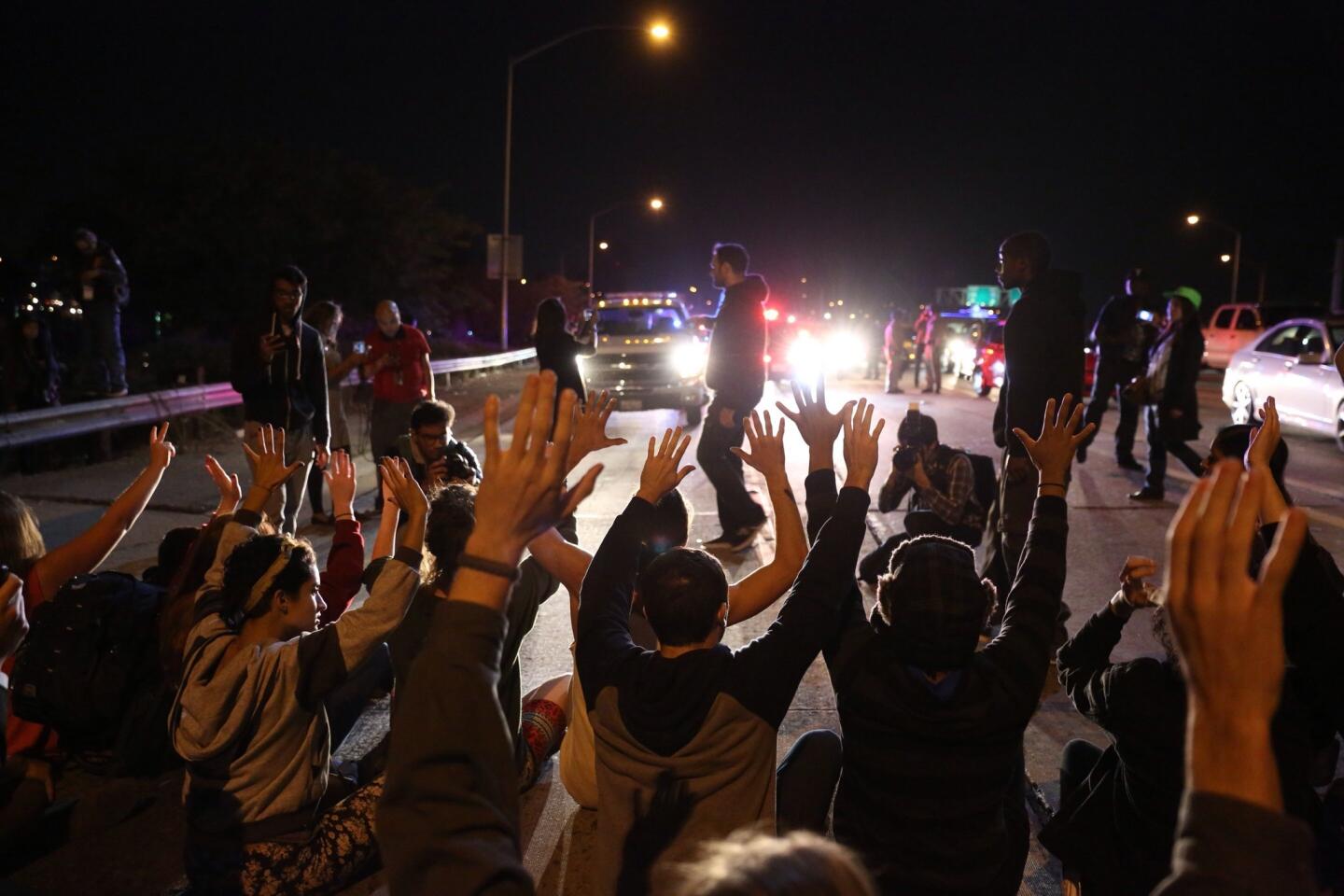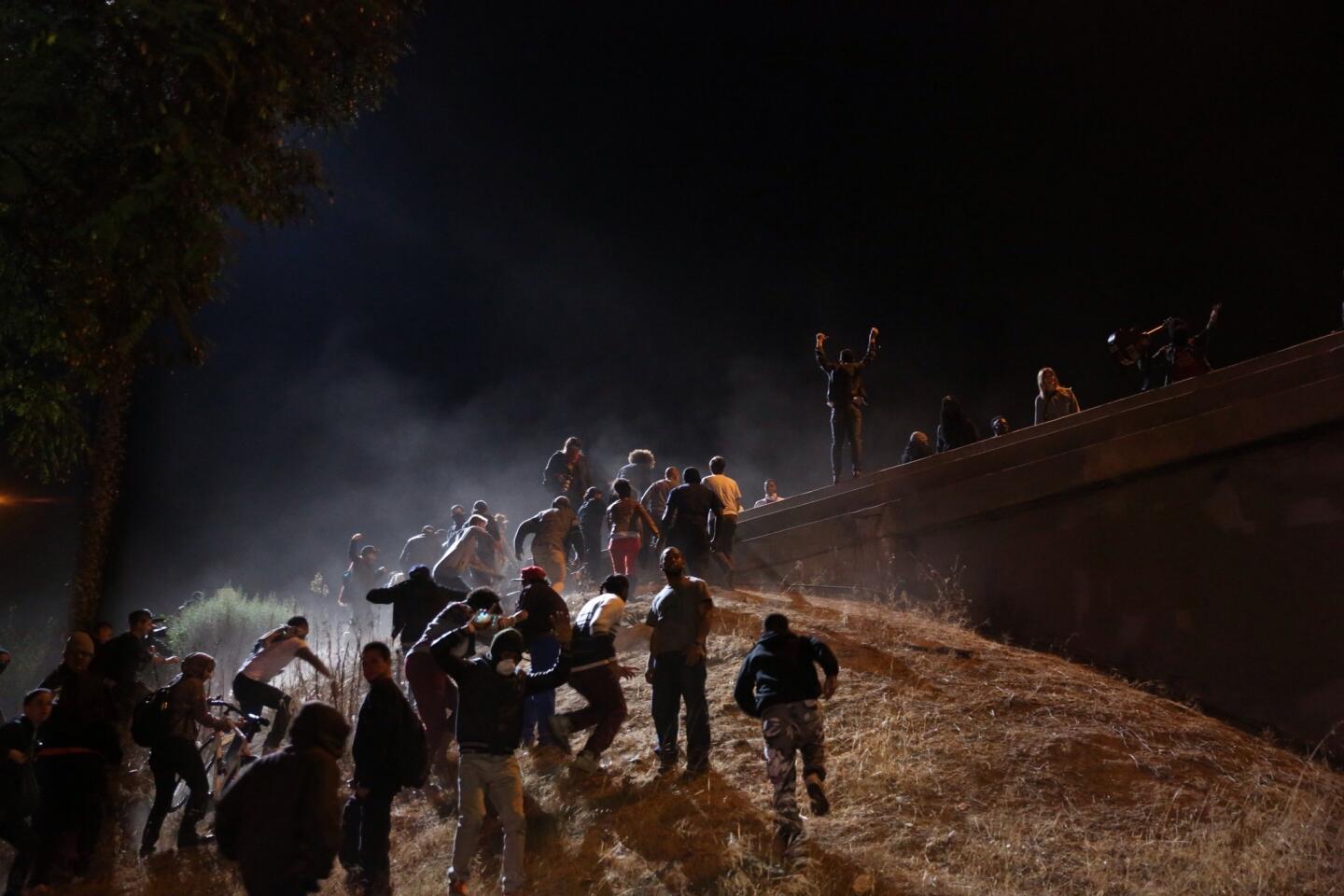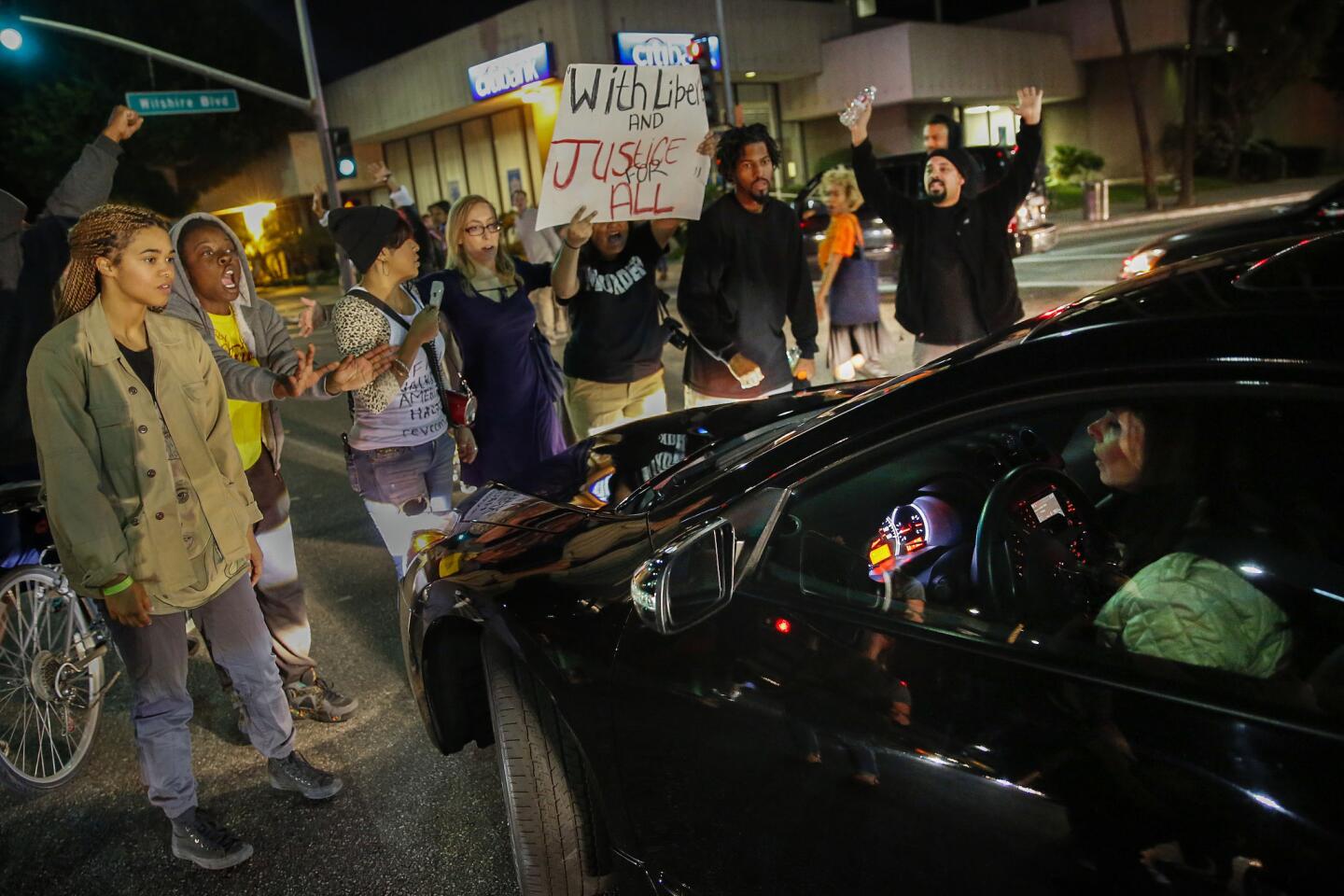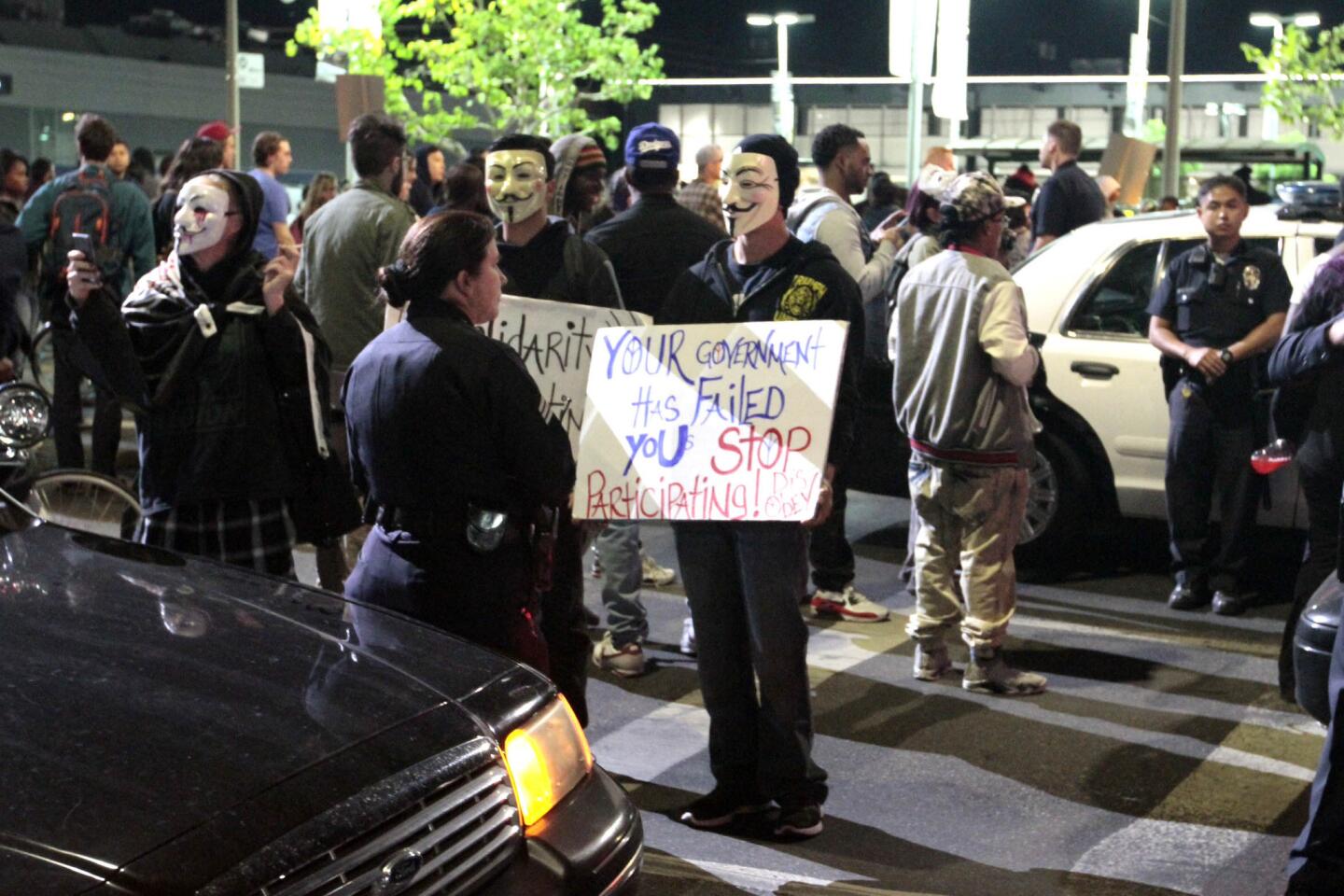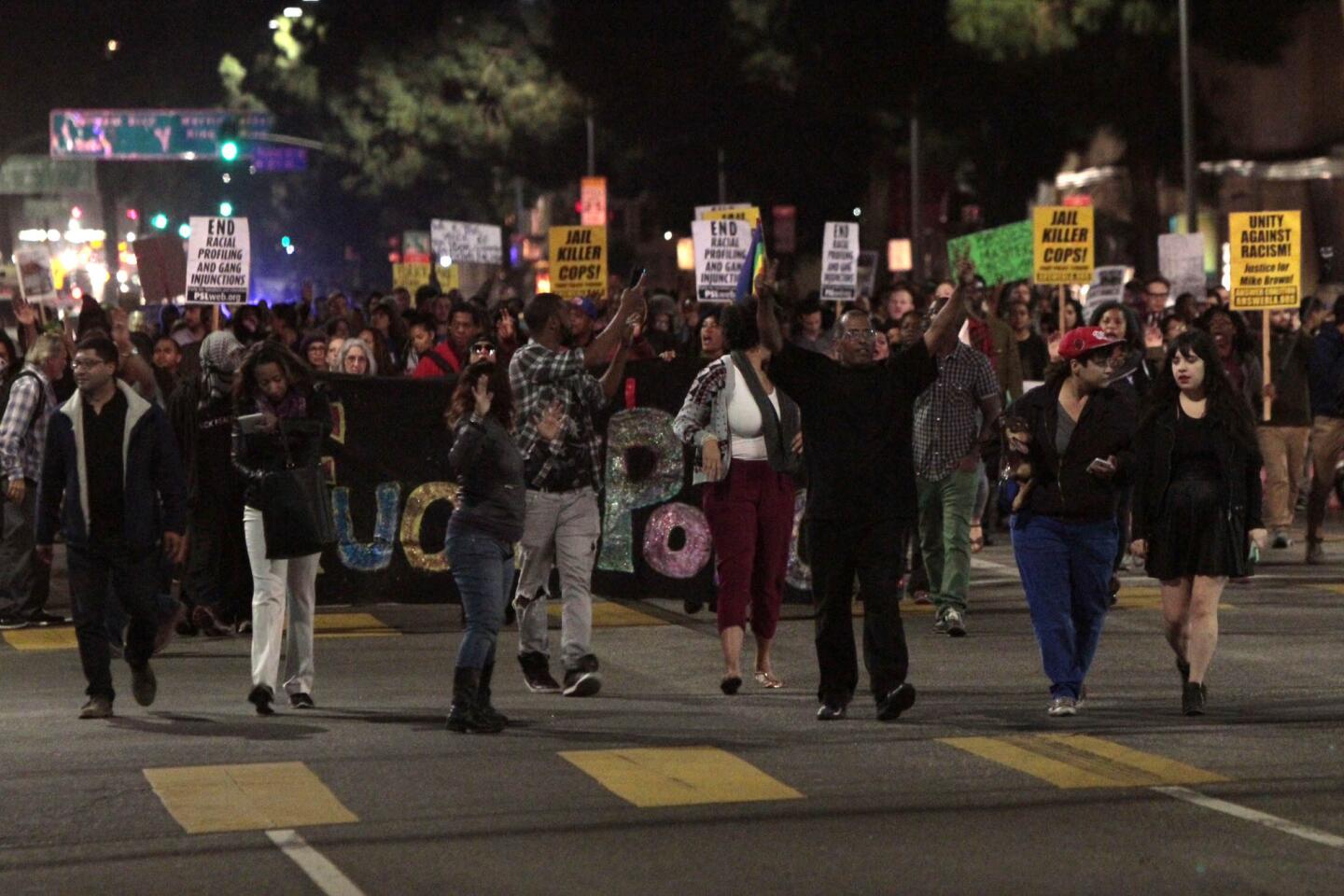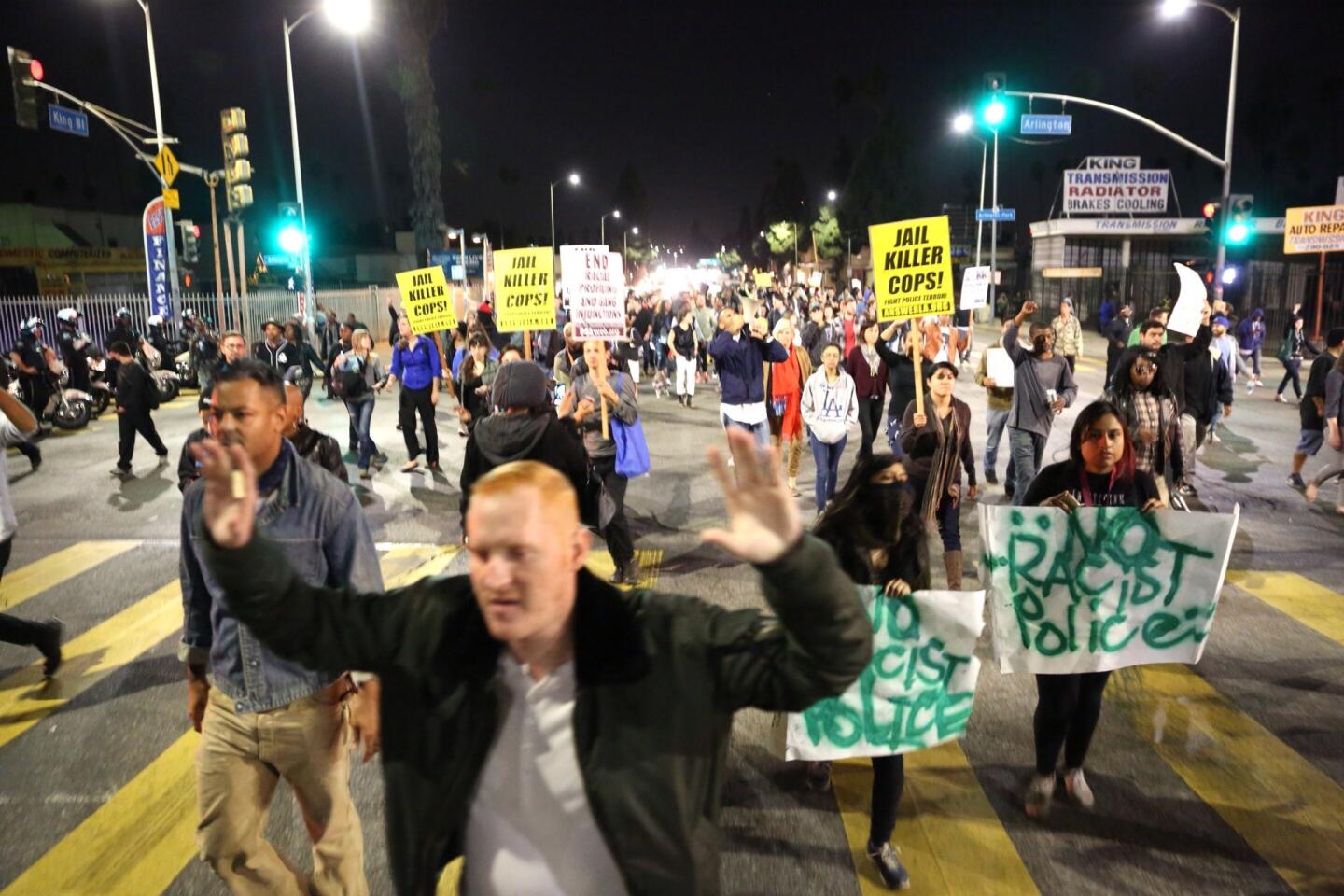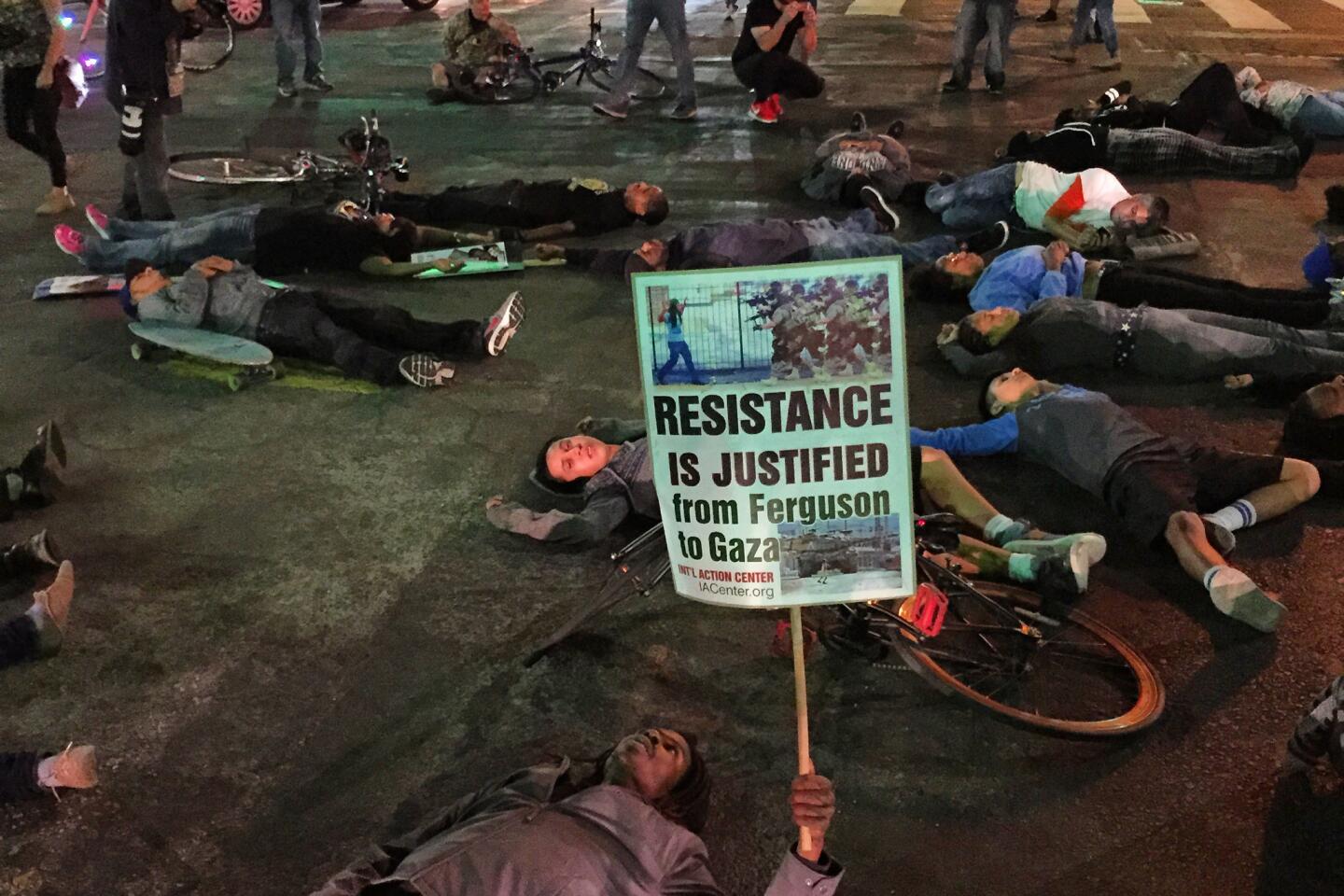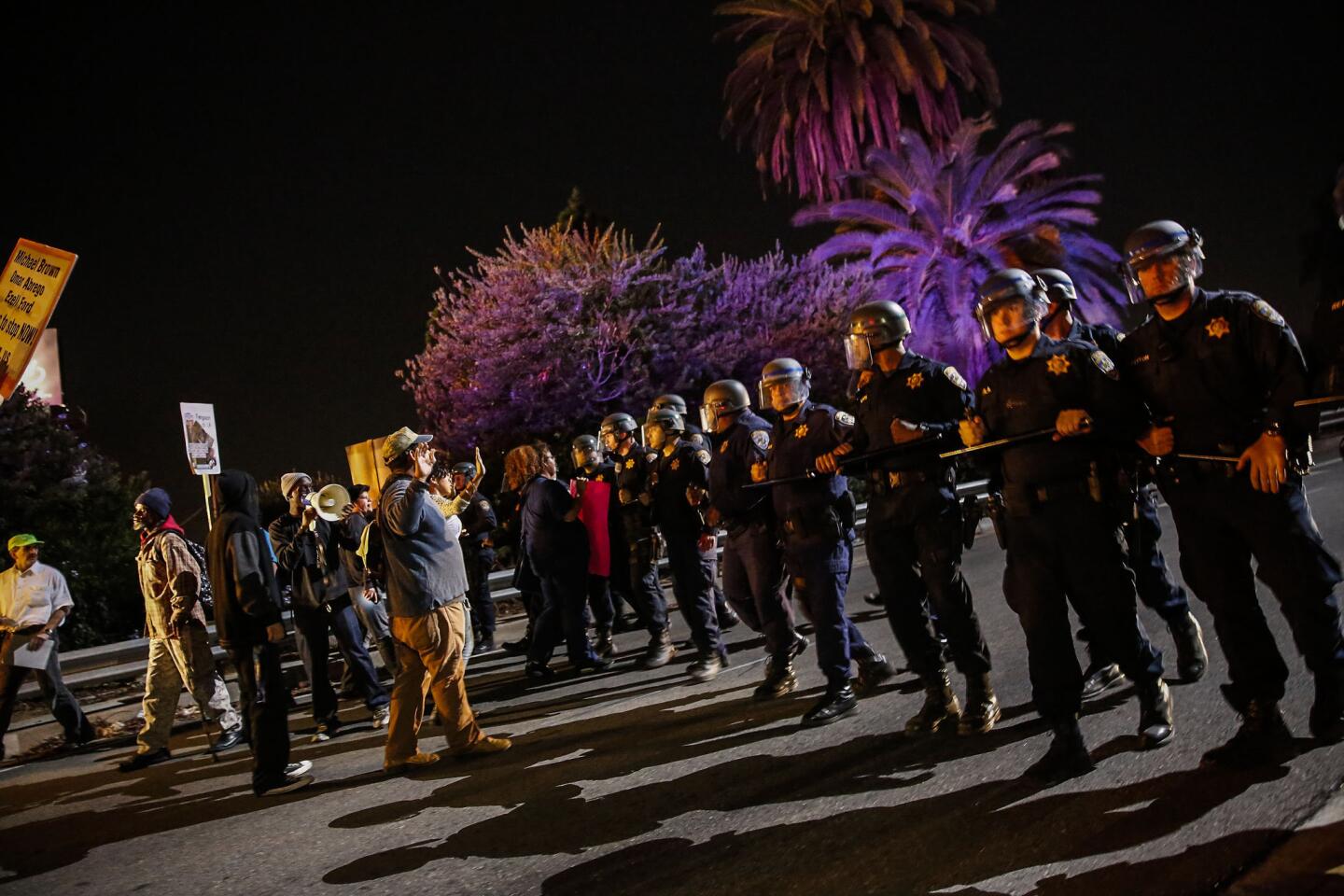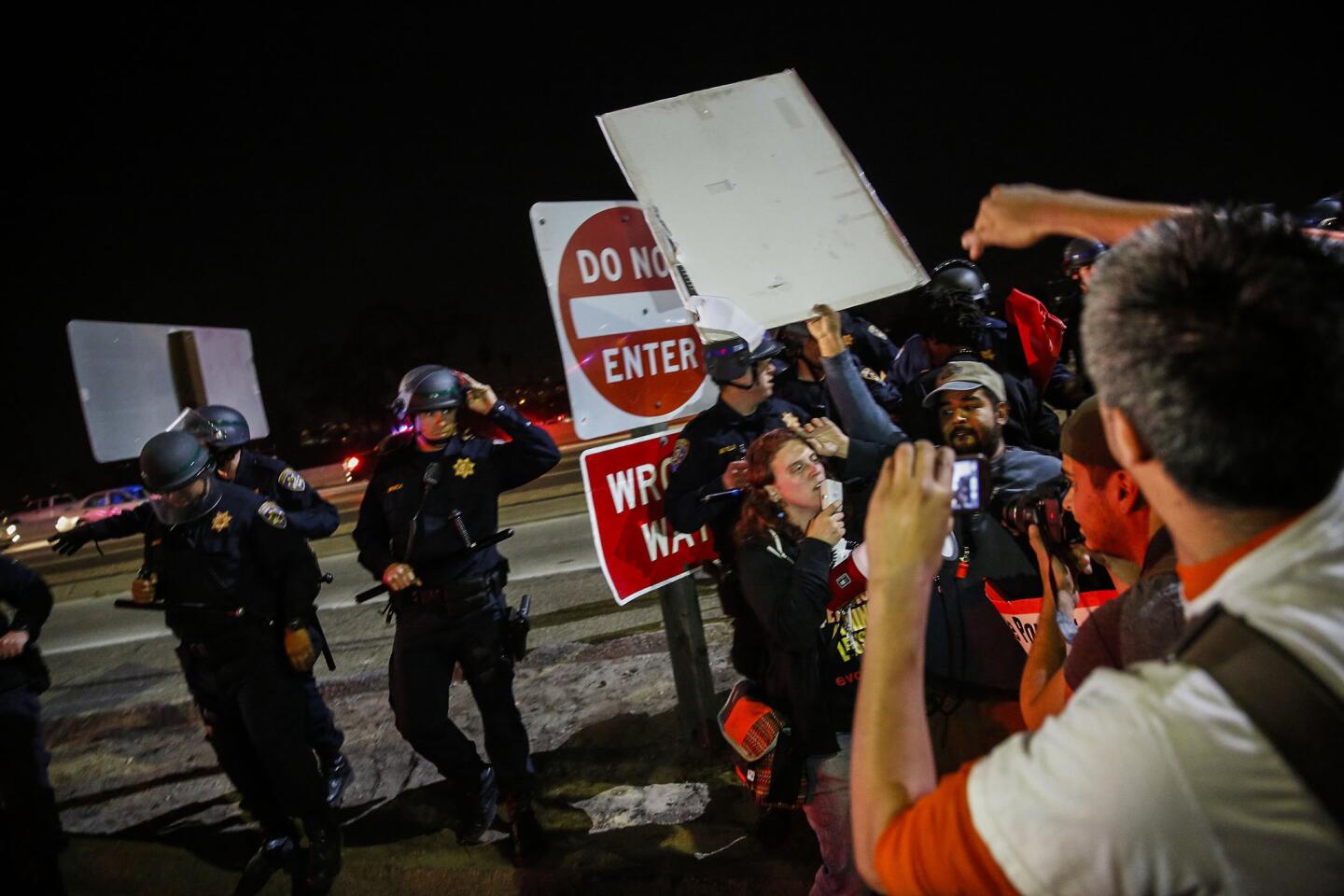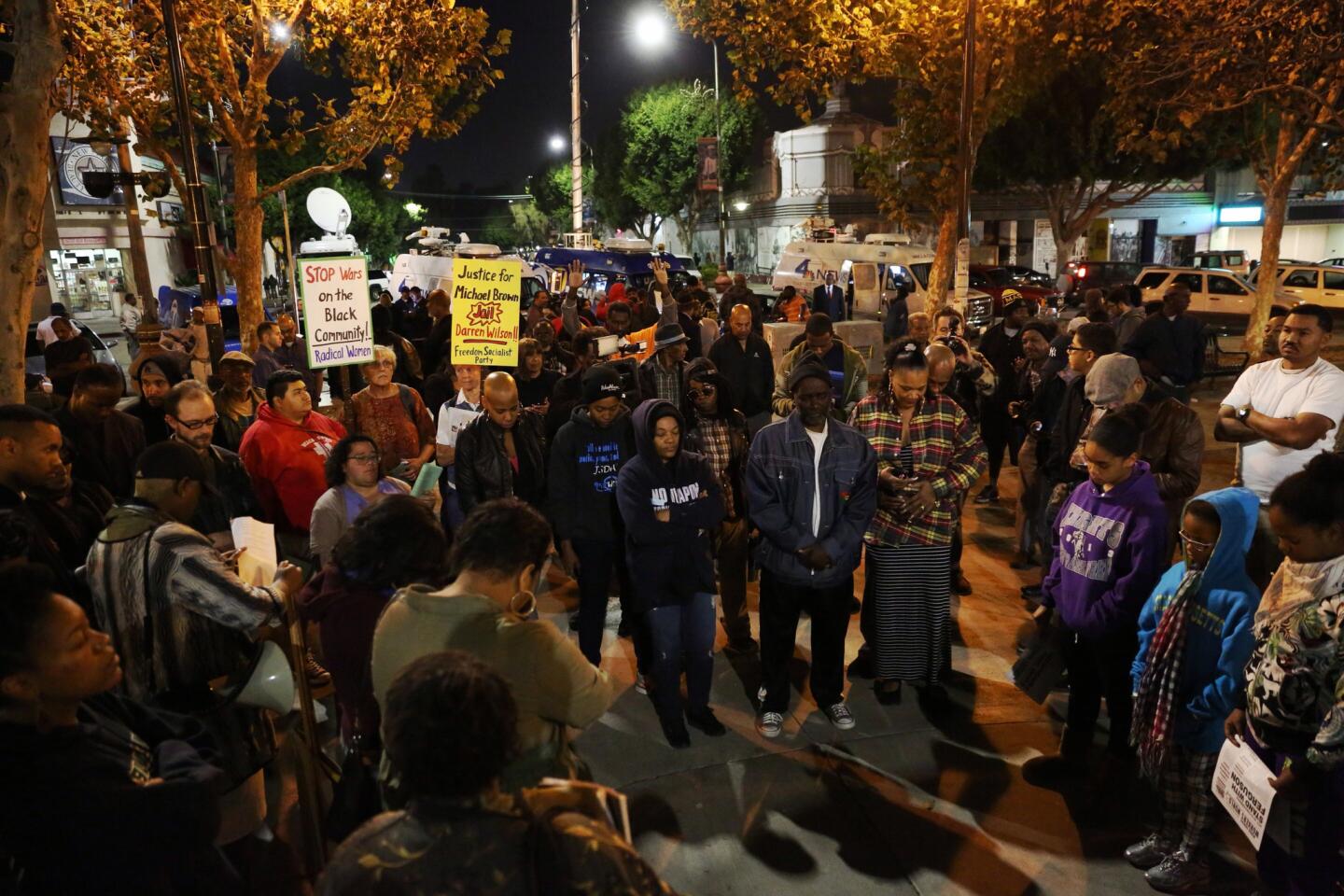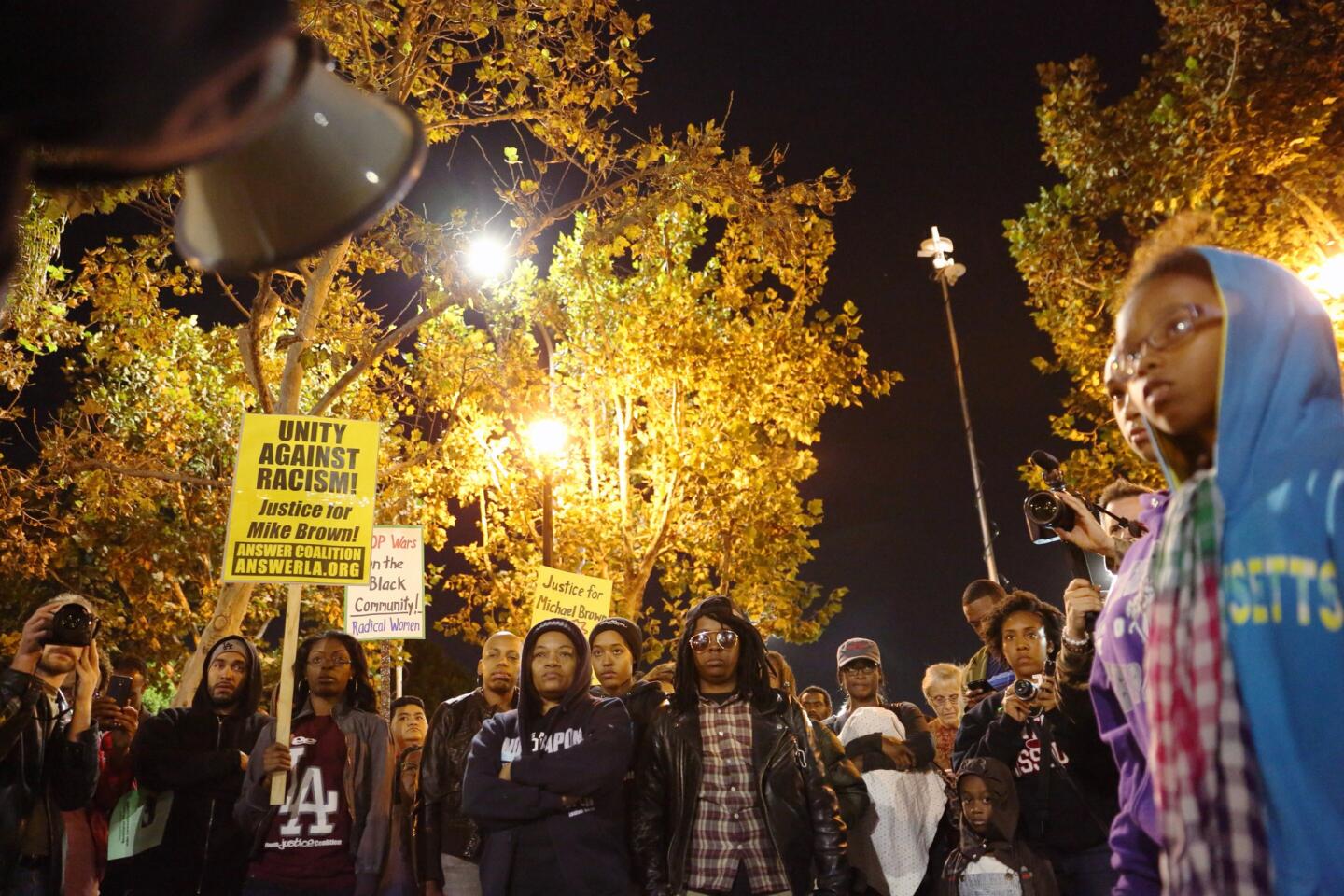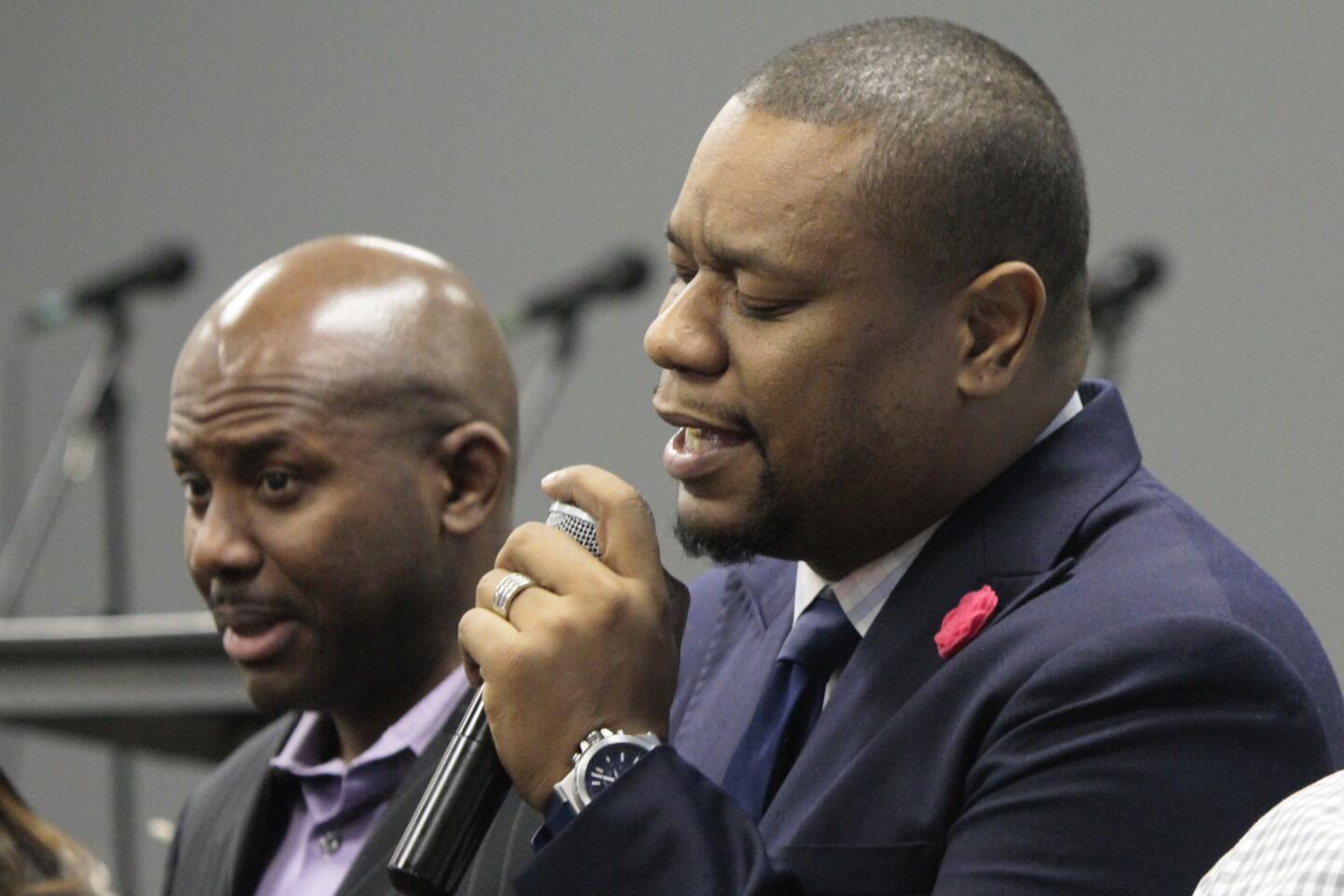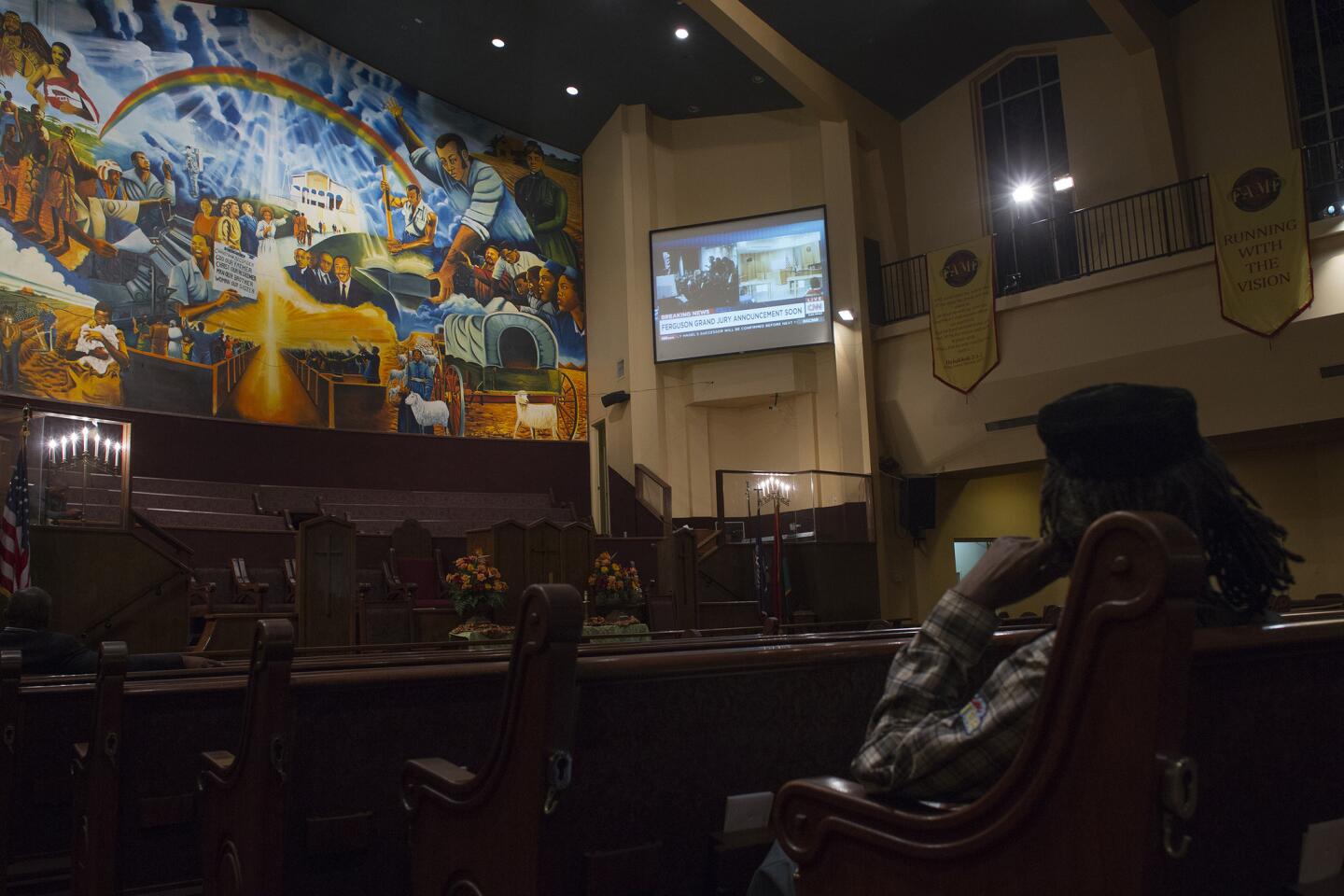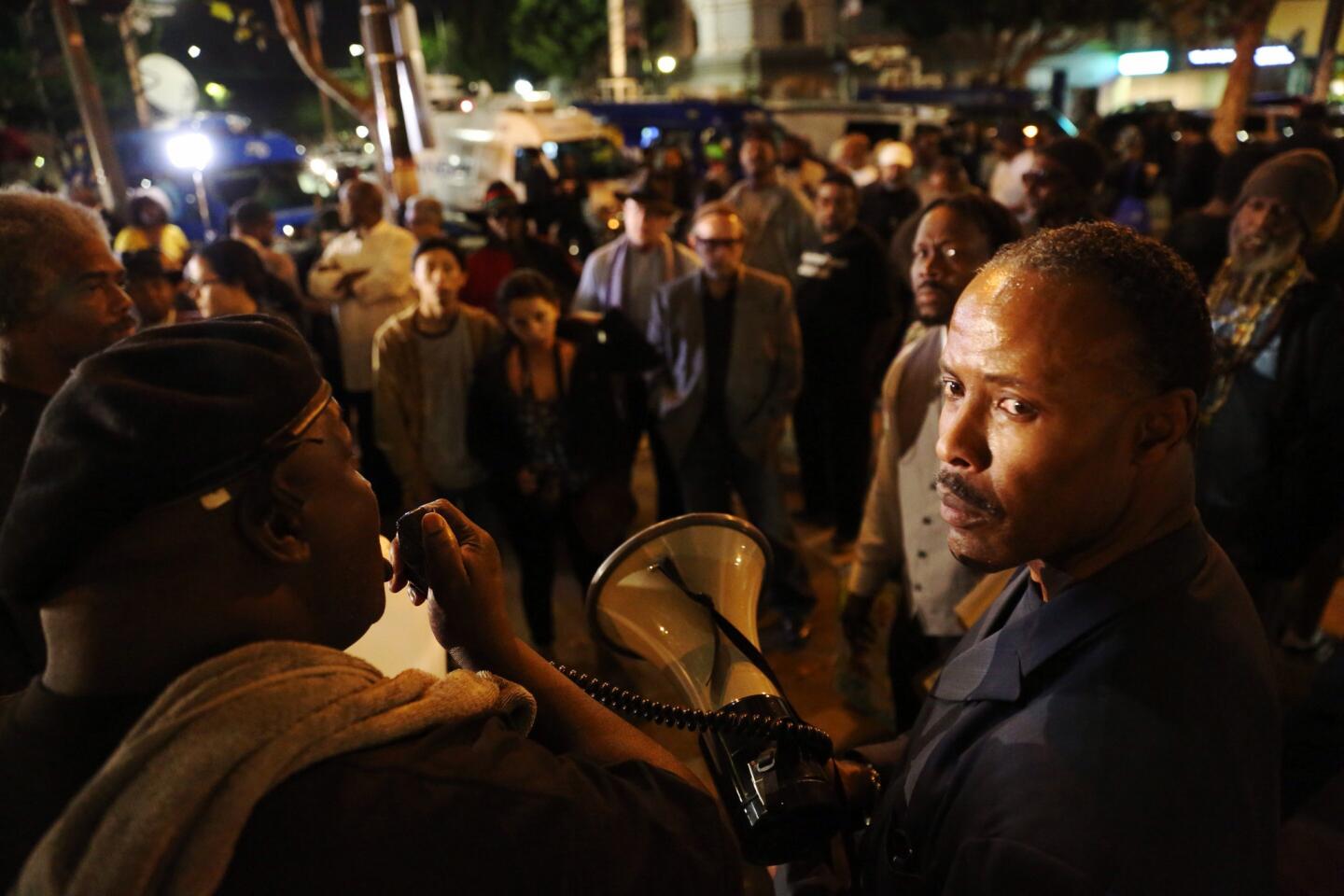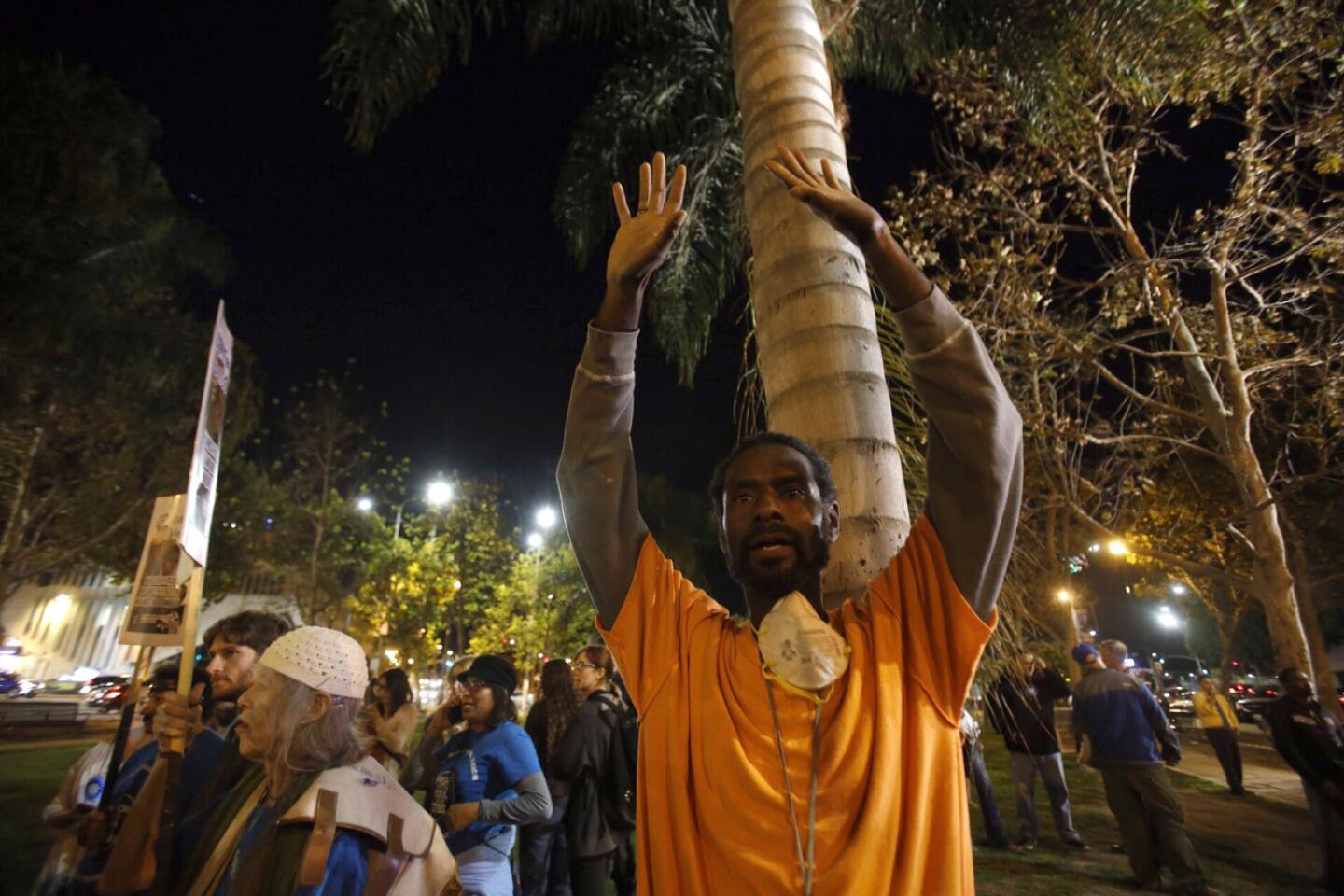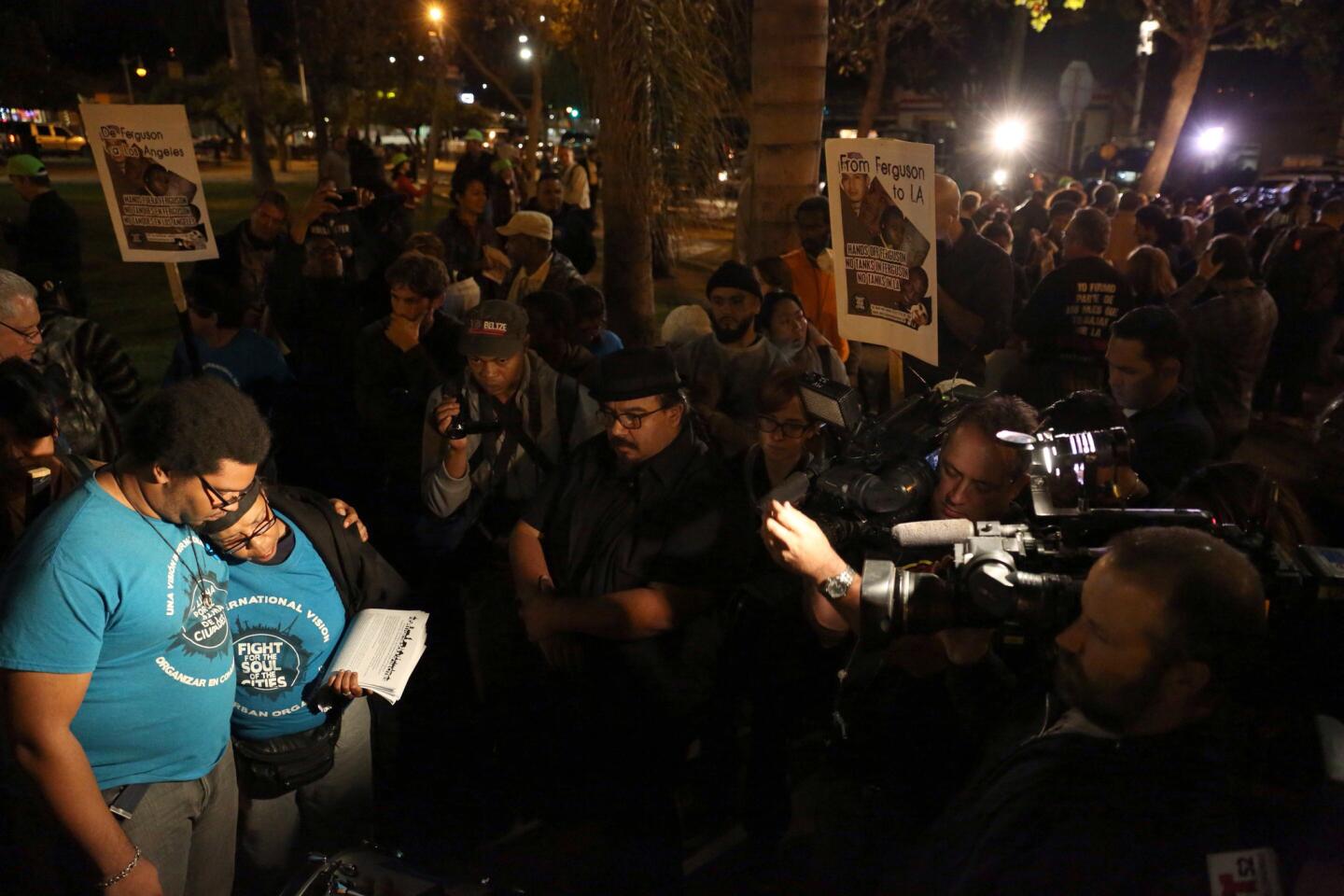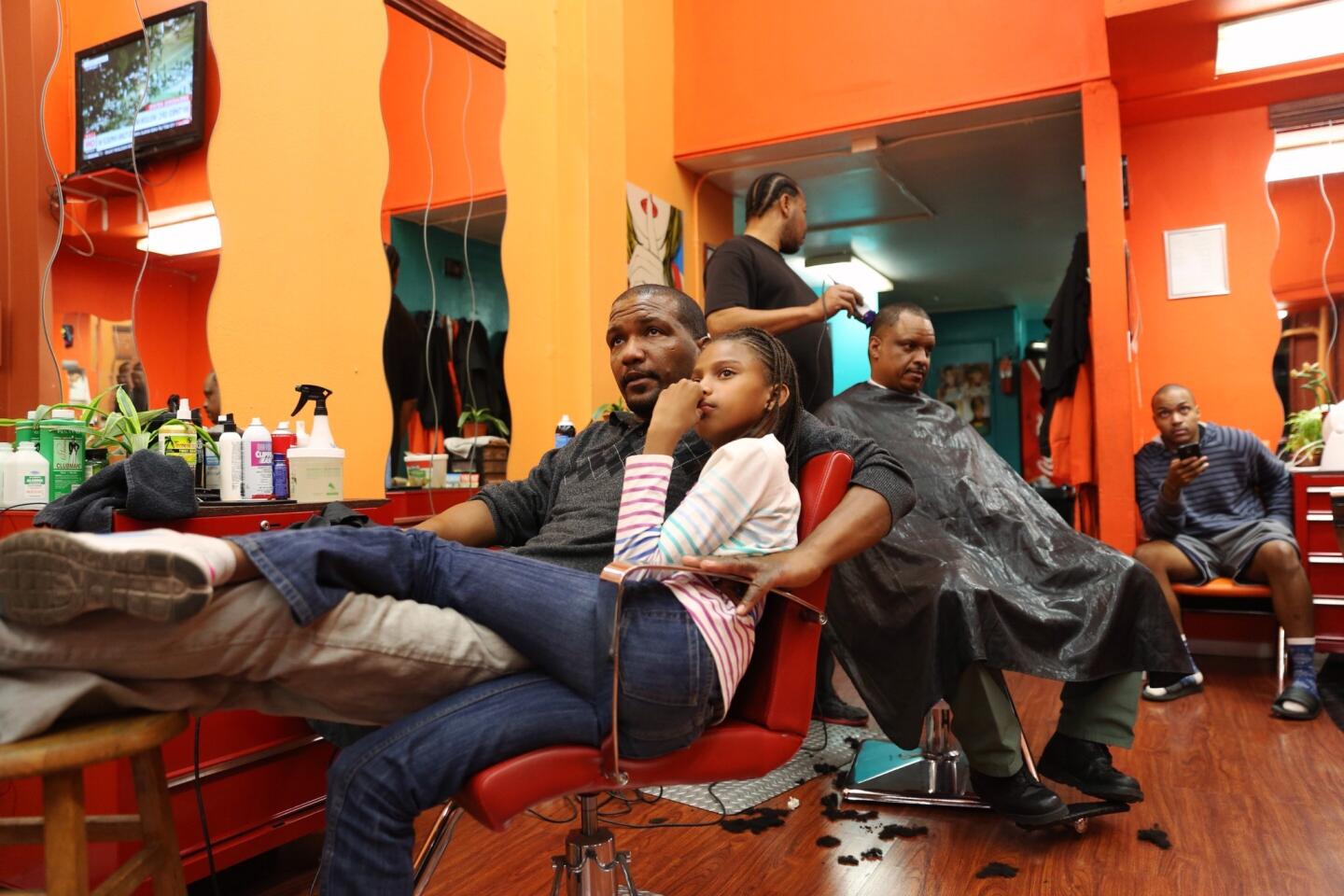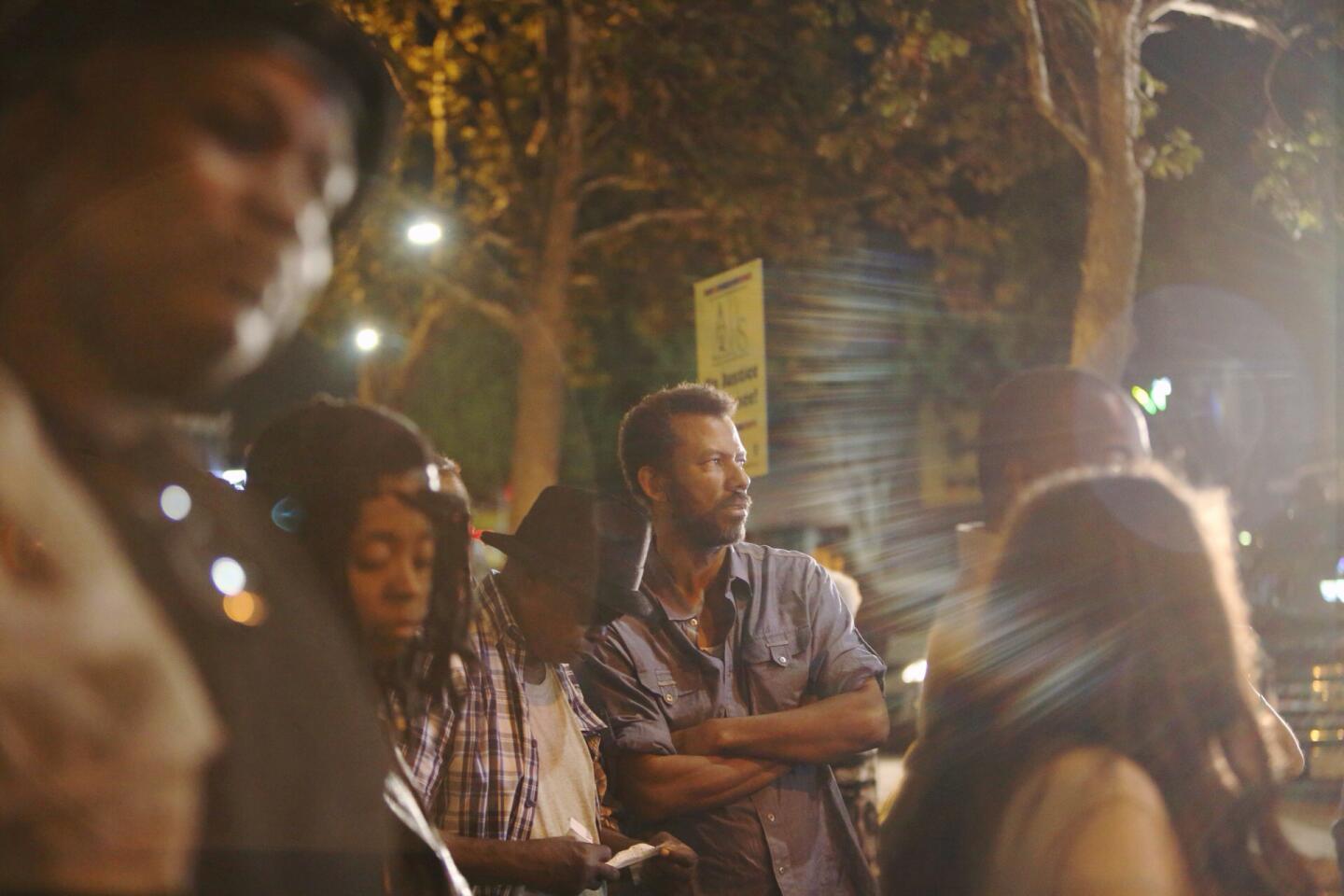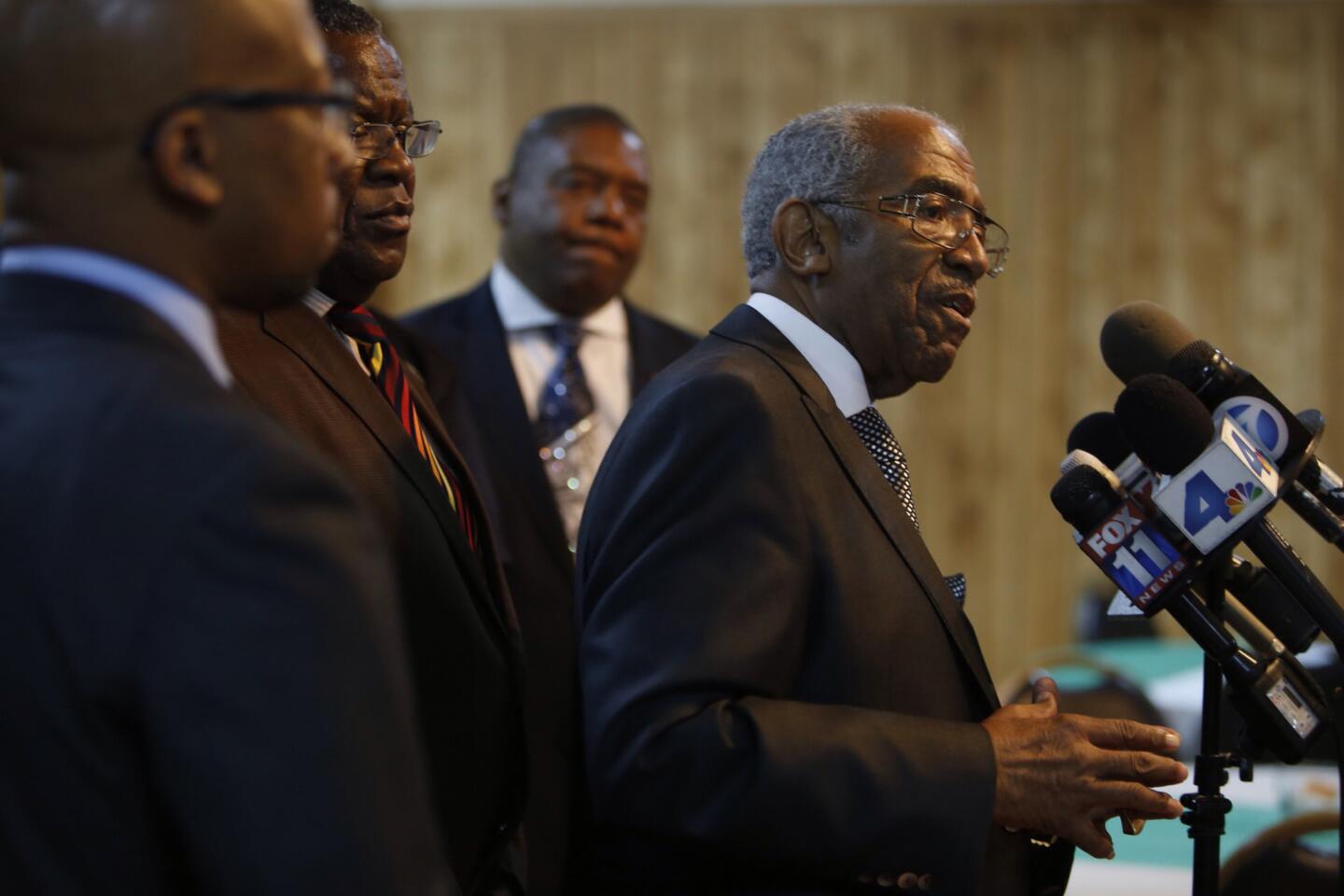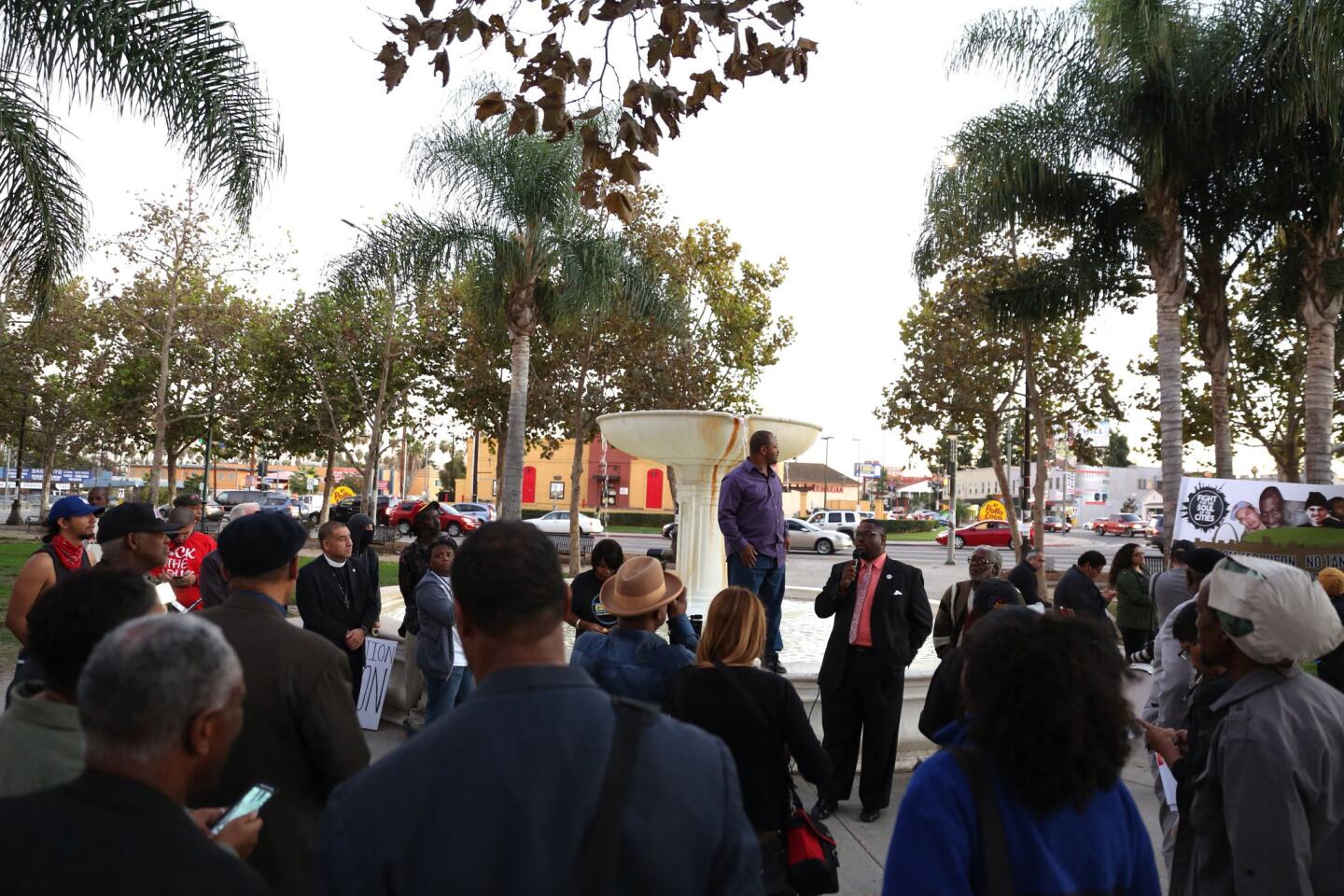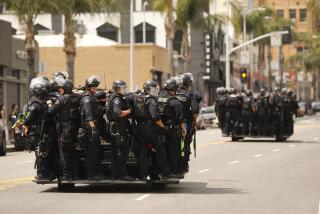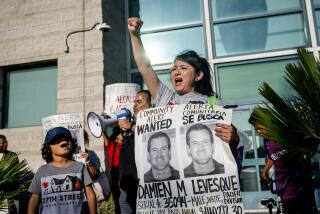Michael Brown protester handcuffed outside LAPD headquarters
- Share via
A man was handcuffed by Los Angeles police during an early morning protest outside LAPD headquarters in downtown Los Angeles.
About 100 protesters had gathered on 1st Street in front of the headquarters in a largely peaceful protest when a shoving match broke out between a wall of police officers and a few protesters who were trying to push past them. The man handcuffed was tackled, restrained, and taken inside the LAPD building.
As of 10 p.m. Monday, Los Angeles police said no arrests had been made in relation to Monday’s protests of a Missouri grand jury’s decision not to indict a Ferguson, Mo., police officer in the controversial shooting of Michael Brown. It wasn’t clear whether the man handcuffed was arrested or detained.
After midnight Tuesday, a larger protest near downtown Los Angeles was dispersed by LAPD officers using nonlethal projectiles. The demonstrators, who at one point numbered more than 300, marched across Los Angeles on Monday night, briefly closing the 110 Freeway as they protested the grand jury decision not to indict the police officer, who is white, in the shooting of the black teenager.
The main group marched to USC and then toward Staples Center, where confrontations with police grew tense. A group of protesters pushed at a fence that blocked off a hill that led to the 110 Freeway and knocked it over. People streamed over the fallen fence, climbed onto the freeway and sat down, shutting down traffic. About 150 protesters gathered on the road and chanted “No justice, no peace. No racist police!”
After California Highway Patrol officers declared the freeway protests an unlawful assembly, some protesters marched west on Pico Boulevard, where they were met by a wall of more than 100 police officers in riot gear. The officers ordered the crowd to disperse, then fired at least three nonlethal projectiles into the ground when they refused to obey. The exact type of projectiles used was unclear.
Tthe noise sent most protesters running. Others walked up to police and stood silently with their hands over their heads.
Jasmine Richards of Pasadena said one round ricocheted off the ground and struck her in the leg. She hiked up her pants to reveal a tennis-ball sized mark on her left thigh.
Deputy Chief Bob Green of the Los Angeles Police Department said officers from the LAPD helped the CHP disperse the crowd, and he confirmed that nonlethal projectiles were used.
Earlier Monday, a small group marched toward Beverly Hills and lay down on a street for several minutes to symbolize the time they said the slain Missouri teen’s body was left in the street. They marched toward Beverly Drive on Wilshire, stopping traffic in both directions and briefly delaying a Metro bus line. Before midnight, the group had dispersed.
News that the grand jury would not indict Officer Darren Wilson in the shooting death of Brown was met with anger and tears Monday in South Los Angeles, where many residents said they were disappointed but not surprised.
Barbers at the New Millennium Sports barbershop waited all day for the grand jury’s decision. As the decision was about to be announced, they gathered around a television, trying to figure out how to turn the volume up.
A customer walked in talking. Everyone in the room shushed him.
When a St. Louis County prosecutor said the grand jury had declined to indict the officer, 53-year-old Ted Baxter looked around the Crenshaw Boulevard shop and shook his head.
“It’s a sad day in history,” he said.
In nearby Leimert Park, dozens of people huddled around a speaker, listening to the news. Some shook their heads and walked away; others lingered with tears in their eyes.
One woman called her mother, crying as she spoke. Leisette Rodriguez, a Long Beach resident, later said her first thoughts were of Brown’s family: “My heart is hurting so much for them.
“I’ve had enough,” said Rodriguez, 46. “It seems like it is never going to come around where communities of color even matter.”
Cliff Smith, a member of the South-Central Neighborhood Council, stayed home for the decision.
“I don’t think it’s a surprise to anyone that the grand jury made this decision,” he said. “It’s our job to press the Justice Department for federal charges, and we will act responsibly, disciplined and forcefully.”
Community leaders and LAPD officials spent days preparing for the potential reactions to the grand jury’s decision. Los Angeles police declared a citywide tactical alert Monday afternoon, freeing up more officers and resources in anticipation of demonstrations.
LAPD Chief Charlie Beck said last week that his officers would facilitate lawful, peaceful demonstrations but would not tolerate vandalism or violence. He said the department was prepared to deploy extra patrols if needed.
“We’re certainly paying close attention,” Lt. Andrew Neiman, a department spokesman, said Monday afternoon. “We are encouraging people to remain peaceful. If they decide to engage in lawful, peaceful protest, we’ll facilitate that. And that’s been our plan from the get-go.
“We’re certainly prepared if there are people who try to do otherwise -- in an unlawful manner, or in a violent manner,” he said. “But that won’t be tolerated.”
Los Angeles is no stranger to police-related protests. Comparisons have been made between the tensions in Ferguson with those that led to the 1992 L.A. riots, sparked after four LAPD officers were acquitted in the beating of black motorist Rodney G. King.
A police shooting in South Los Angeles in the days after Brown’s death exposed lingering frustrations among some residents with the LAPD. Many residents expressed anger over the killing of Ezell Ford Jr., a mentally ill 25-year-old man who was shot and killed by two officers on Aug. 11.
Smith said the Ford case would only heighten the local response to the decision in the Brown case.
“We already have our own Michael Brown right here in our neighborhood,” he said.
Earl Ofari Hutchinson, president of the Los Angeles Urban Policy Roundtable, said he and other civil rights leaders had already delivered a petition to the U.S. attorney’s office asking for federal civil rights charges in the Brown case. He recalled the anger that followed the King acquittal decades ago.
“I’m seeing the same thing again, I’m hearing the same thing again,” he said. “The only difference is King lived and Brown didn’t.
“When officers break the law ... there’s no punishment, no accountability,” he said. “That’s a dangerous message to send.”
One shop owner in South L.A. took extra precautions Monday, recalling the violence that followed the King acquittal. Standing in his beauty salon near 83rd Street and Normandie Avenue, Reynaldo Castillo watched the television anxiously.
“We remember what happened in 1992,” he said in Spanish. “We’re just waiting to see what happens.”
At First AME Church, Pastor J. Edgar Boyd listed a series of police incidents that left civilians dead: Oscar Grant in Oakland, Eric Garner in New York, Michael Brown, Ezell Ford.
“Until all of us get together to help bring reform, things are not going to get any better,” Boyd said. “Bad things happen when good people do not get involved.”
Twitter: Follow @LAcrimes, @katemather, @latvives and @LATangel for more local reactions to the Ferguson decision
More to Read
Sign up for Essential California
The most important California stories and recommendations in your inbox every morning.
You may occasionally receive promotional content from the Los Angeles Times.
